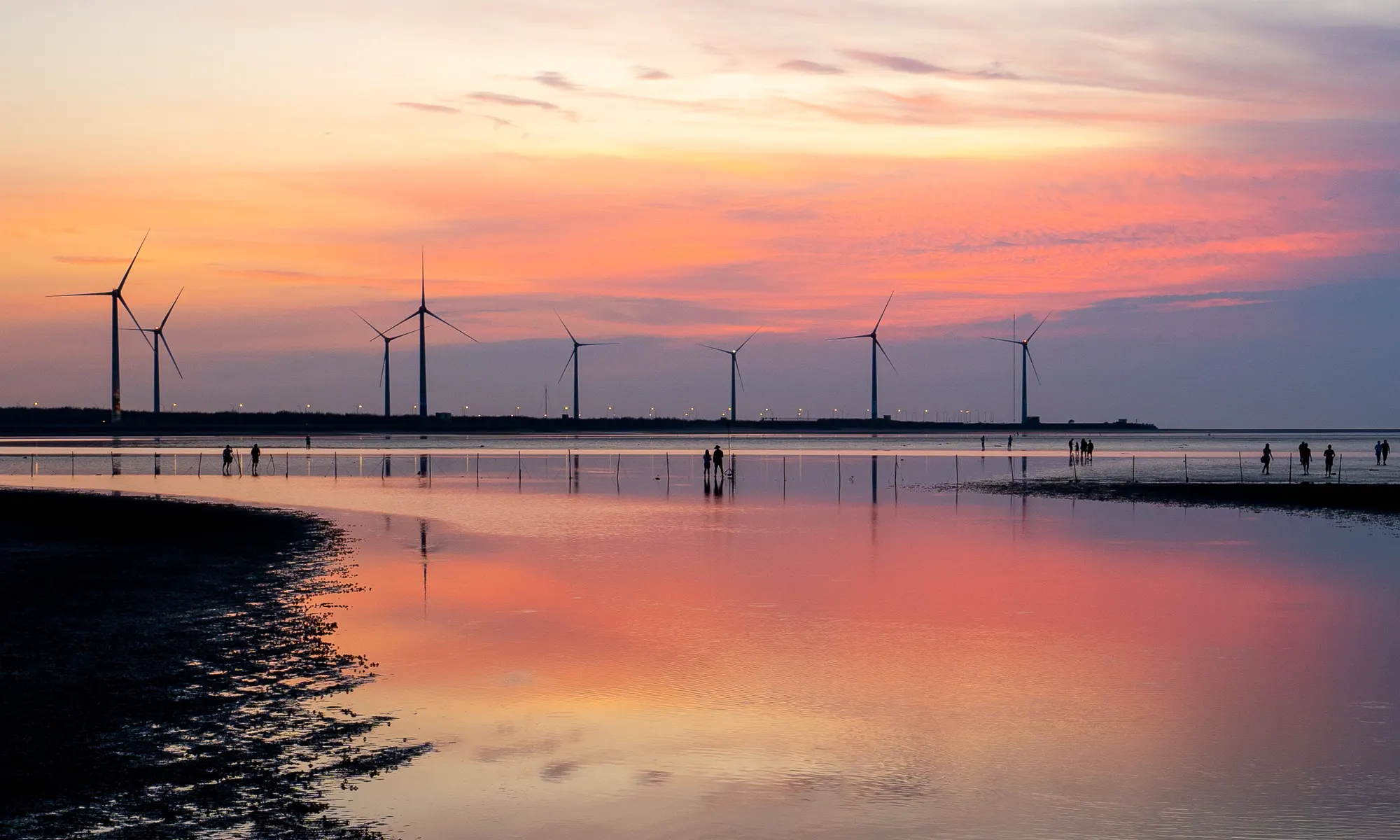An Insider’s Guide to Taichung City: Western Taiwan’s Food and Culture Capital
Taichung is Taiwan’s second-largest city and is famous for interesting museums, excellent shopping, as well as a plethora of unique natural destinations, including coastal flats and flower gardens.
The city is one of Taiwan’s culture capitals and is home to a multitude of museums and cultural venues, including the avant-garde National Taichung Theater, renowned for its modern architecture; the educational National Museum of Natural Science, which is constantly hosting world-class exhibitions; and the Dali Art Plaza, which is home to some reality-bending illusions.
Just outside the city, the serene coastal flats of the Gaomei Wetlands and the Chungshe Flower Garden offer two different ways to appreciate the beauty of nature, and practice landscape photography. Farther away in Guguan, hot spring hotels like Hoshinoya offer travelers relaxing accommodations with private in-room hot springs.
Finally, downtown Taichung is filled with renovated historic buildings and delicious restaurants where it’s possible to enjoy cultural history and satiate one’s stomach at the same time. Stop by Miyahara to see a 97-year-old building converted into an ice cream shop, head to Zhao Zhao Tea Lounge to learn about Taiwanese tea, or stroll around Shenji New Village to visit an art village located in Japanese-era housing.
National Taichung Theater
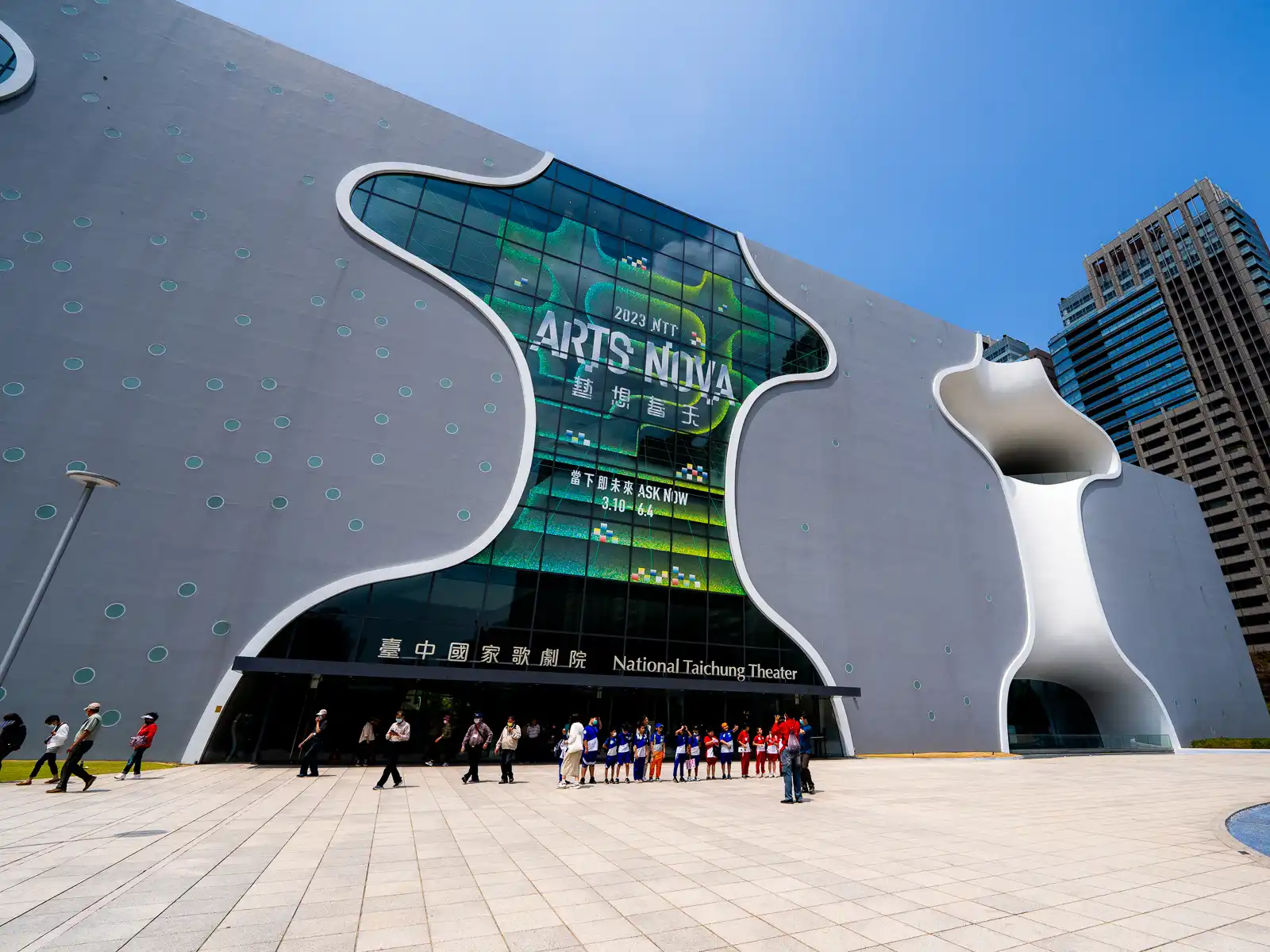
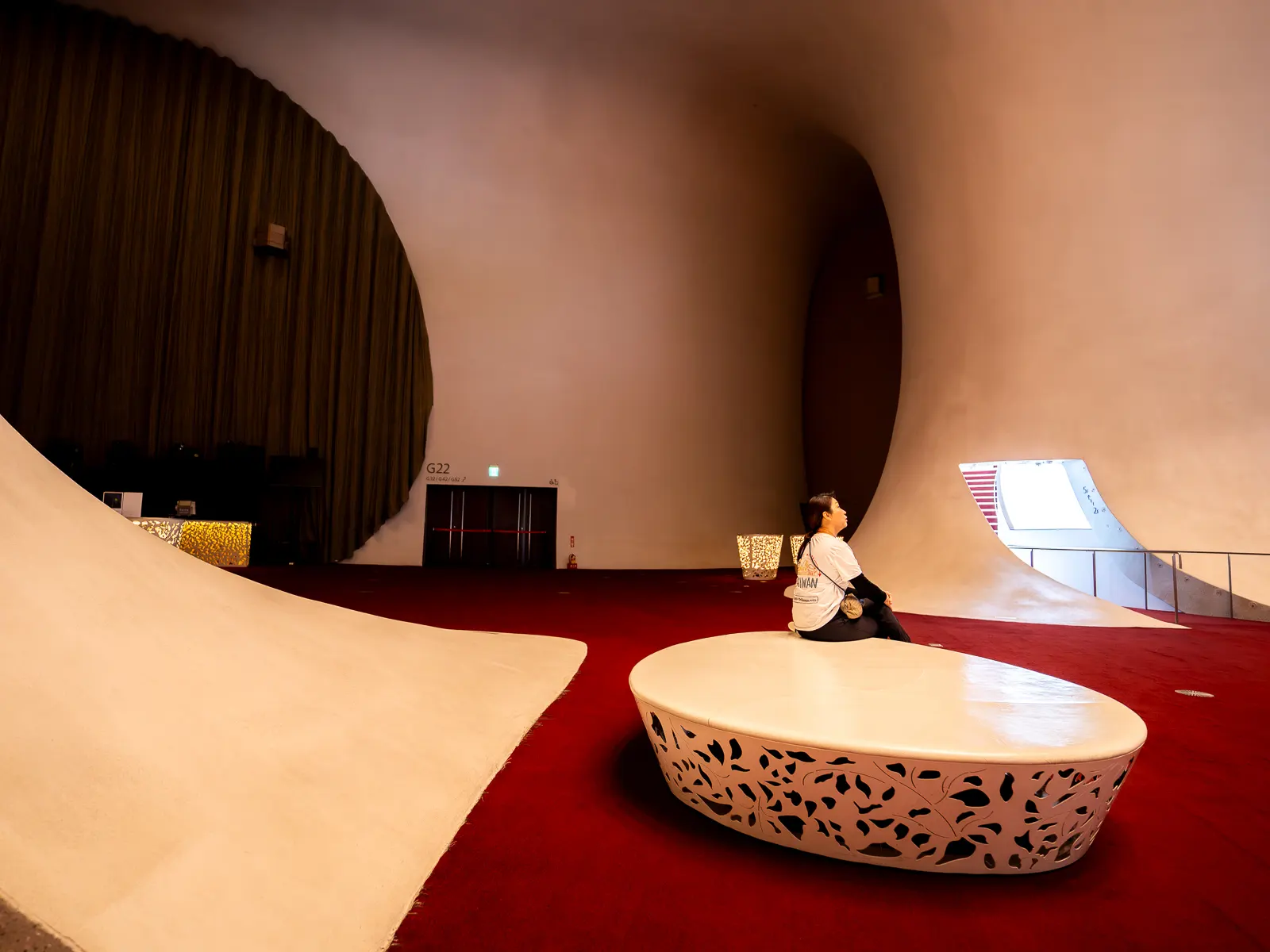
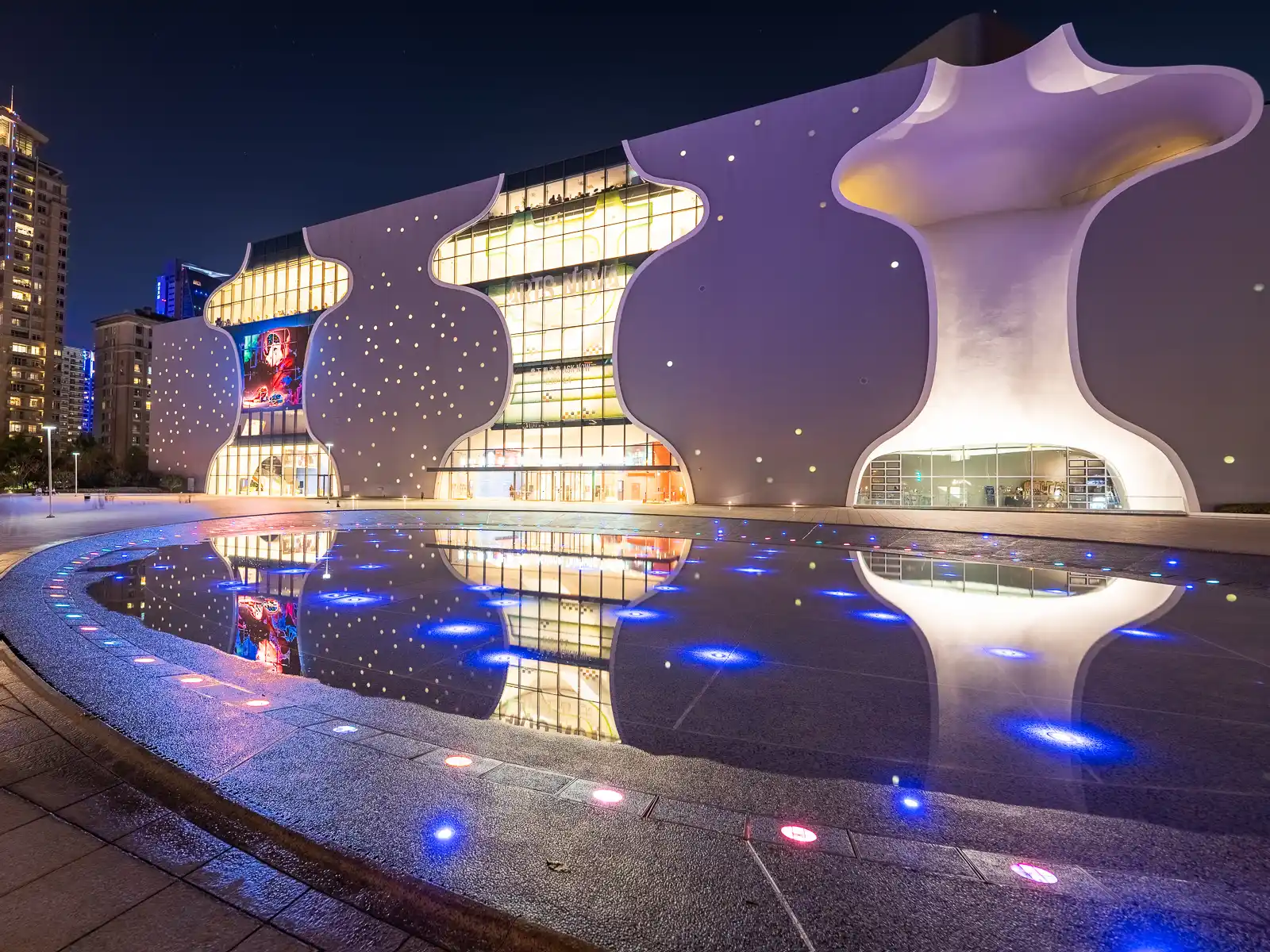
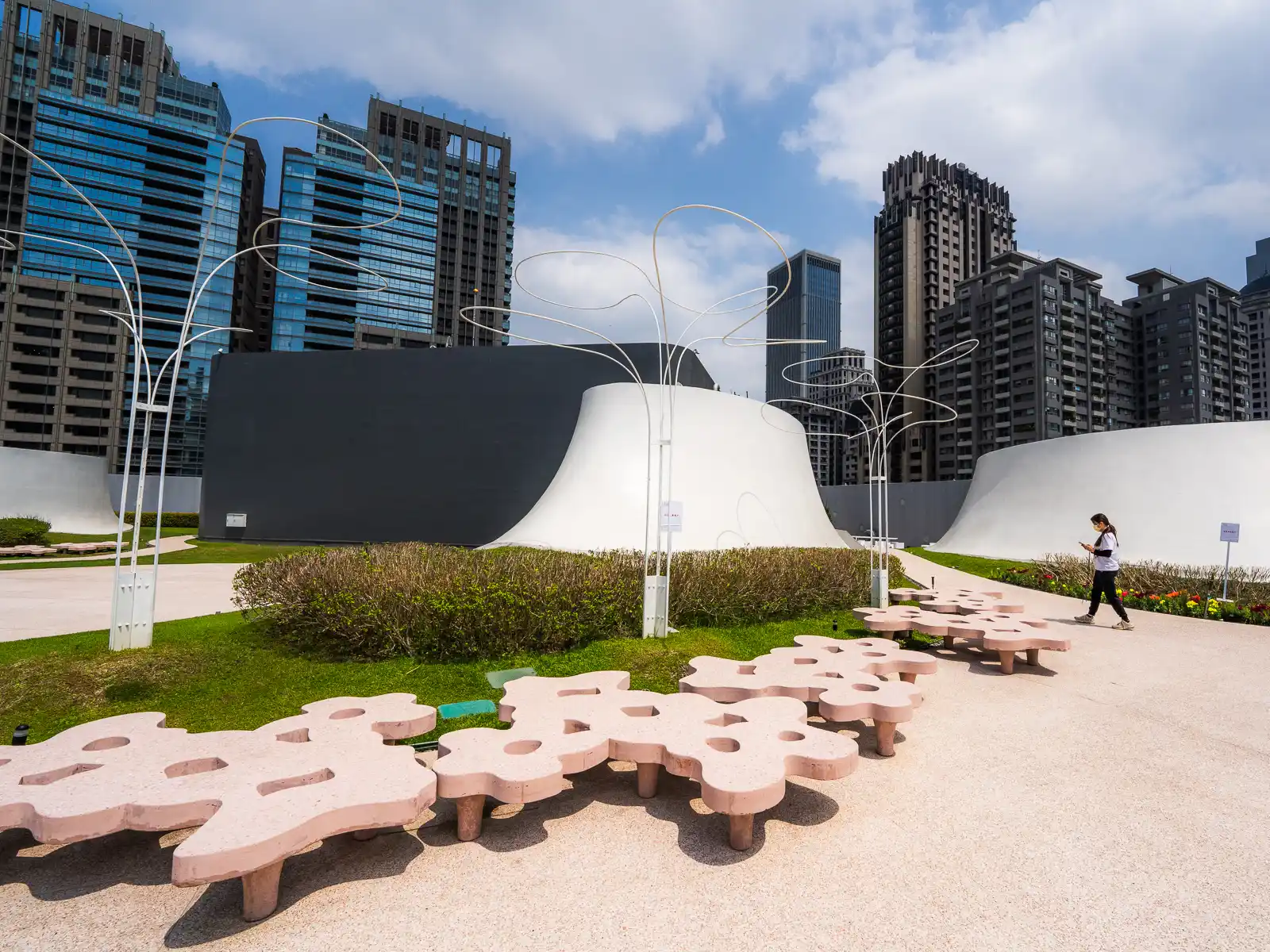
Envisioned by the famed architect Toyo Ito, the National Taichung Theater is globally acclaimed for its “curved wall” design devoid of the usual beams and columns, which harmoniously integrates with its surrounding park. Its walls are home to a unique assortment of indoor and outdoor performance spaces, including the grand theater, a black box theater and numerous outdoor areas.
Other unique elements include several sustainable design features: the unique “radiant cooling floor” uses chilled water pipes and floor vents to maintain temperature, negating the need for traditional air conditioning; and transparent glass curtain walls facilitate the free flow of sunlight, air, water, and sound.
For the curious, guided tours offer insights into the architectural genius of the space. For more information on upcoming programs visit the National Taichung Theater’s official website.
Miyahara
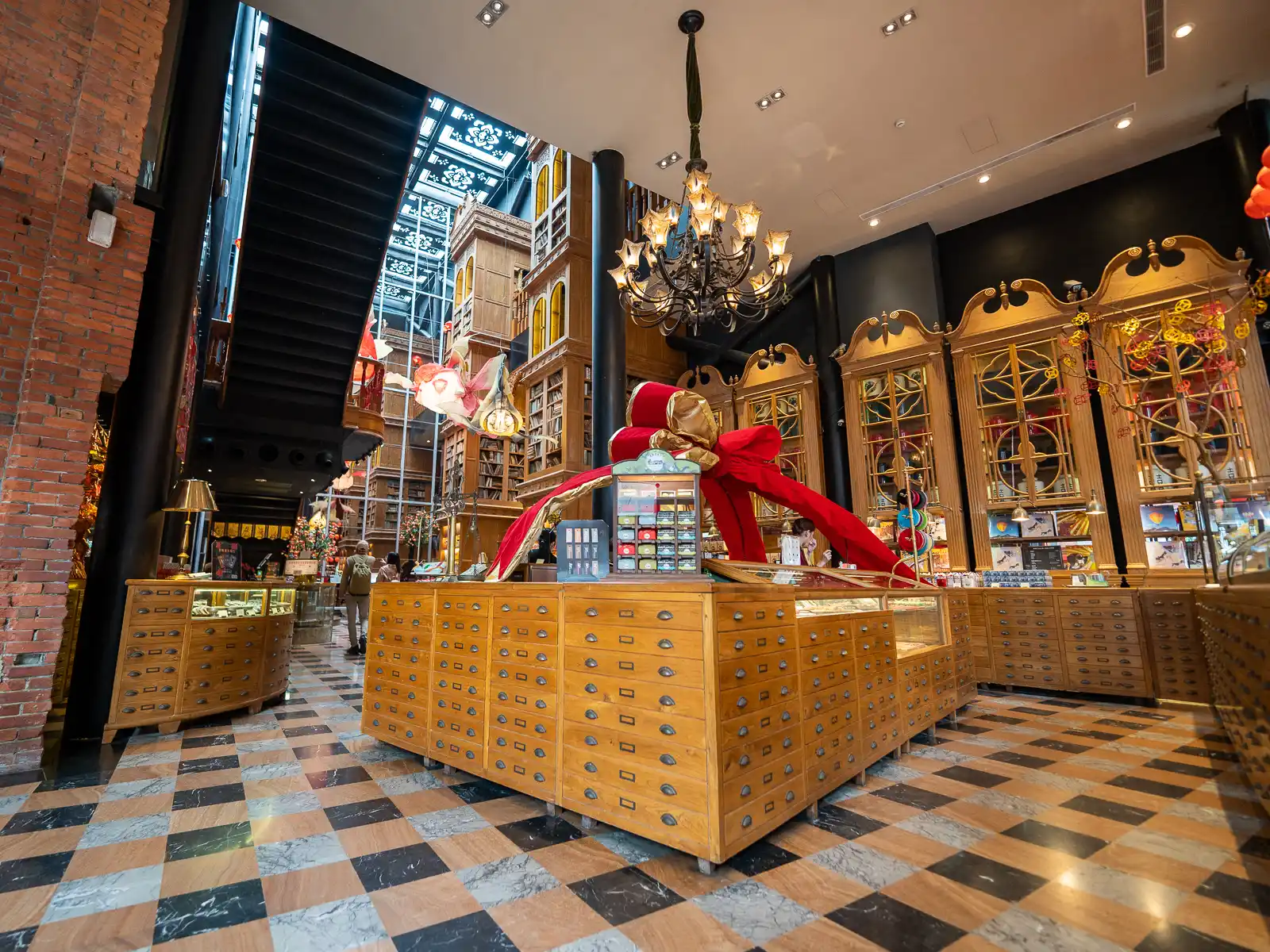

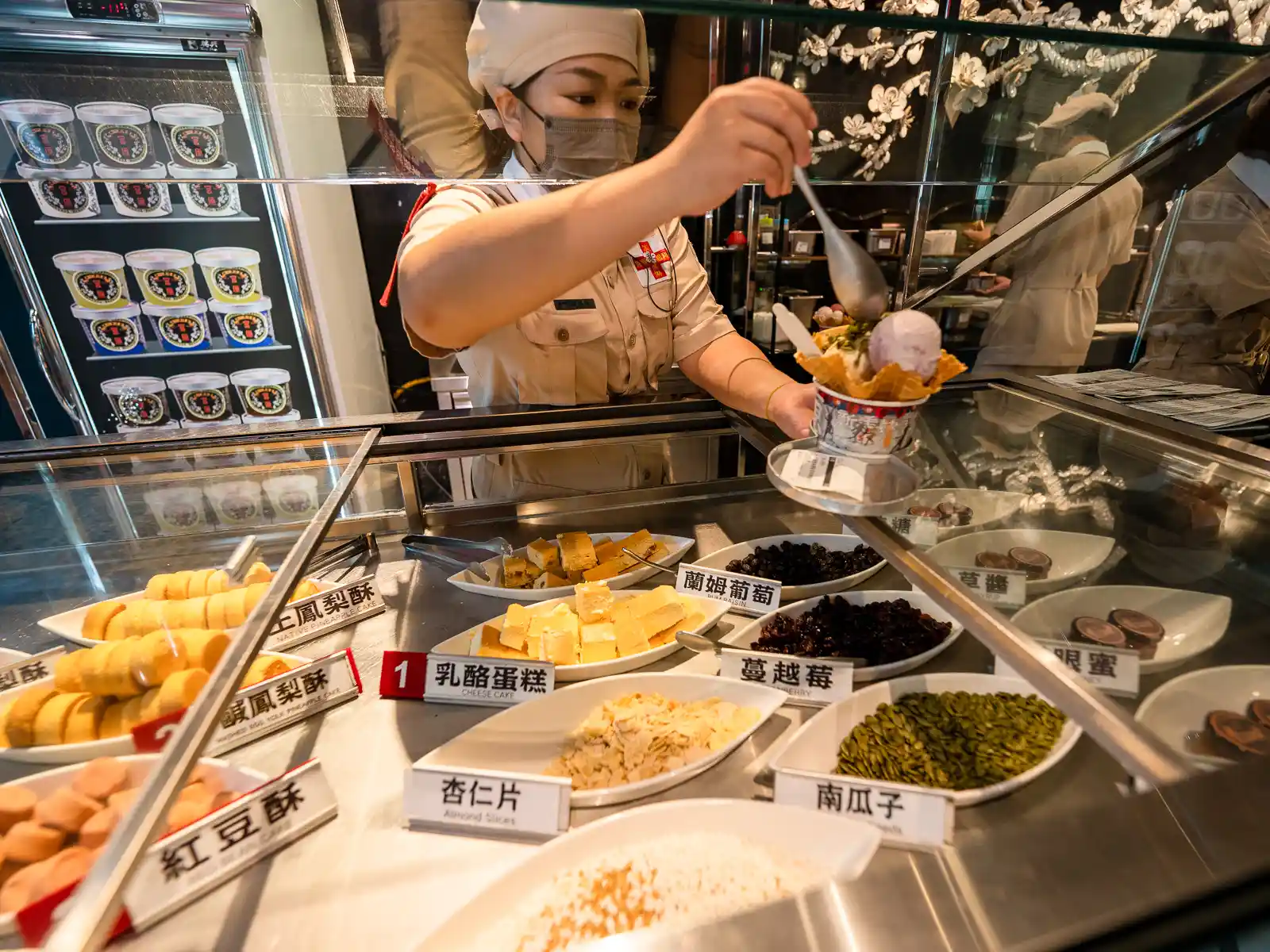
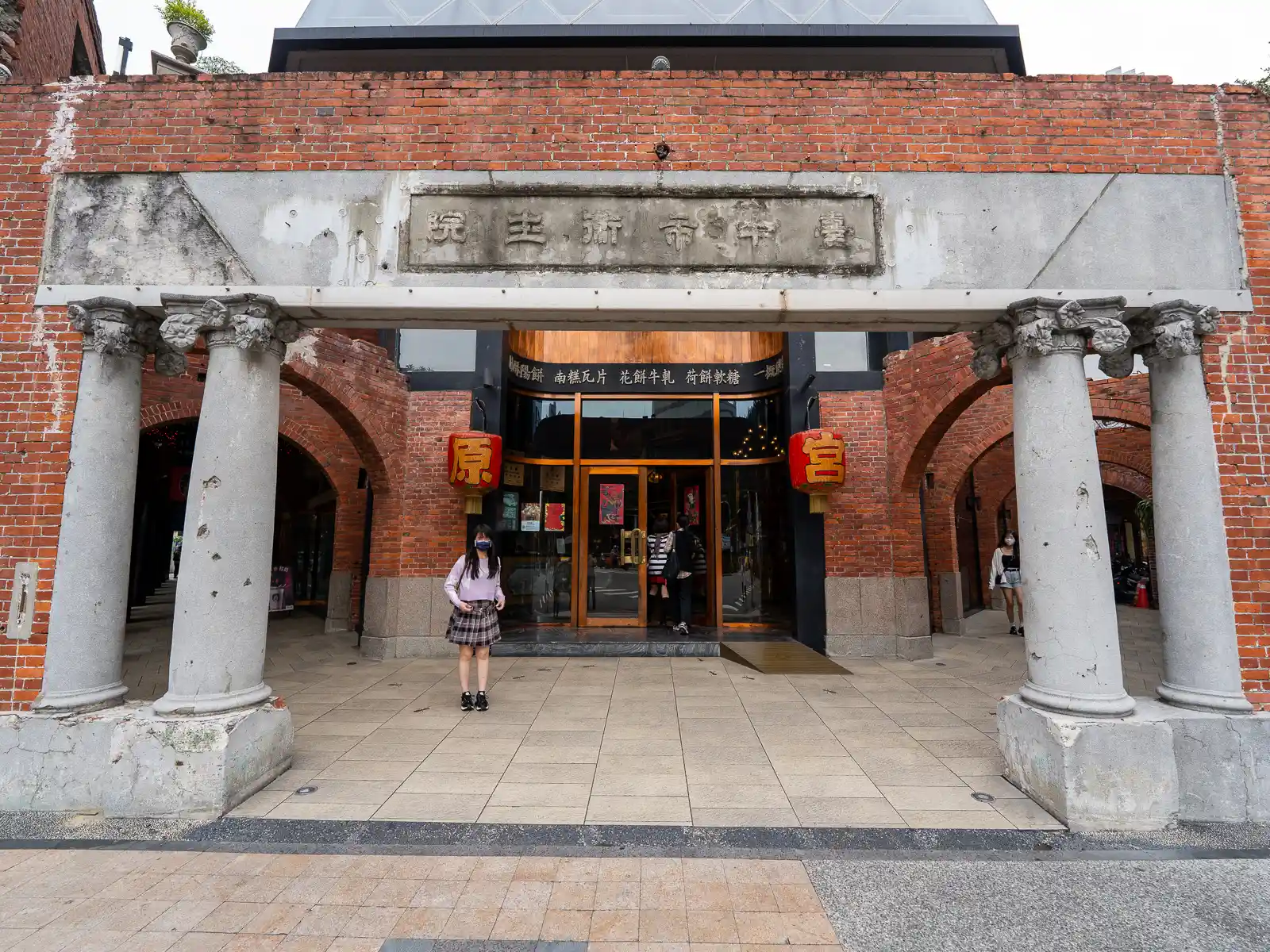

Miyahara is a dessert shop, ice-cream parlor, and restaurant located in a renovated Japanese ophthalmology clinic. The original stone floor and red brick walls are a testament to the building’s historic character—it was built in 1927—while the newly redesigned interior is quite quirky and has been compared to “Hogwarts”. Miyahara’s restoration has been lauded as one of the best examples of successful urban renewal projects in Taichung.
Dawn Cake, the company that purchased the building and was in charge of its restoration, was originally famous for its pineapple cakes. Today, their ice cream has been bestowed the title of “the best ice cream in Taichung” by more than a few, and their bubble tea has received accolades as well. The restaurant on the second floor has recently received a Bib Gourmand distinction from the Michelin Guide. (The “Bib Gourmand” distinction is reserved for restaurants serving multicourse meals for under 60 USD.)
Rainbow Village
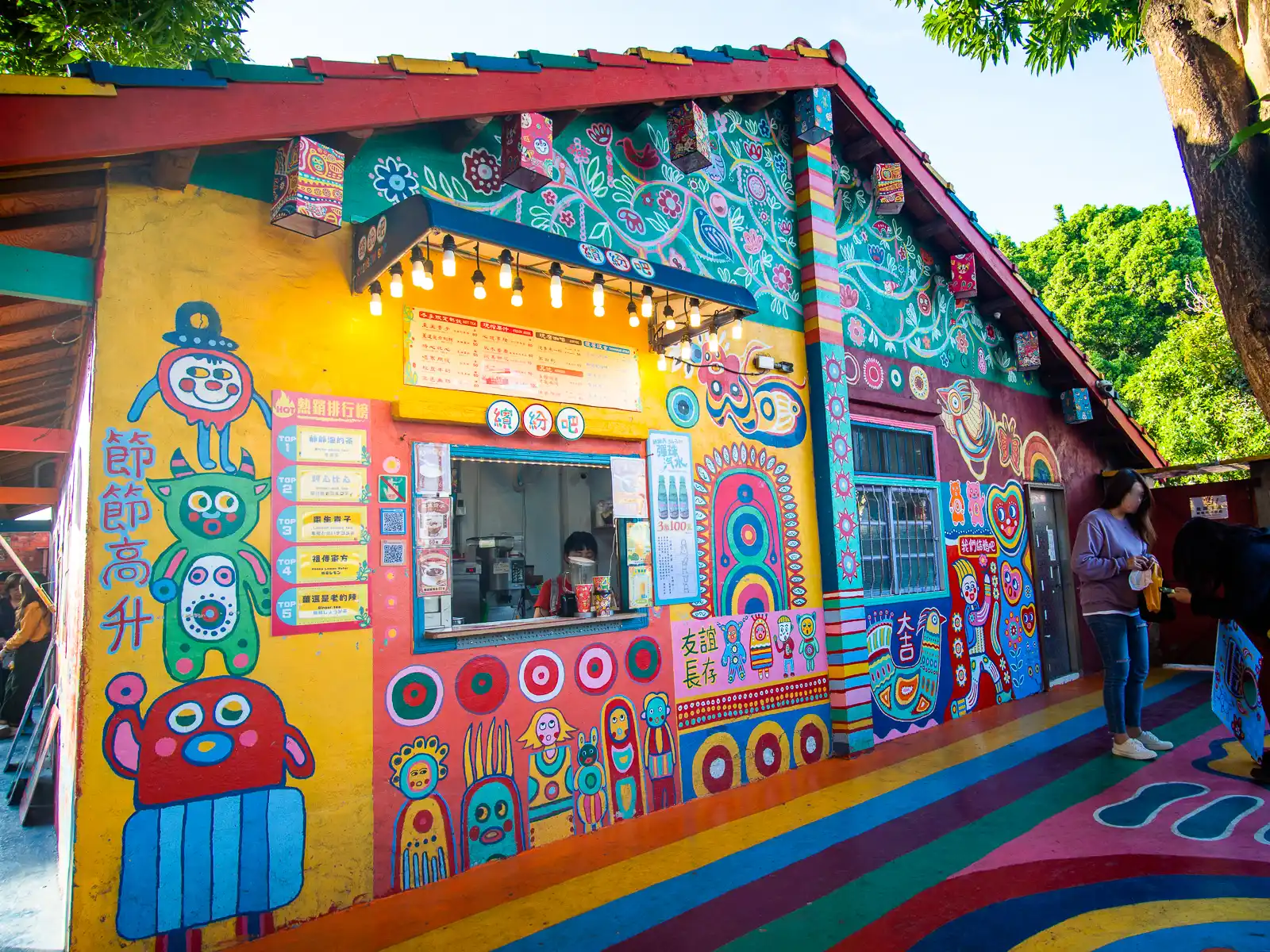
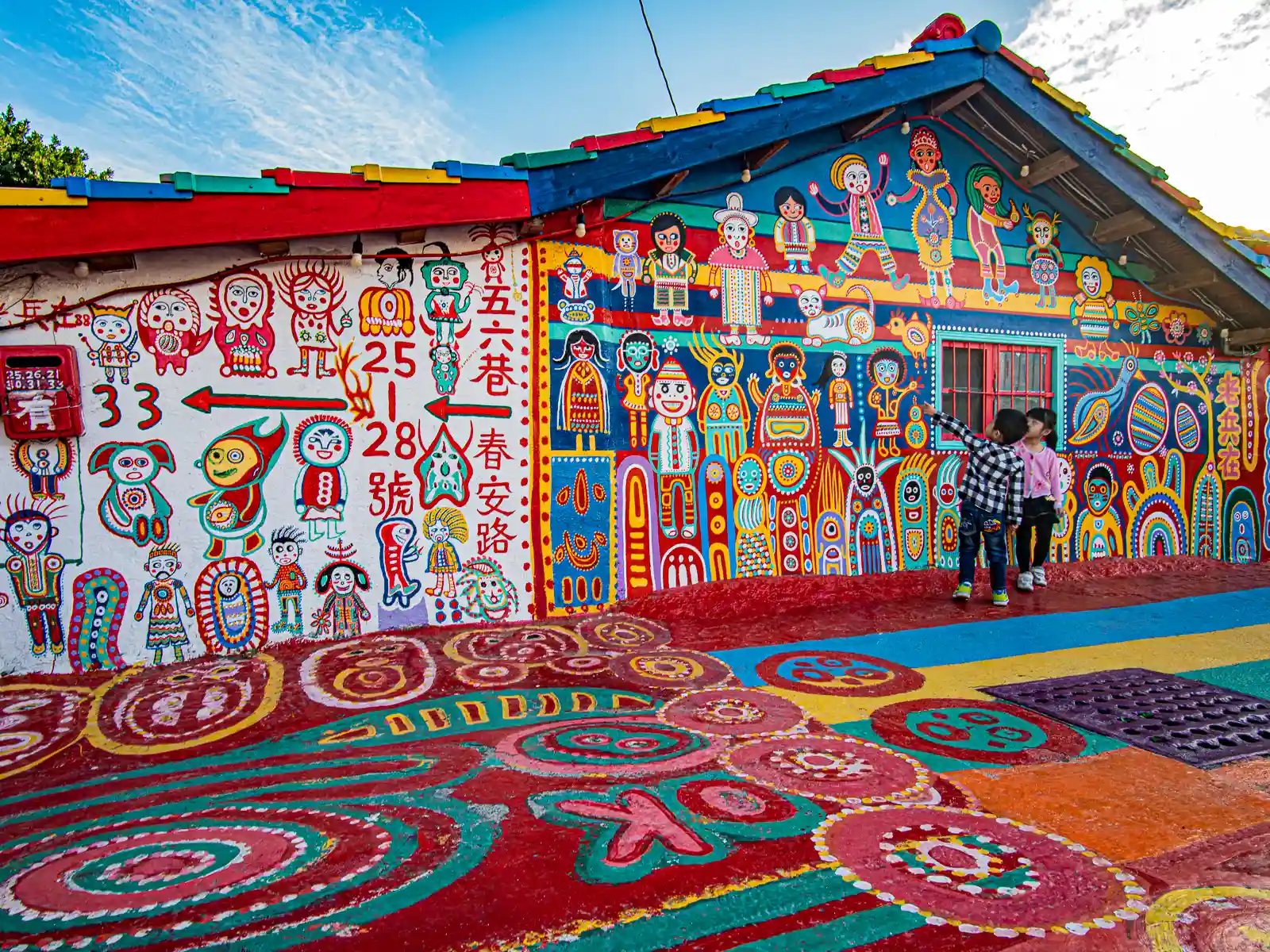
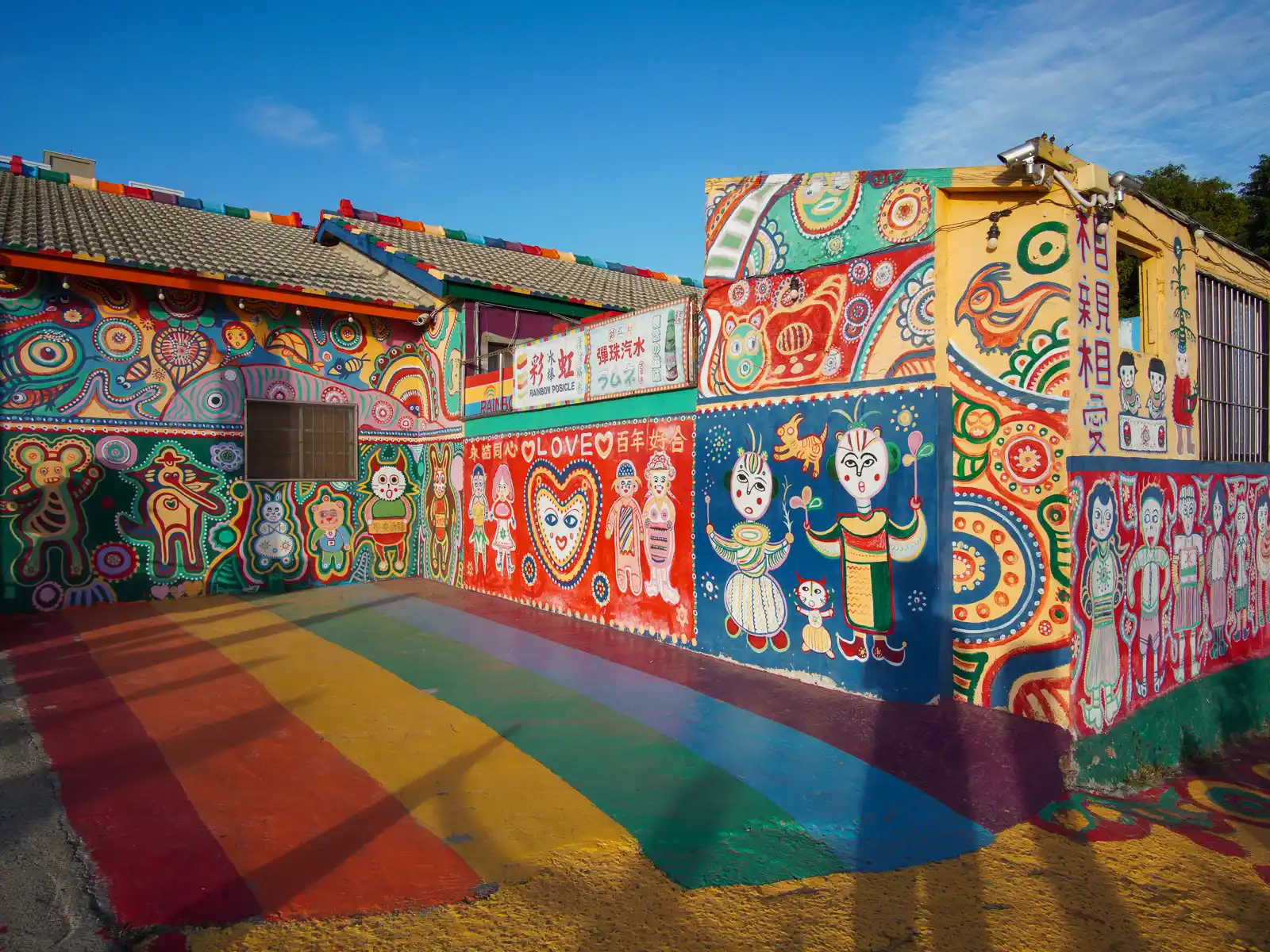
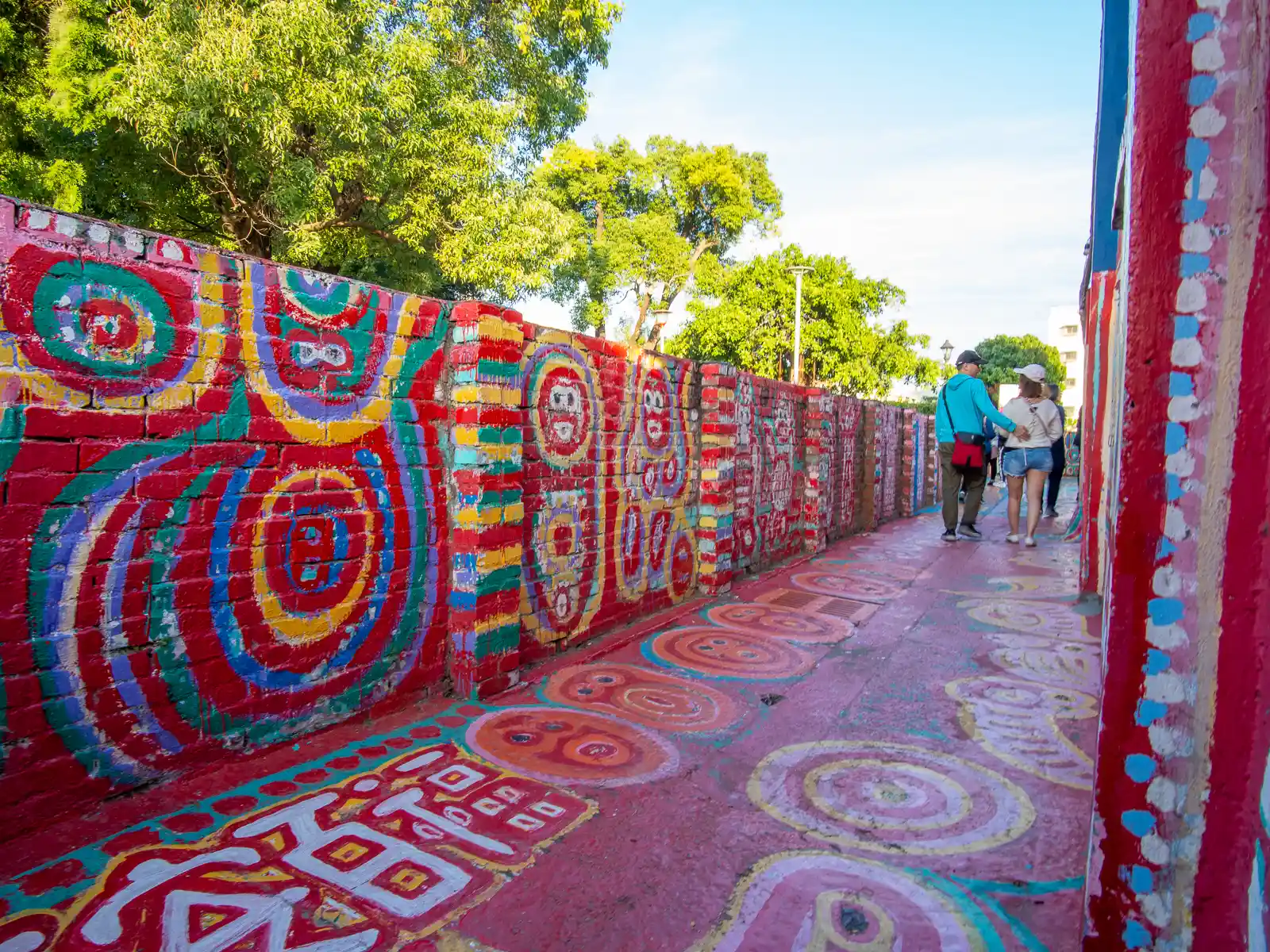
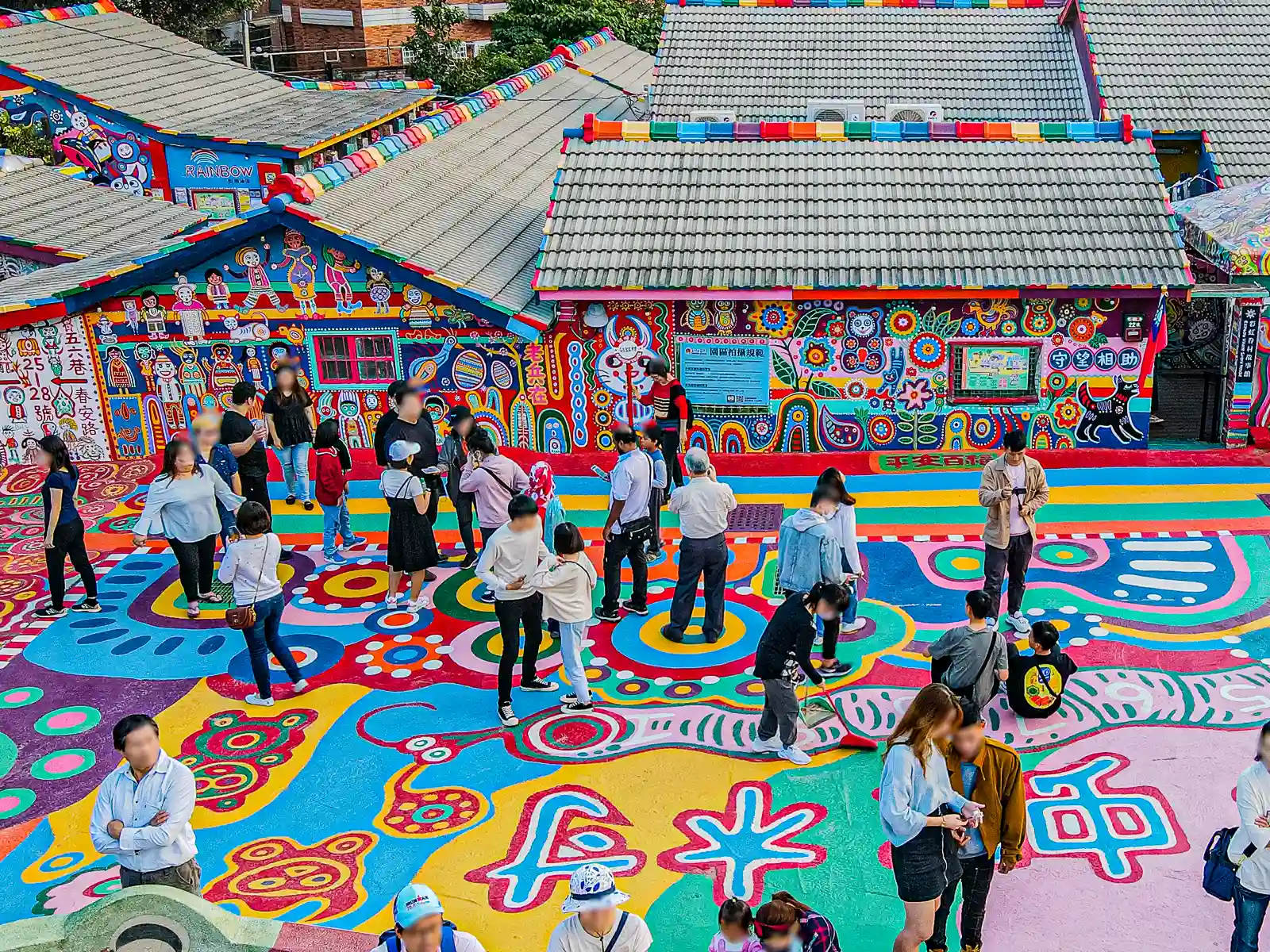
Taichung’s understated Rainbow Village is a colorful collection of beautiful and touching animal-centered murals that decorate a former military village. At this free and non-profit art village, travelers can meander through narrow, cozy alleys decorated with uplifting murals, take photos and selfies, and even have a chance to say hello to Rainbow Grandpa, who up until recent years has still had a hand in maintaining his never-ending project.
Rainbow VIllage’s murals include cute animals, cartoon-like humans, and abstract shapes with multicolored patterns.
Note: After briefly closing down in 2022, Taichung’s vibrant and uplifting Rainbow Village is once again open to the public free of charge.
Dali Art Plaza
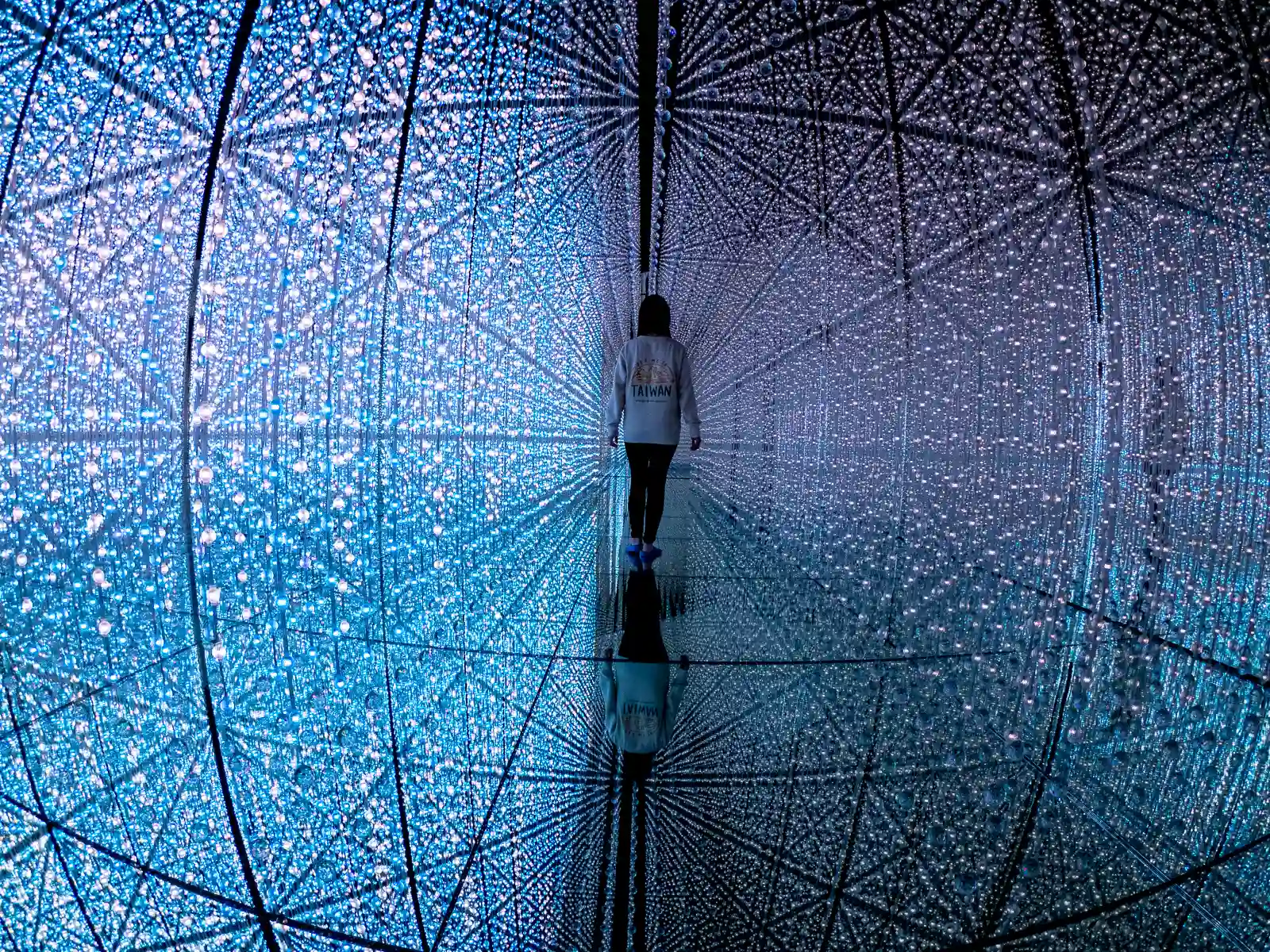
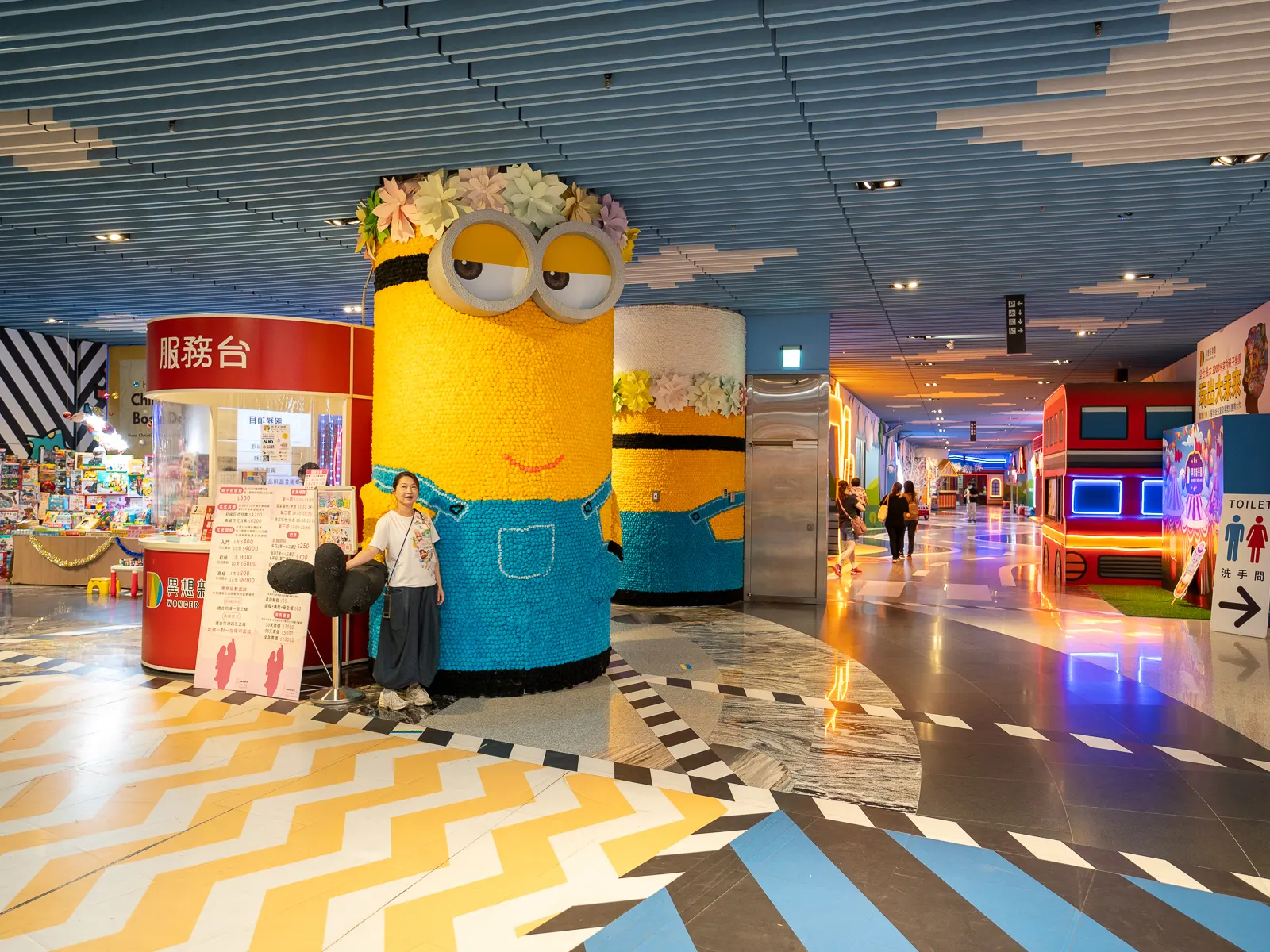
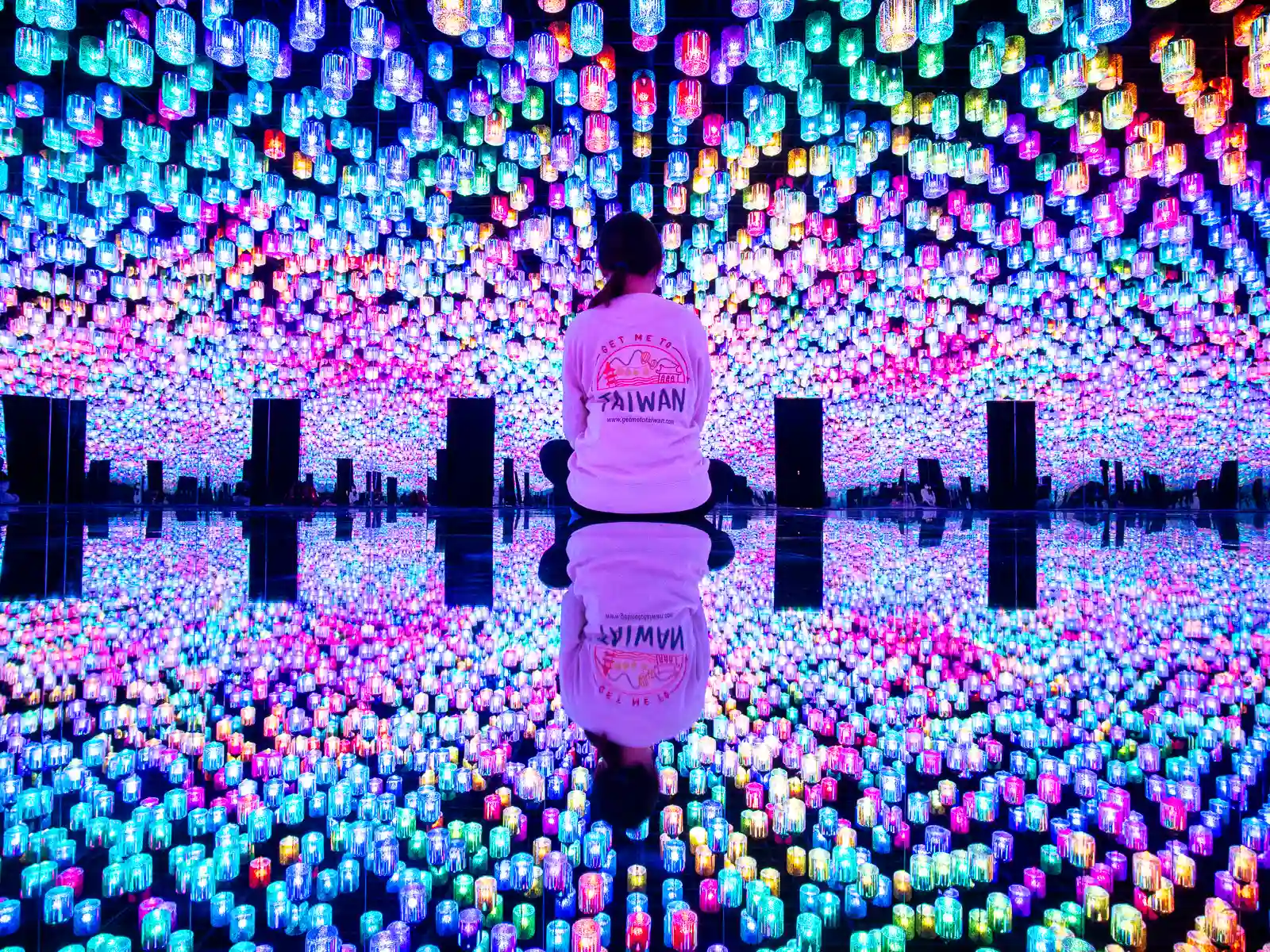
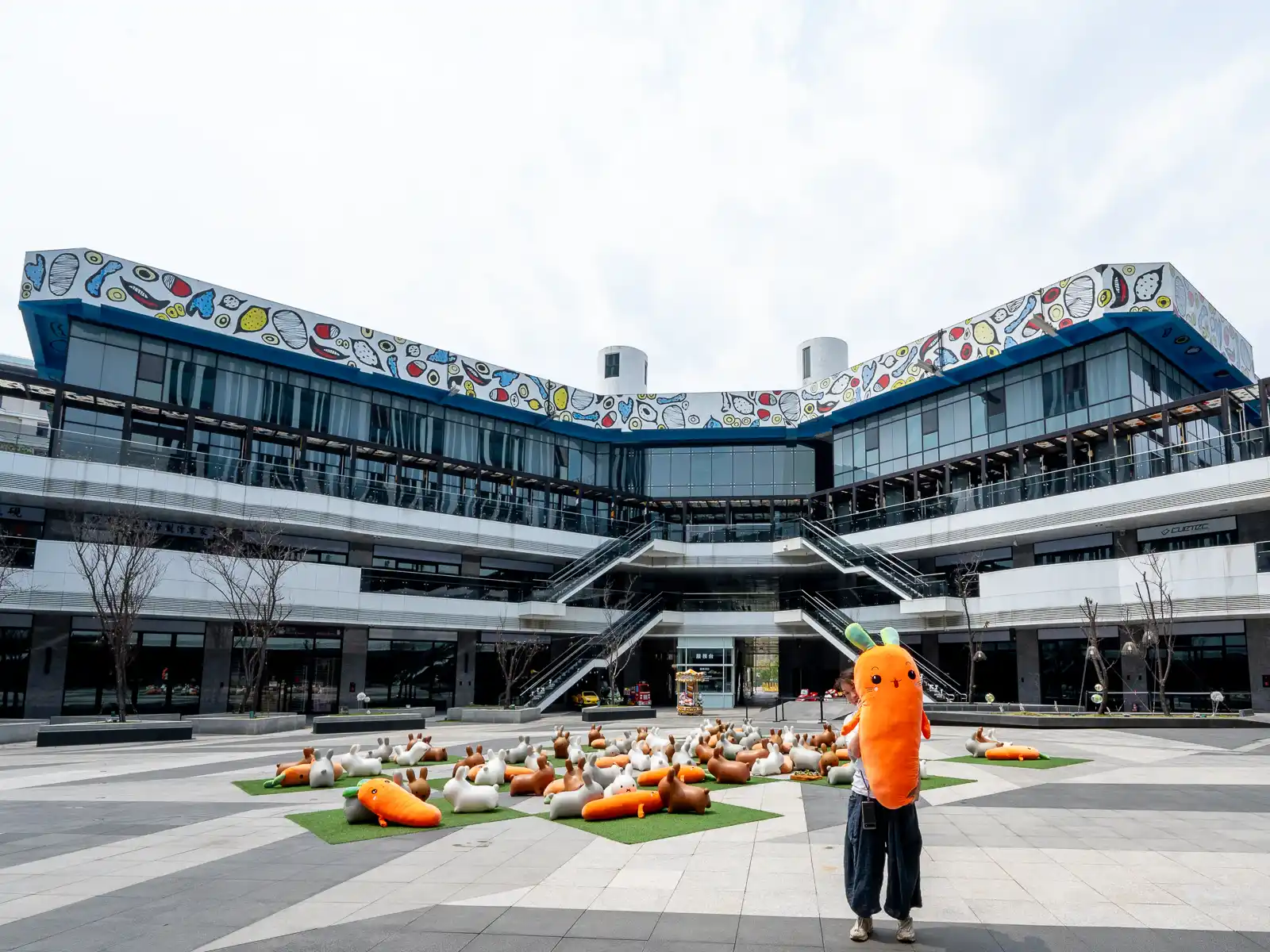
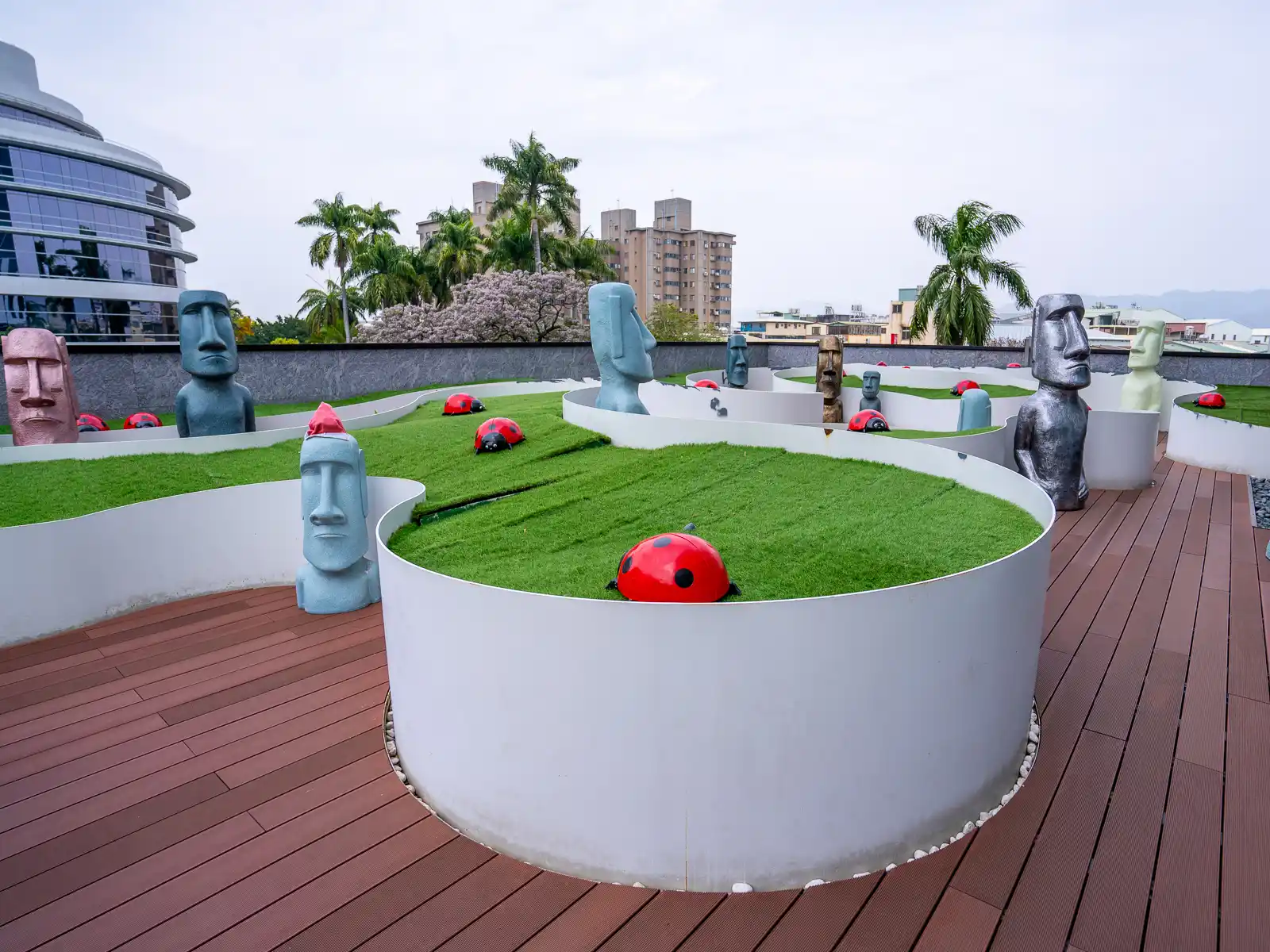
The Dali Art Plaza, located in Taichung Software Park, is home to a vast collection of installation art and has been the venue for numerous design exhibitions. The Plaza’s primary attraction is a theme park by the name of “Wonder Newland”, which features children’s games, a rope maze, go-karts, and many other attractions suitable for the whole family. More than just a play area, it’s designed to enhance and develop a child’s sensory, physical, attention, agility, and learning skills through games. Most notably, five zones—Space, Shadow, Fantasy, Mirror, and Legend—create an immersive art experience that combines illusion with reality.
The Dali Art Plaza also hosts the annual Taiwan Cultural and Creative Art Fair during the lunar year. This event showcases exhibitions from renowned local and international artists.
Feng Chia Night Market
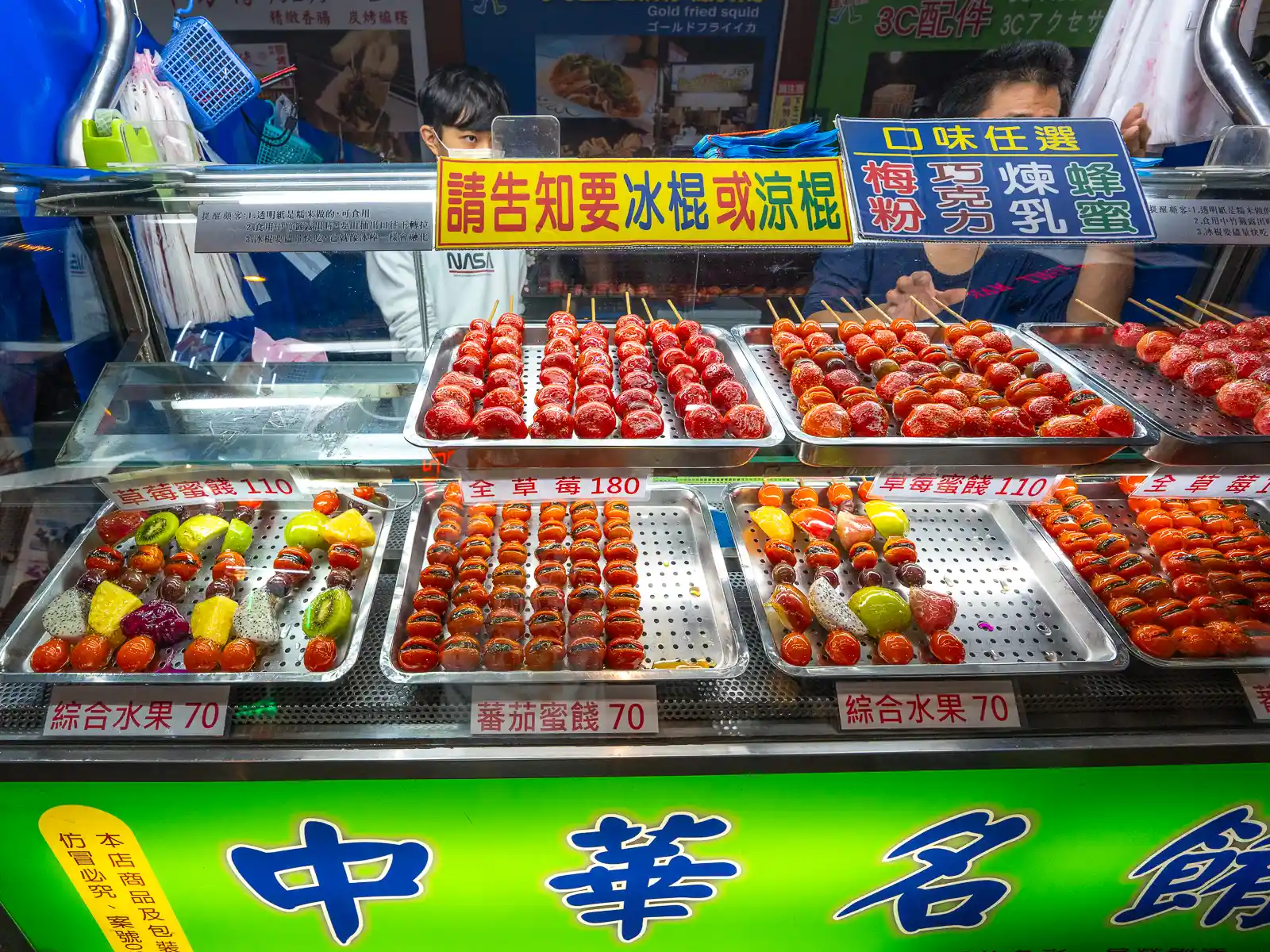
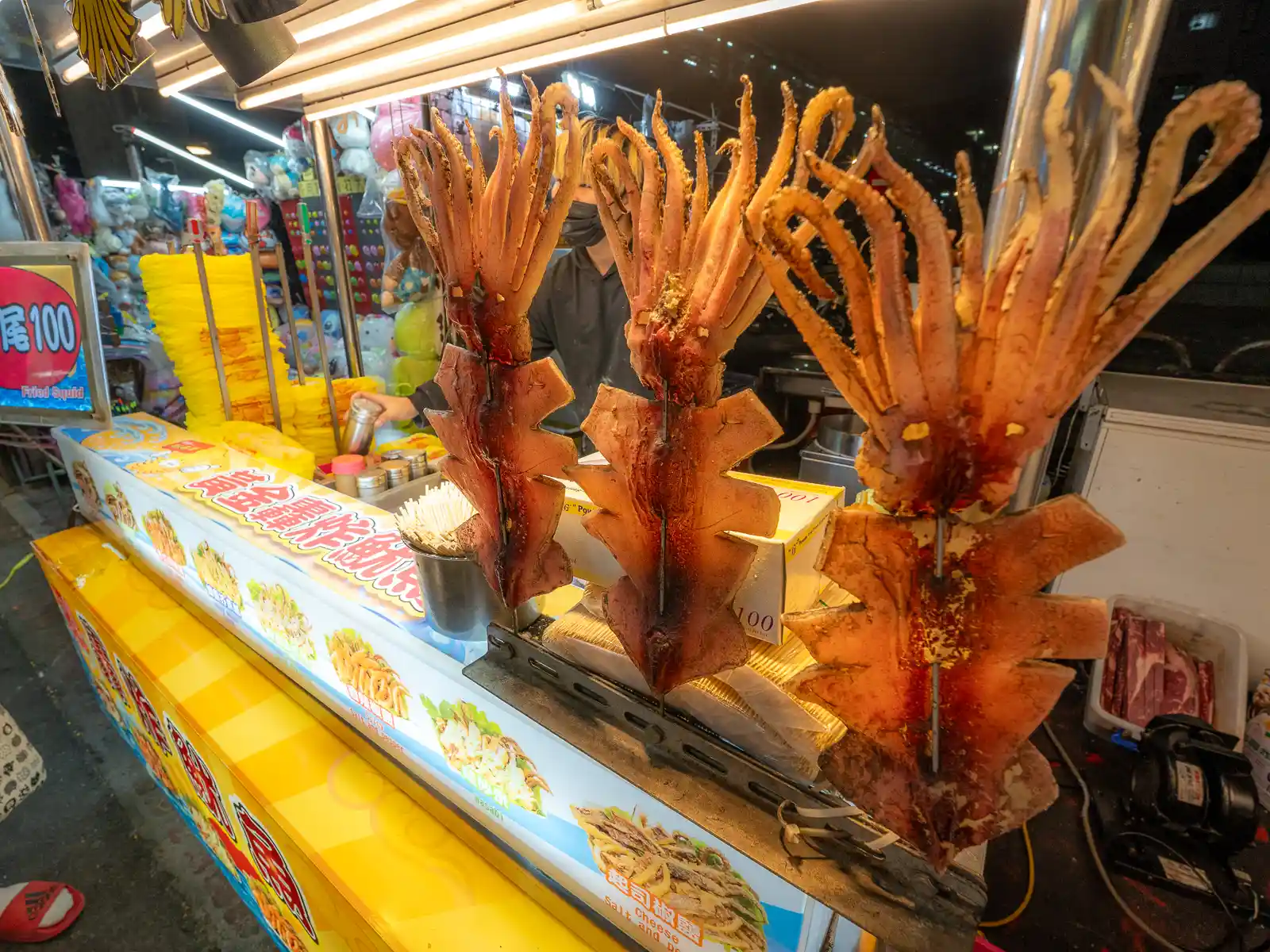
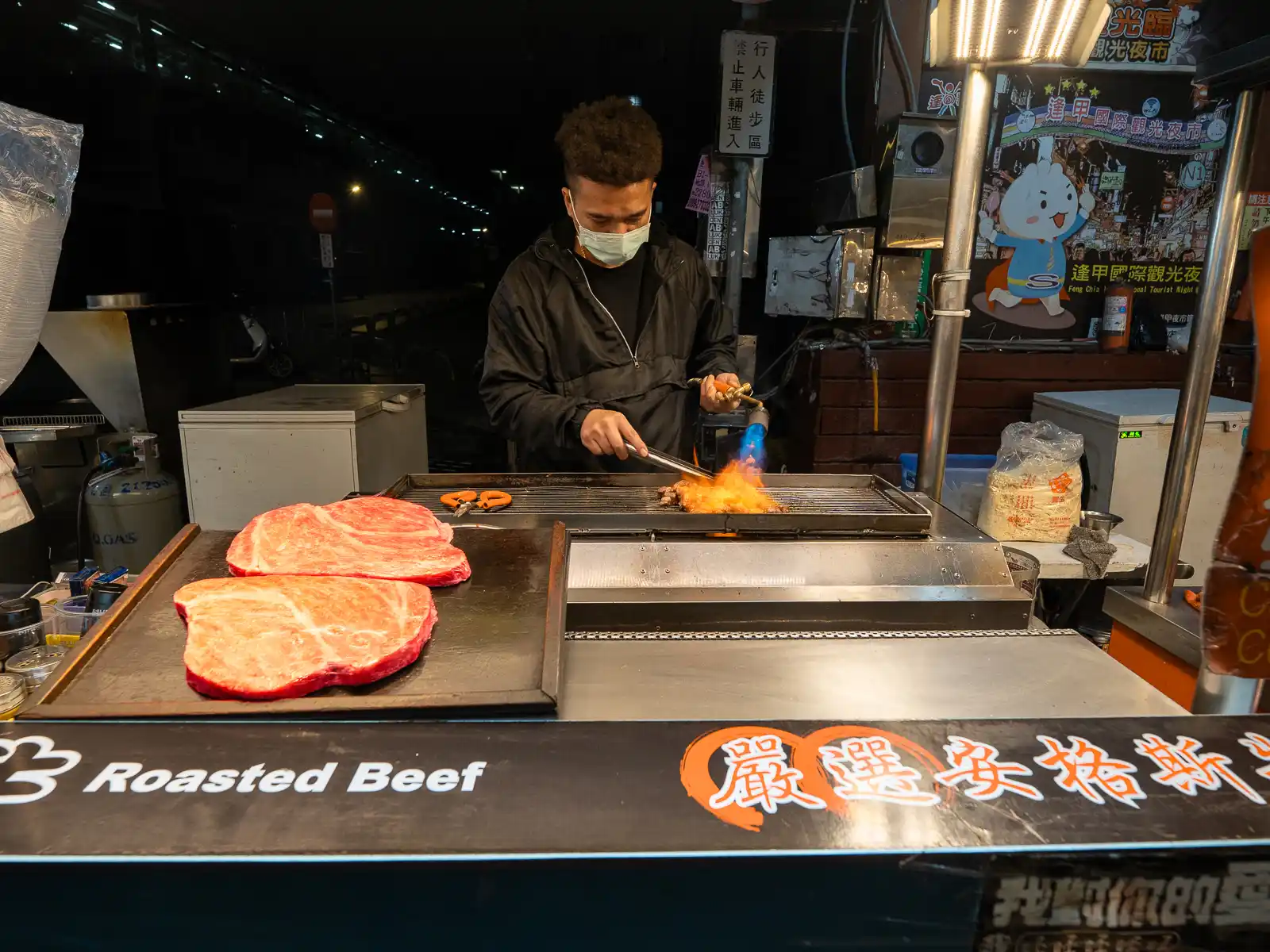
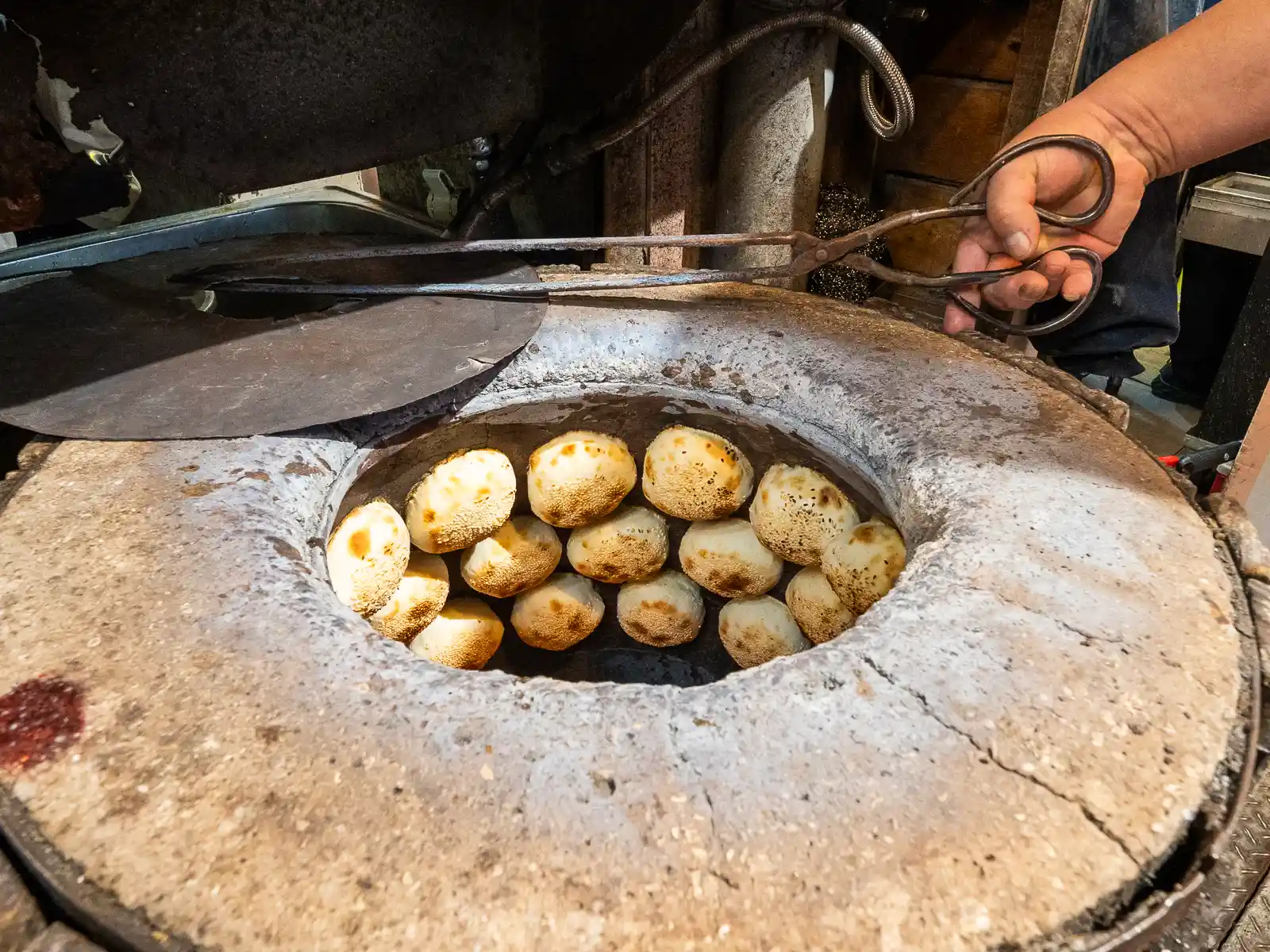

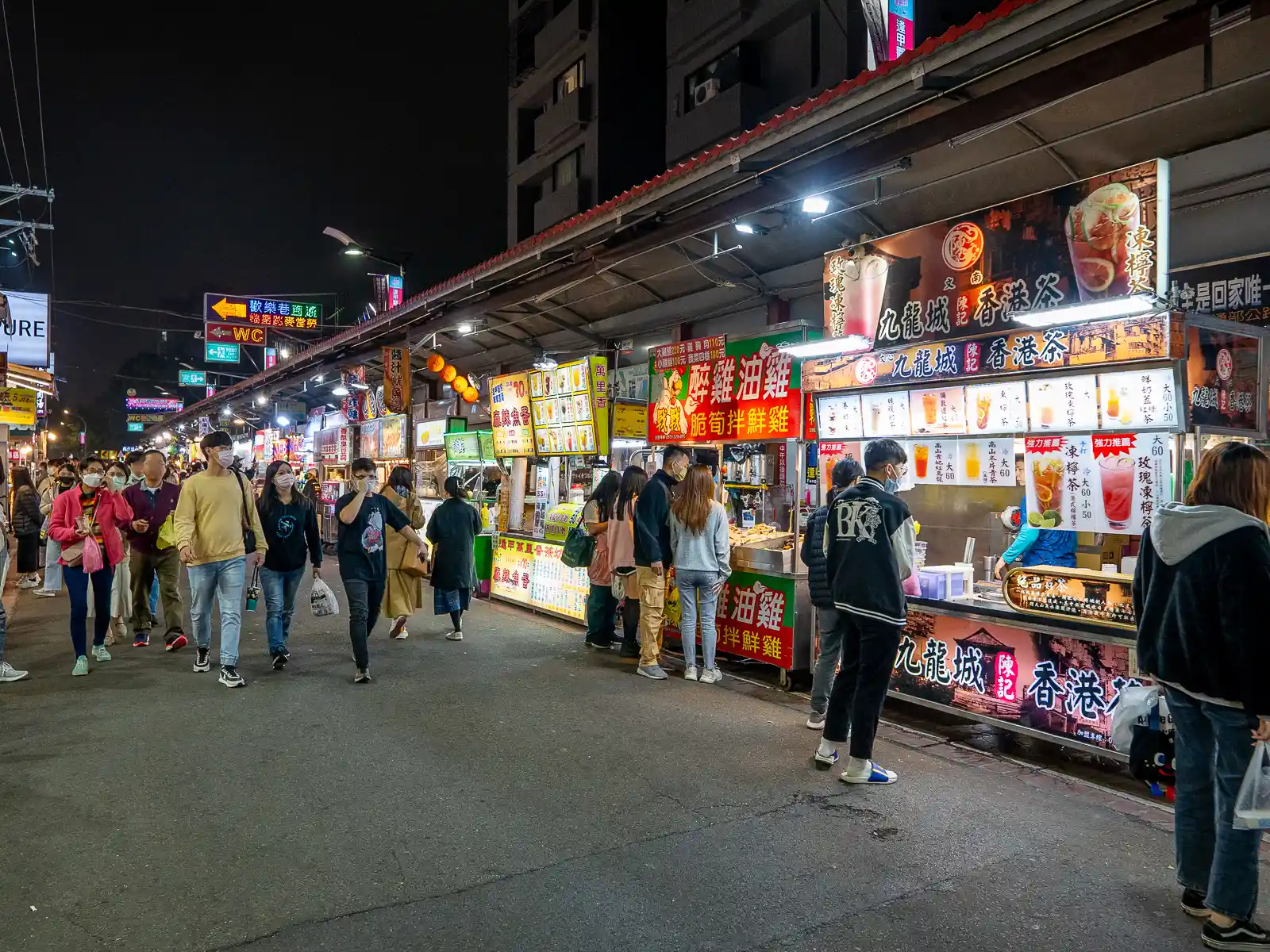
Located next to Feng Chia University, the trendy Feng Chia Night Market is famous for its size and innovative foods. Its lanes are lined with full-scale restaurants, traditional eateries, and food stands, all offering something different—while traditional dishes like stinky tofu are available here, we recommend trying something unique, because there’s a big chance you might not find it anywhere else!
Taichung’s wider street design also makes the market feel less crowded and less claustrophobic than many of Taipei’s night markets, making it a good place to shop for night market souvenirs or clothing.
Did you know that Feng Chia Night Market is one of our recommended Top 5 Night Markets in Taiwan? Follow the link to find out which other night markets shouldn’t be missed.
Zhao Zhao Tea Lounge
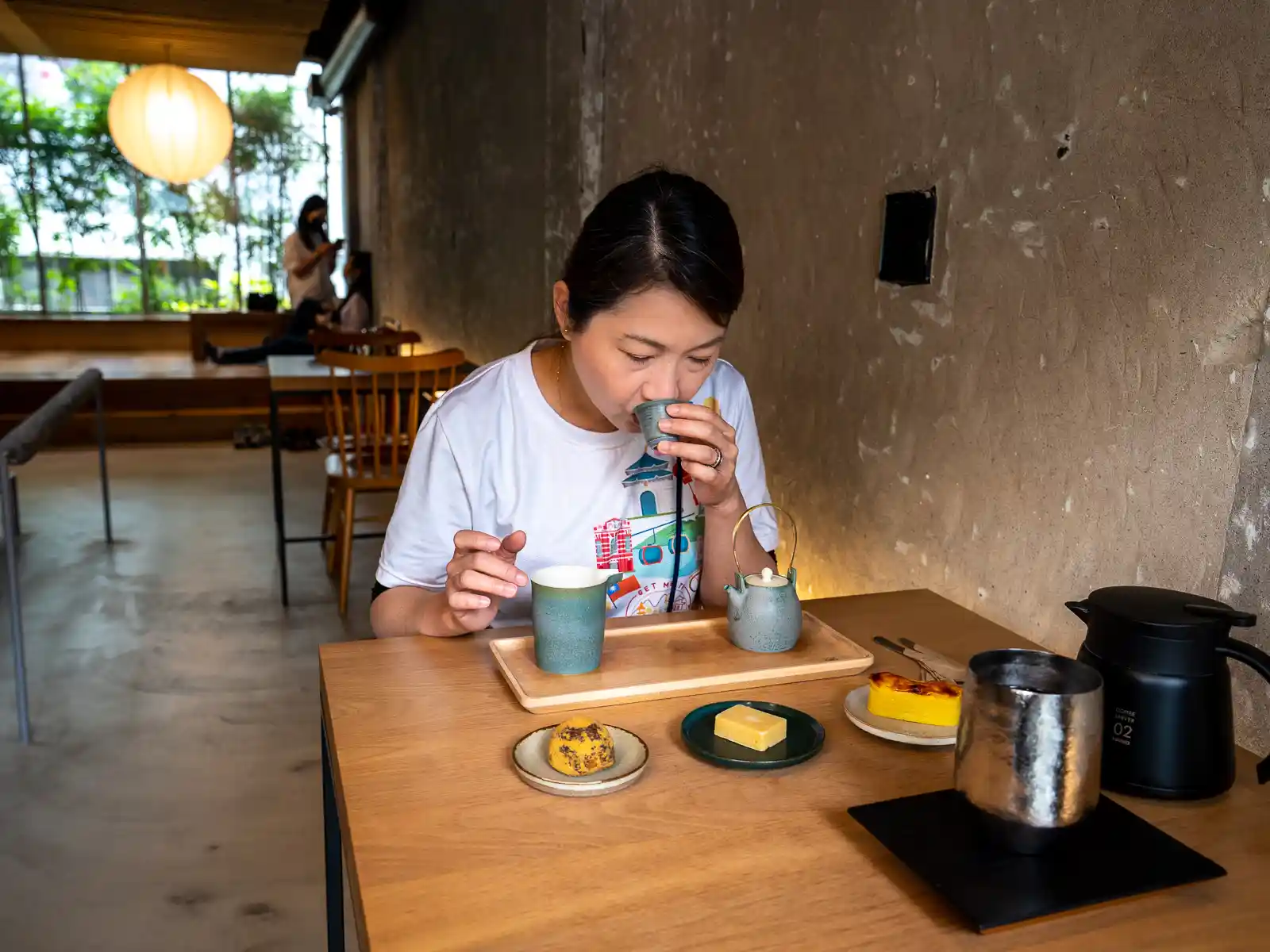
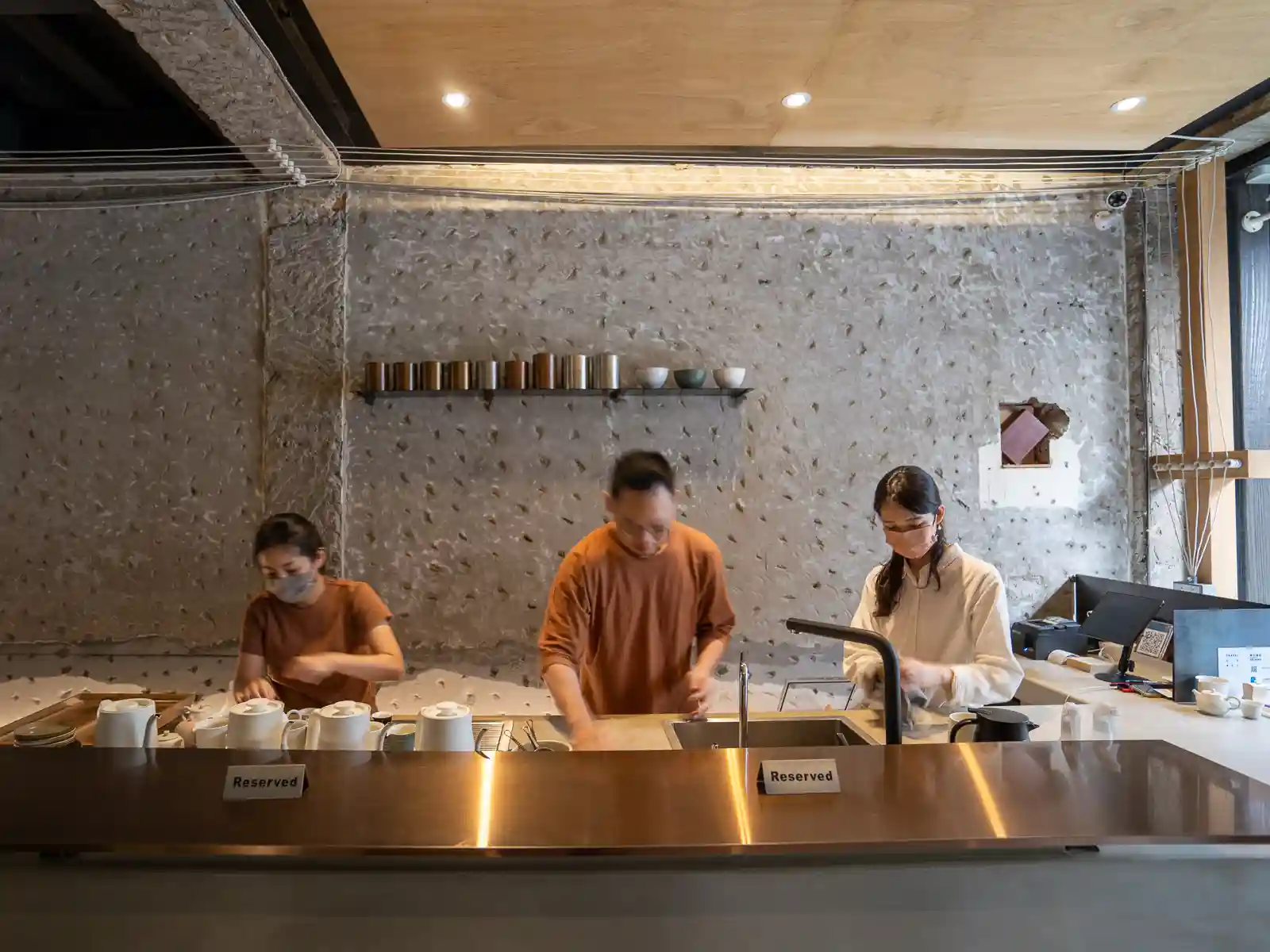
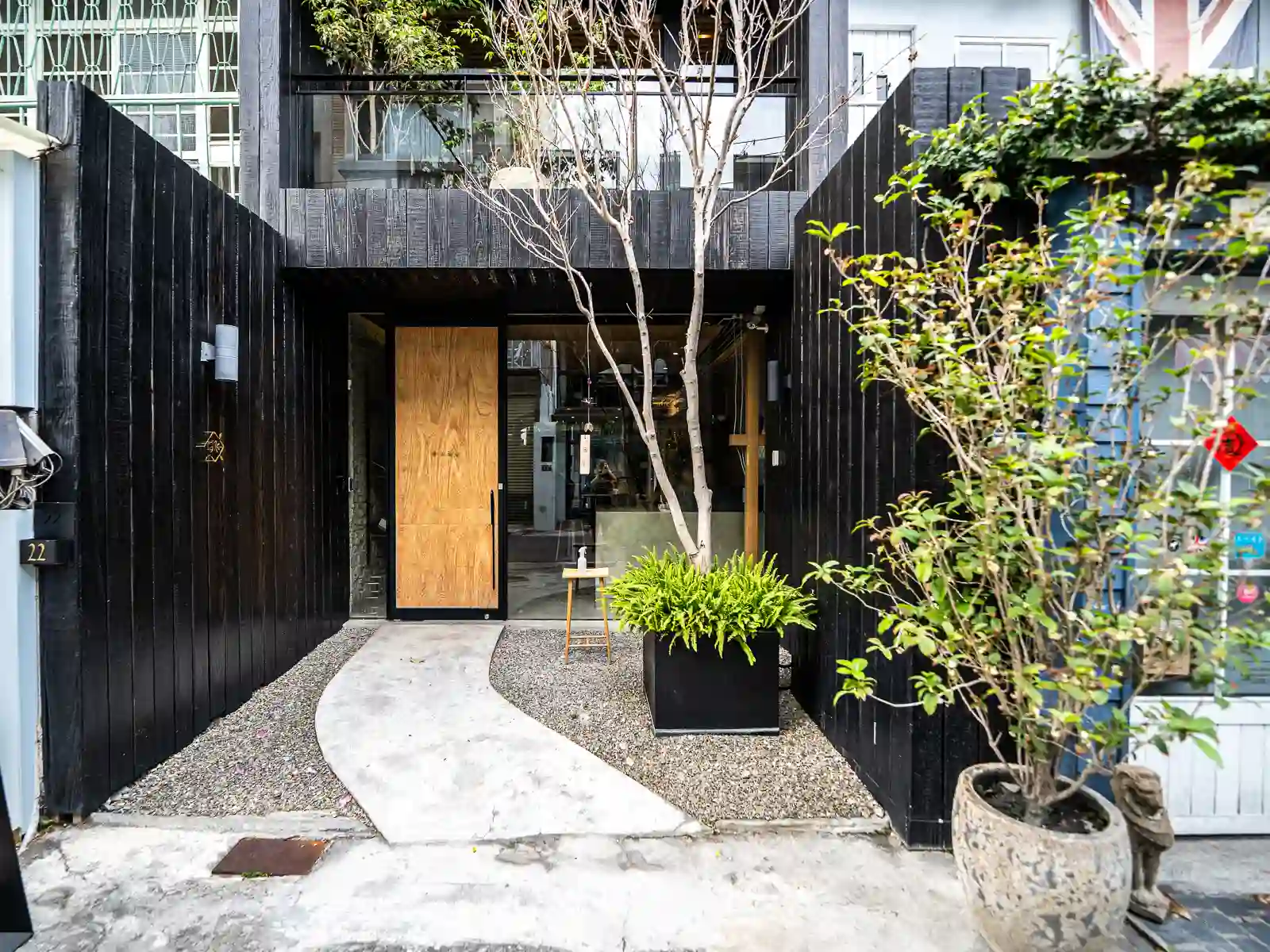
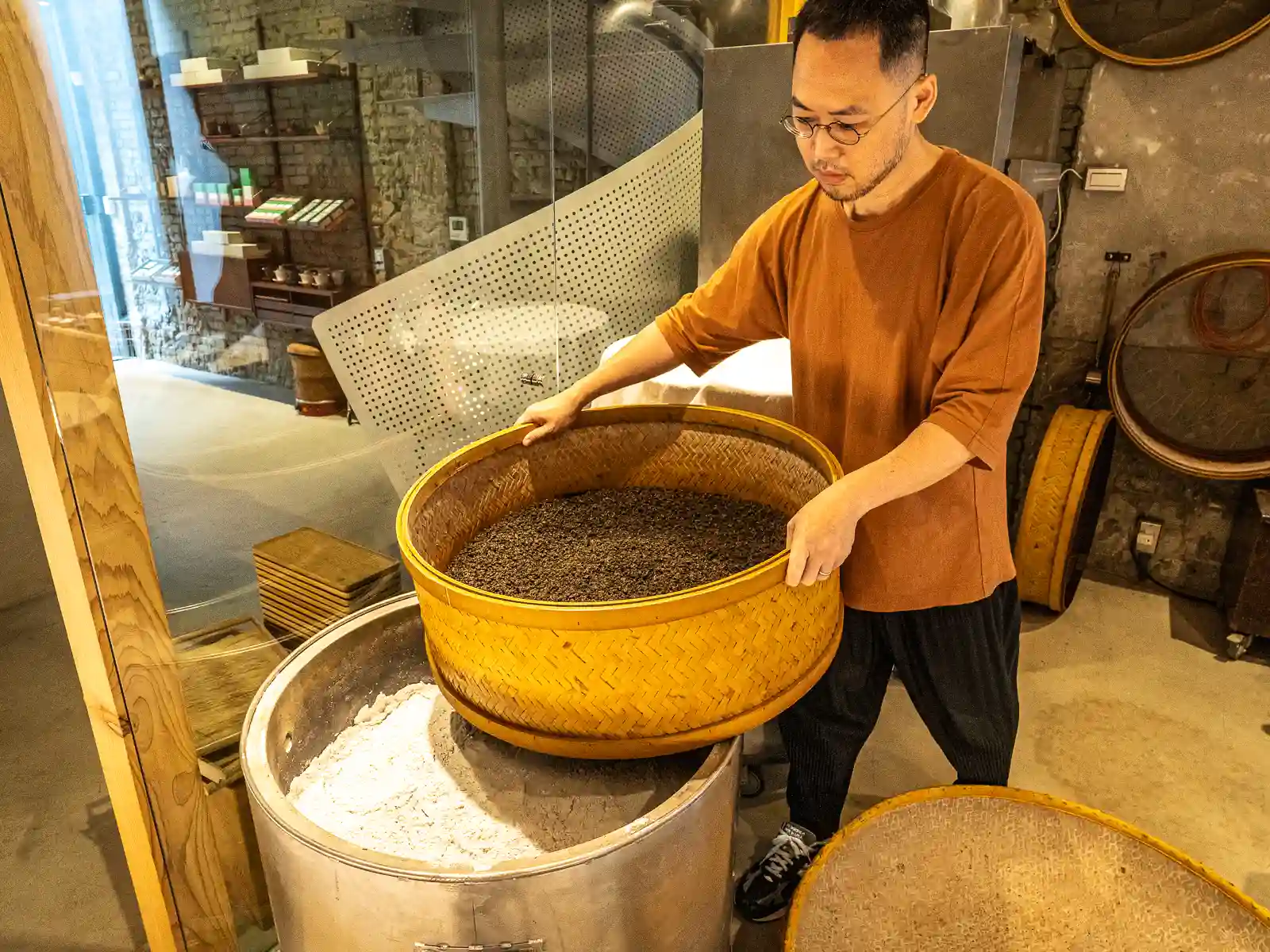
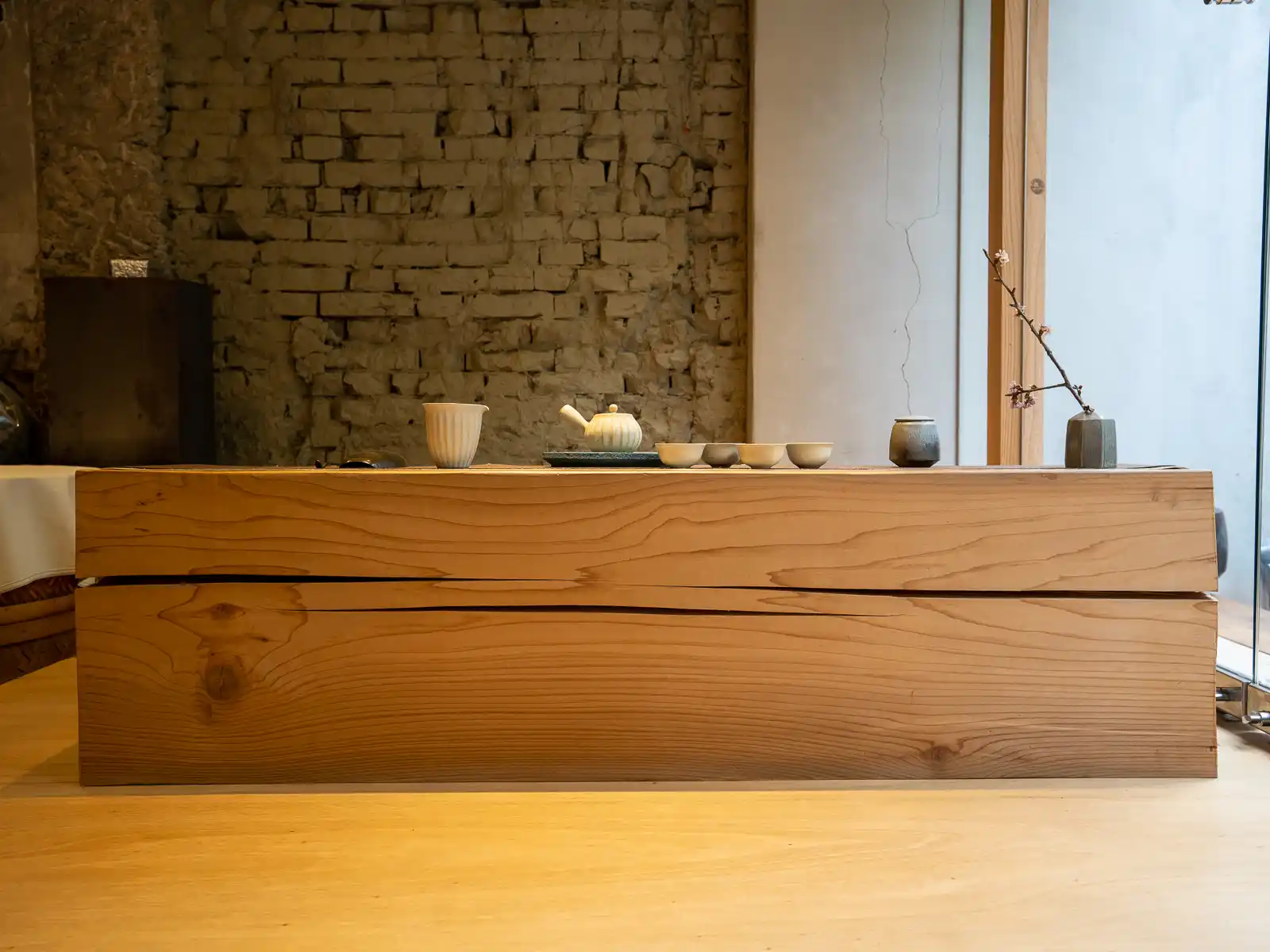
Like Miyahara and Shenji New Village, Zhao Zhao Tea Lounge is another trendy business located in repurposed or renovated heritage architecture. This trendy tea lounge is located in a modified 1950s apartment that pays tribute to the past while welcoming the future.
The interior of the residence has been rebuilt from the ground up in a contemporary aesthetic, featuring a trendy bar area and minimalist seating arrangements on the second floor—various seating styles, including bar-style, table-style, and floor-style seating, are available.
However, the true highlight of Zhao Zhao Tea Lounge is the tea roasting area located on the first floor, where the owner, Zongjun Chen, skillfully roasts tea leaves in front of patrons.
National Museum of Natural Science
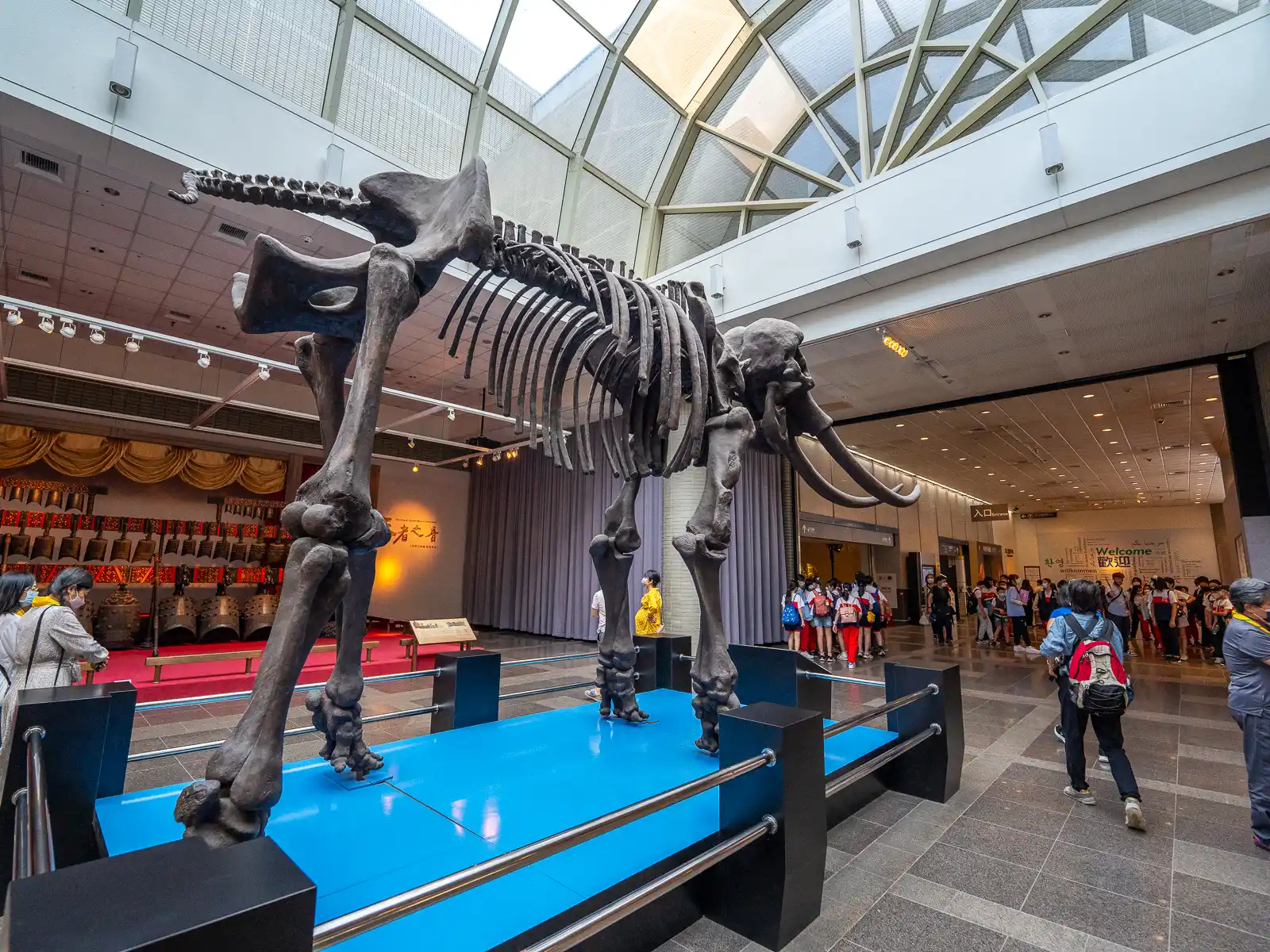
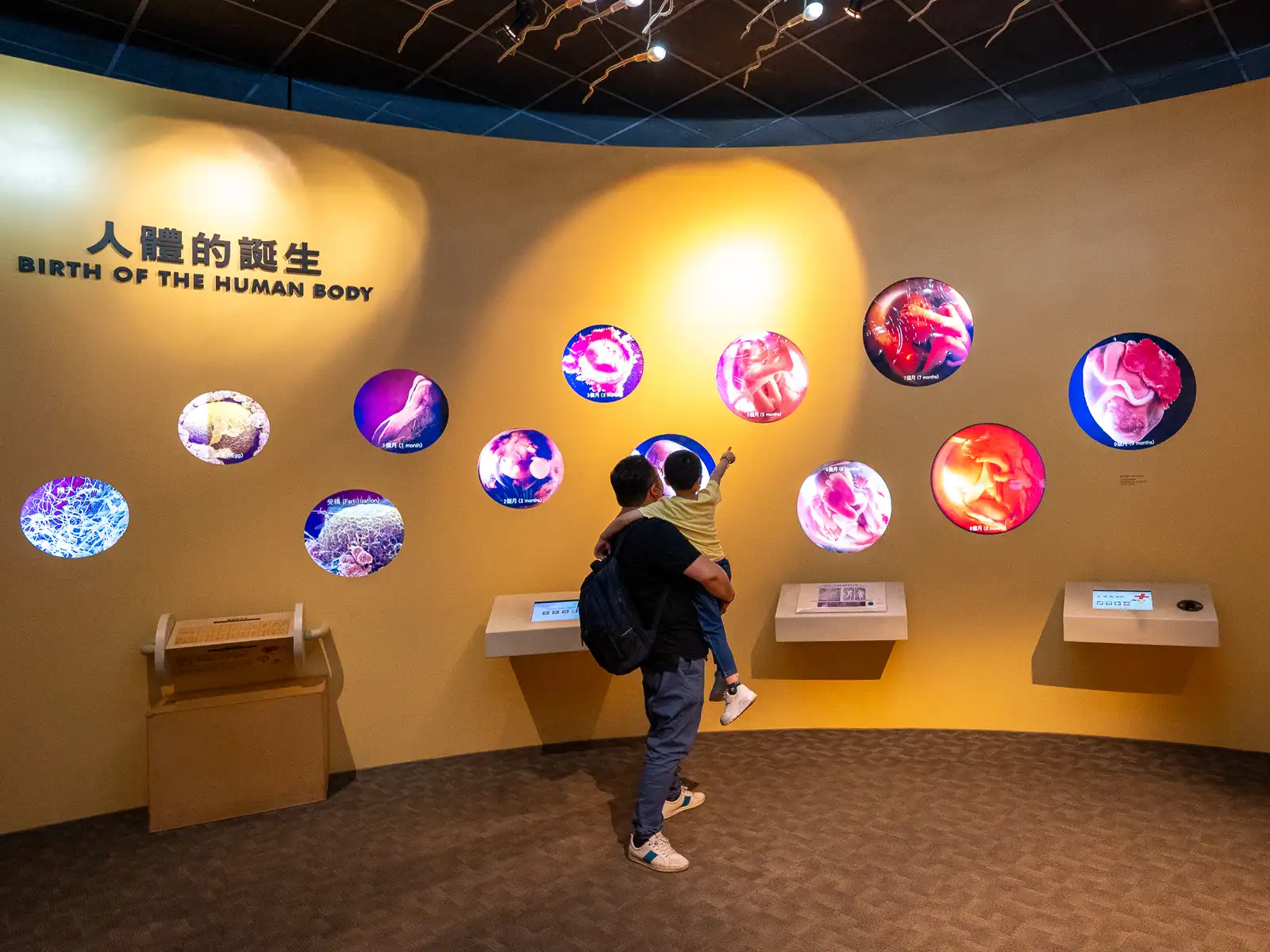
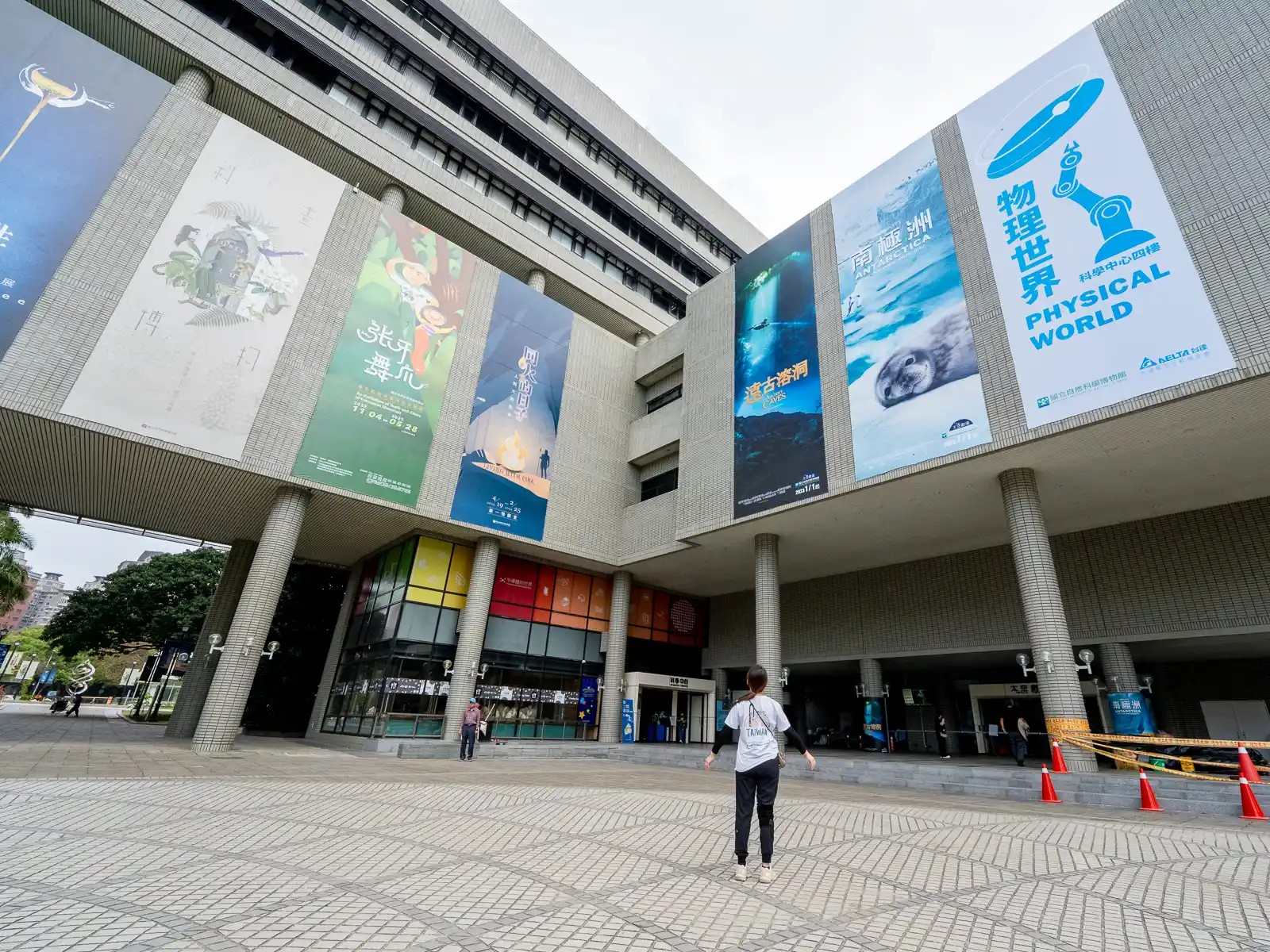
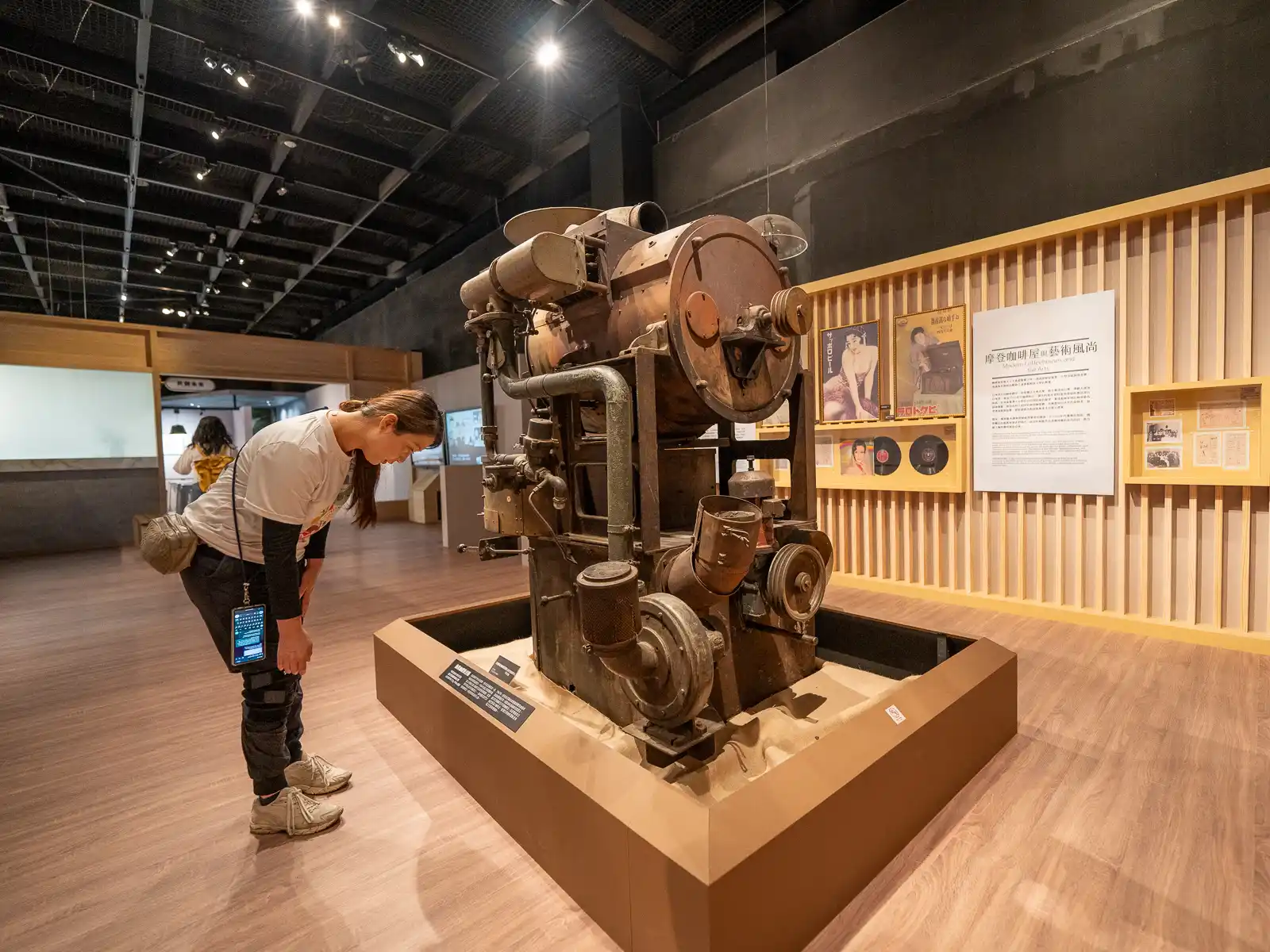
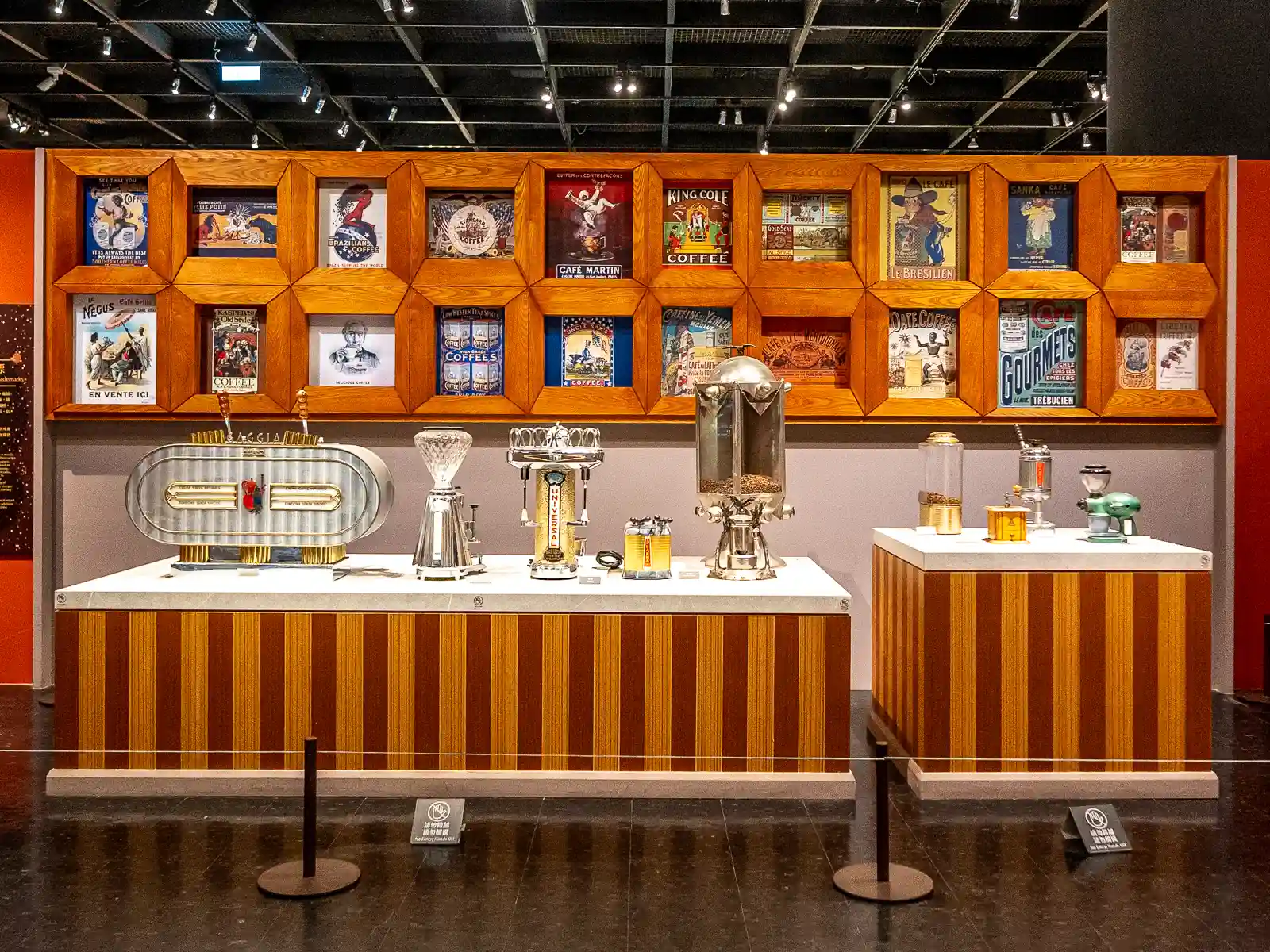
The National Museum of Natural Science is a modern museum that offers world-class exhibitions spanning from Egyptian mummies to a retrospective of coffee machines. With its excellent bilingual signage and family-oriented and educational exhibits, it’s a perfect destination for travelers with children.
Visitors can embark on educational journeys through numerous exhibits which showcase a wide range of scientific disciplines such as geology, paleontology, astronomy, and biology. The museum features interactive displays, immersive multimedia presentations, and hands-on activities, allowing visitors to engage and learn in a fun and informative manner.
Additionally, the museum houses a planetarium, a botanical garden, and an insectarium, providing unique experiences and insights into the wonders of nature.
Shenji New Village (Moon Market)
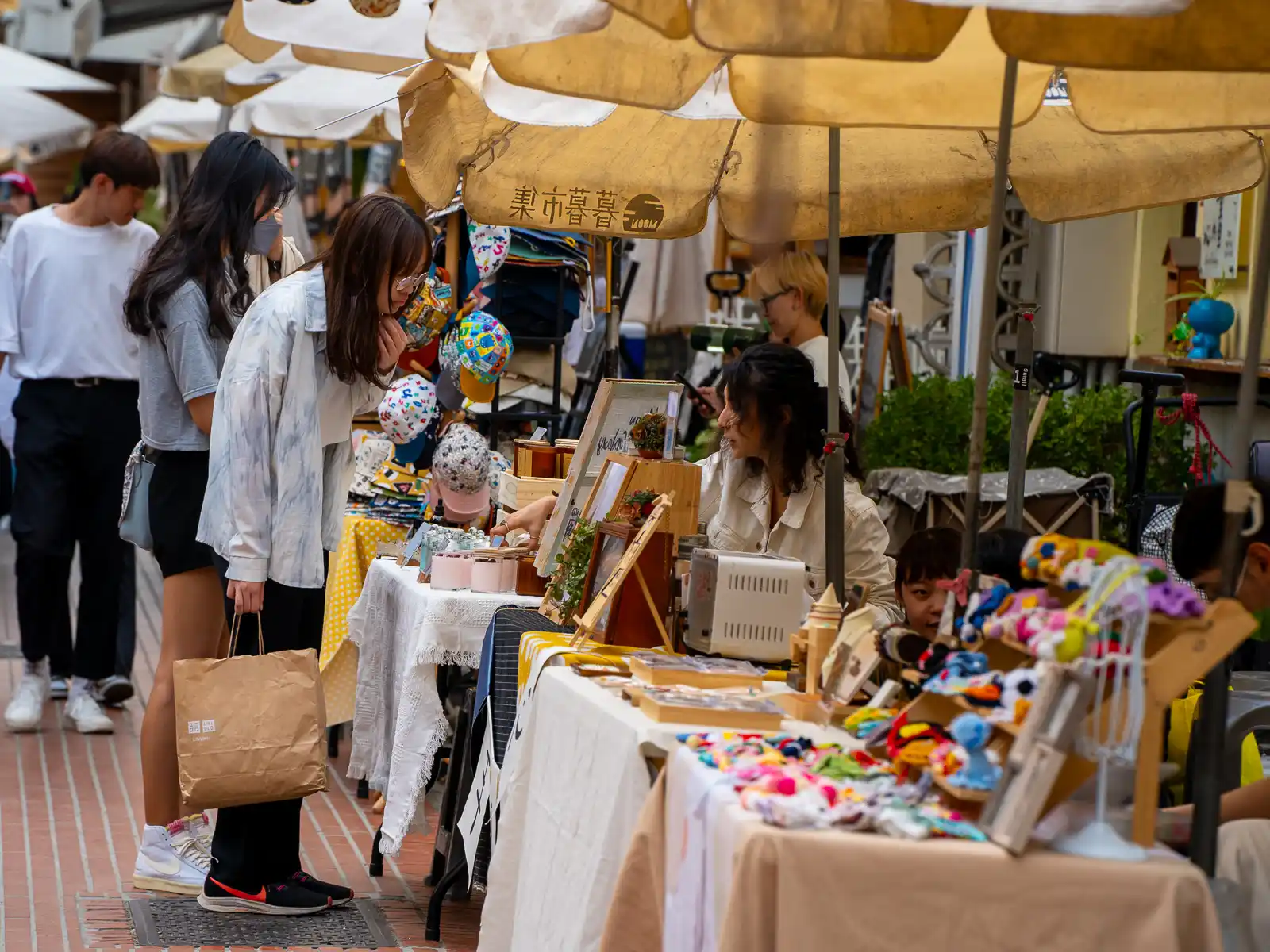
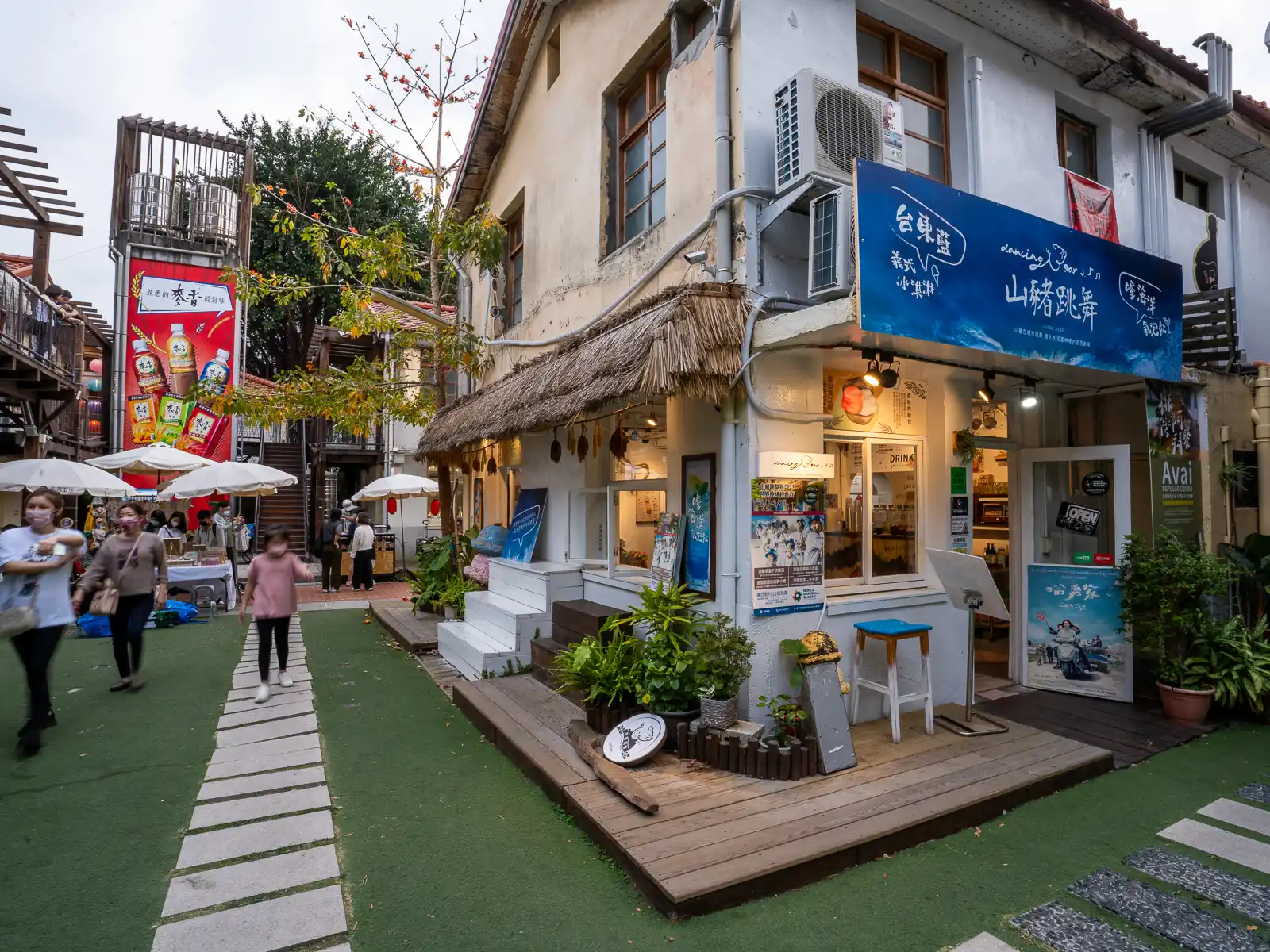
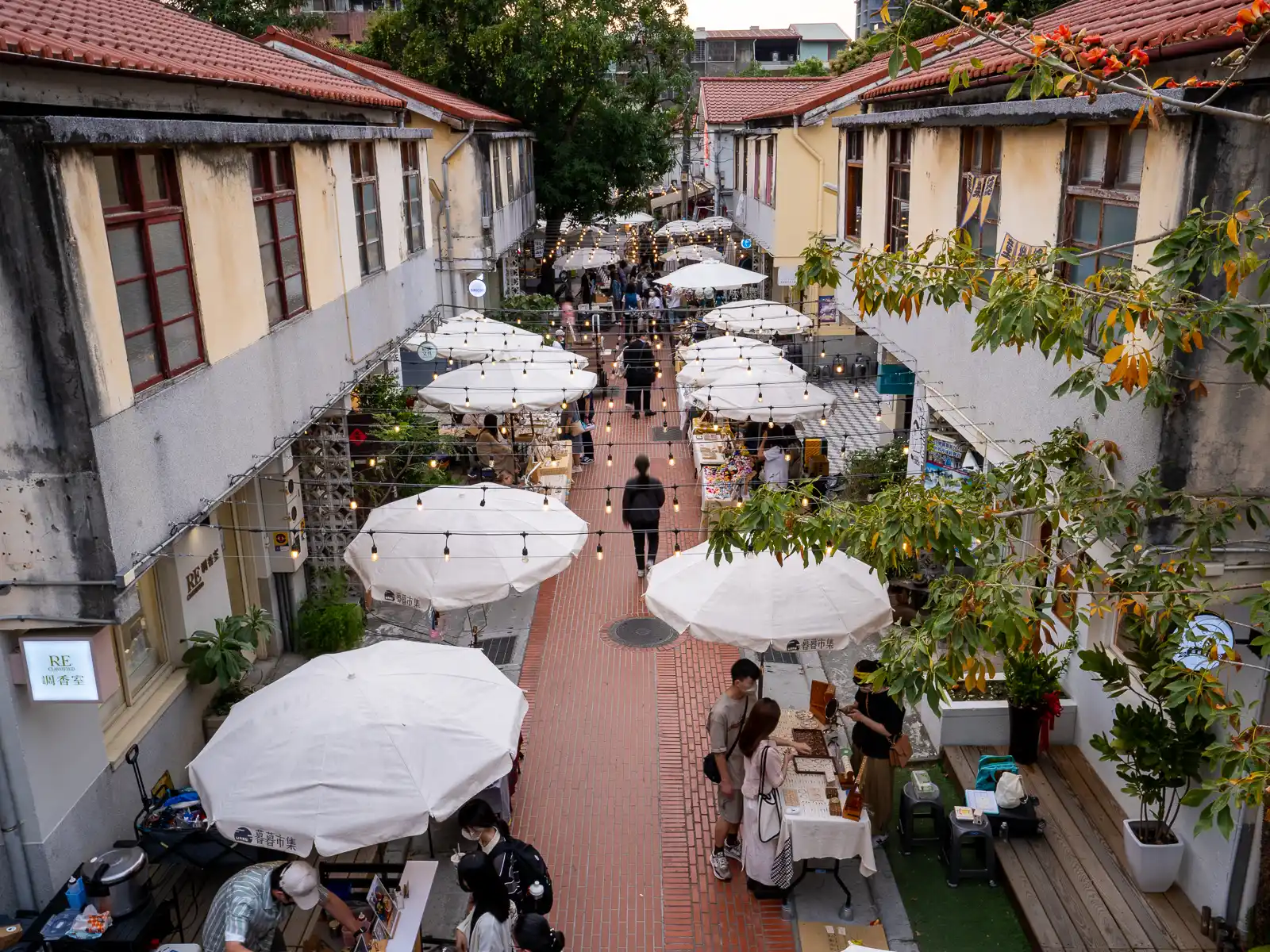
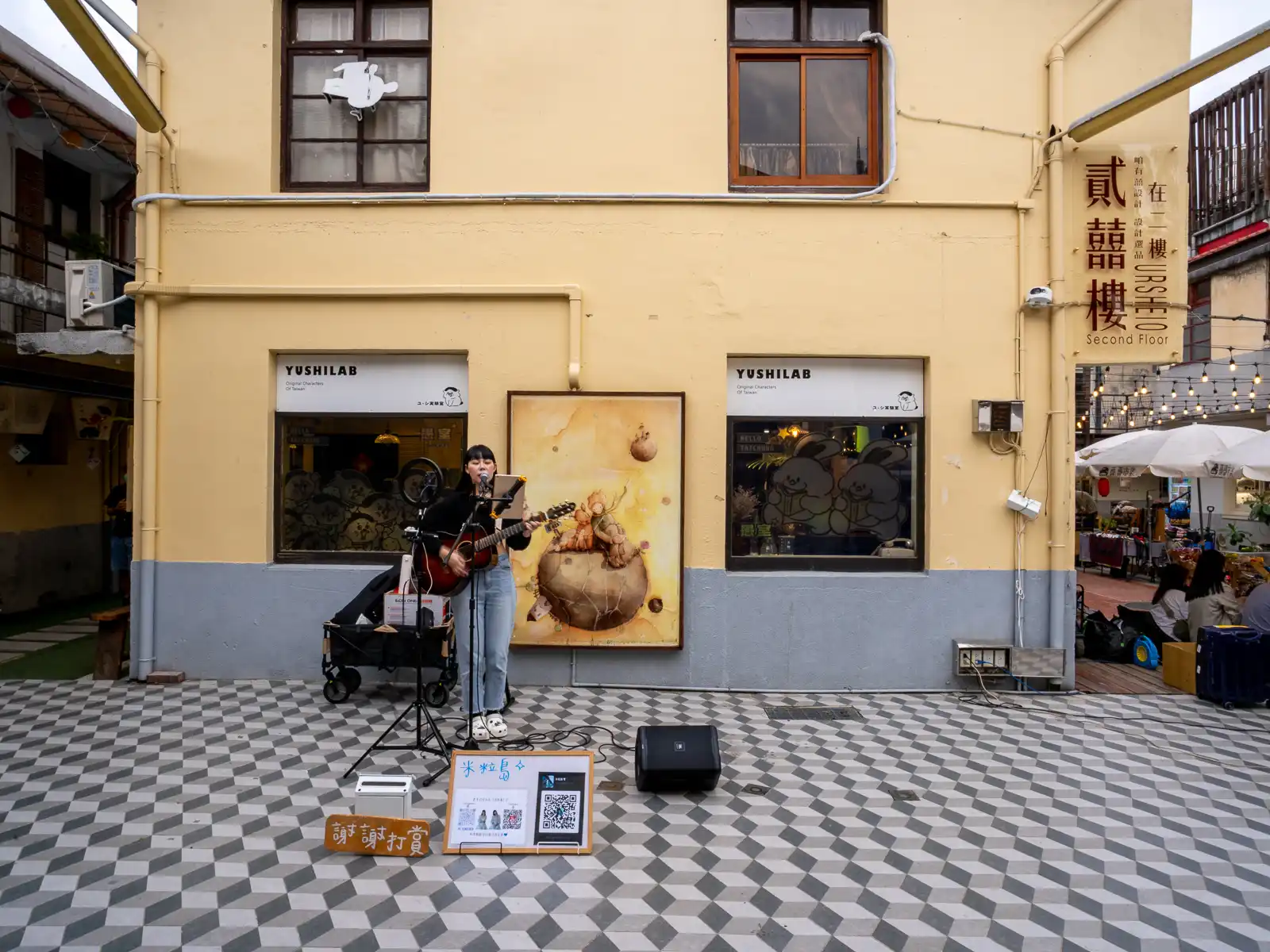
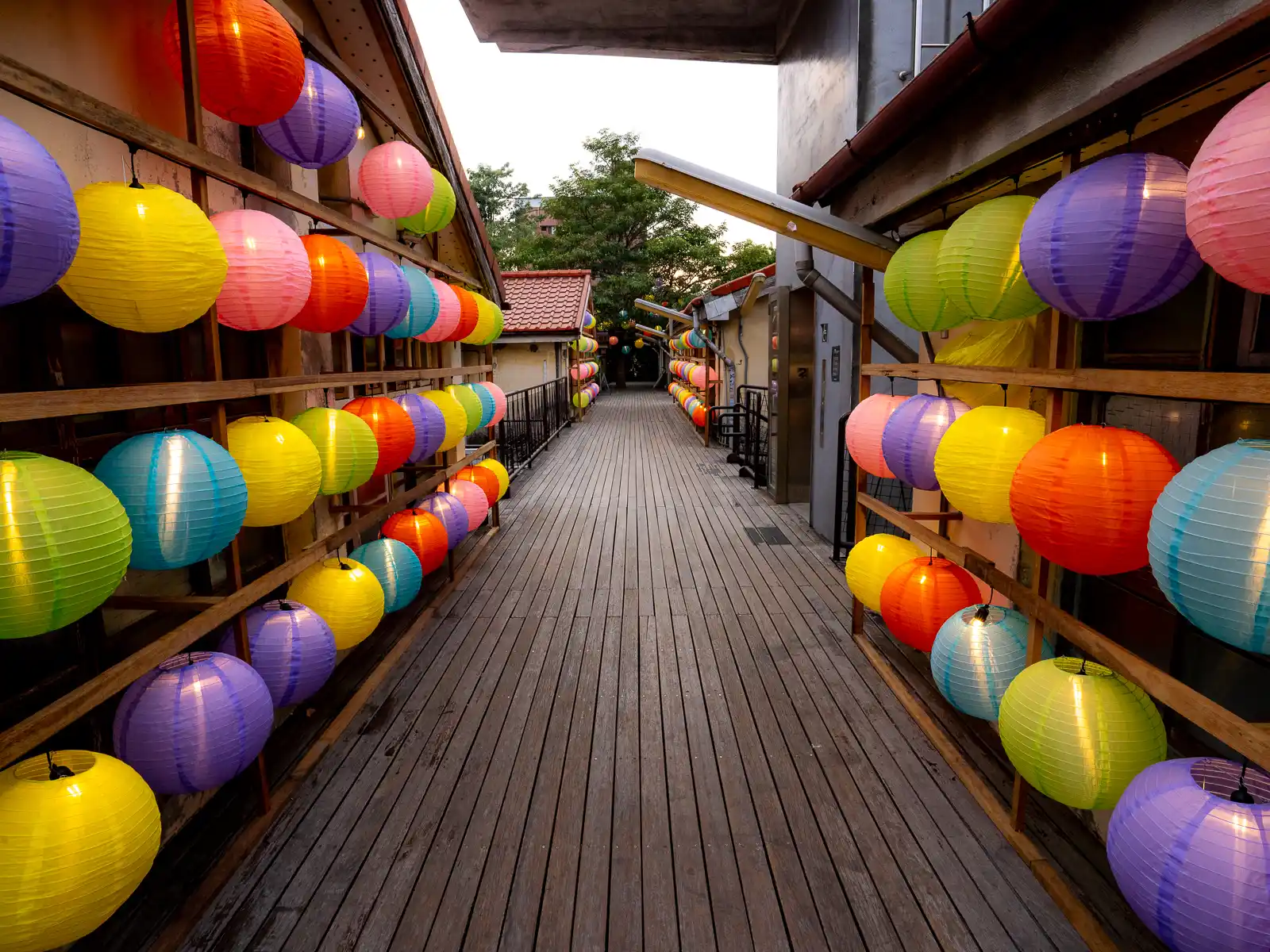
Tucked away in between the skyscrapers of Central Taichung, Shenji New Village is a colorful and quiet art village that is home to artists workshops, pastry shops, cafes, and stores selling local cultural products. What’s special about Shenji is that its shops are all located in a collection of renovated Japanese-era dormitories divided by beautiful stone alleyways and a red-brick main street.
These historic buildings were repurposed by the local government to create a small cultural center. The area now hosts weekly crafts markets as well.
Chungshe Flower Garden
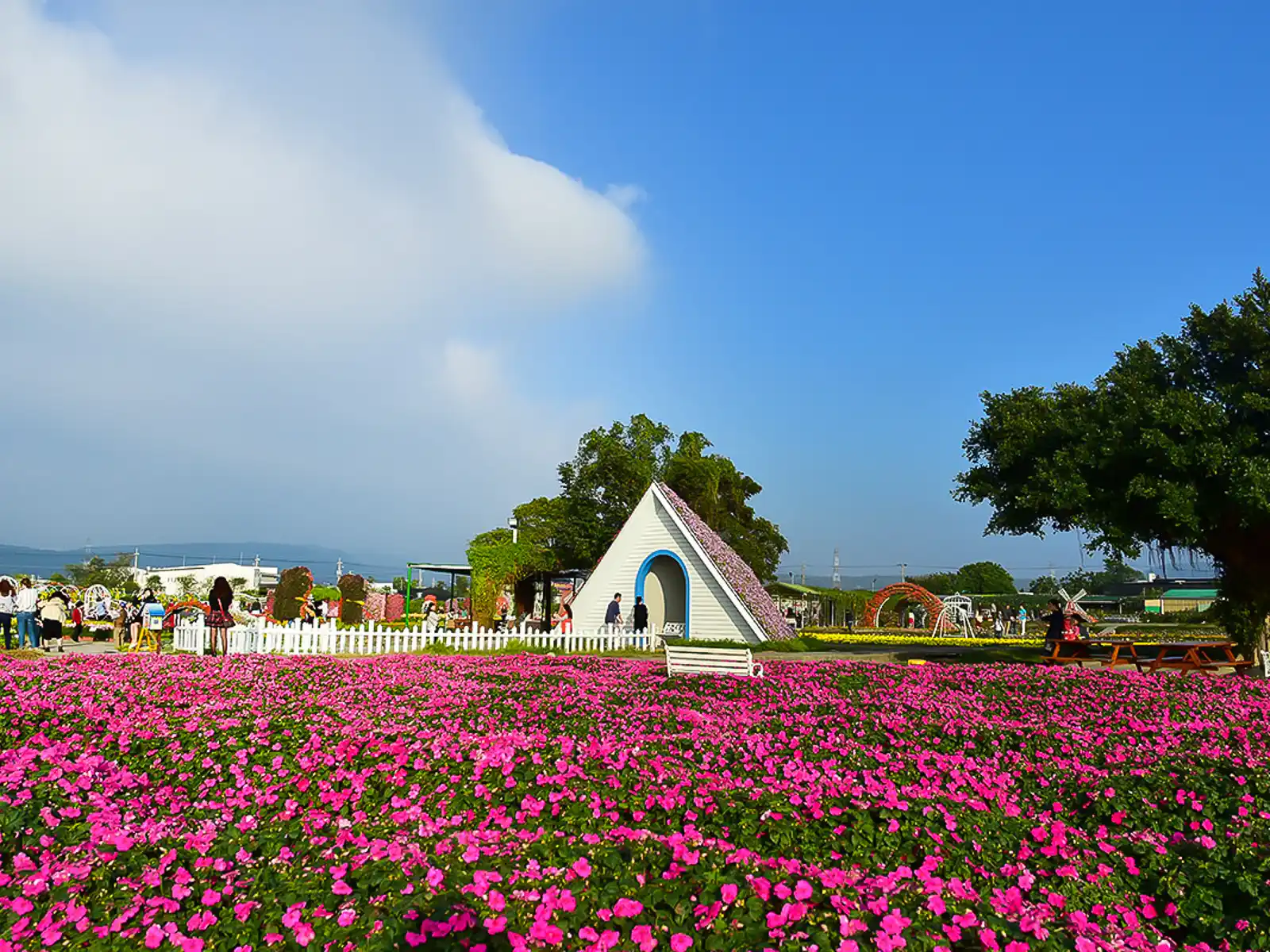
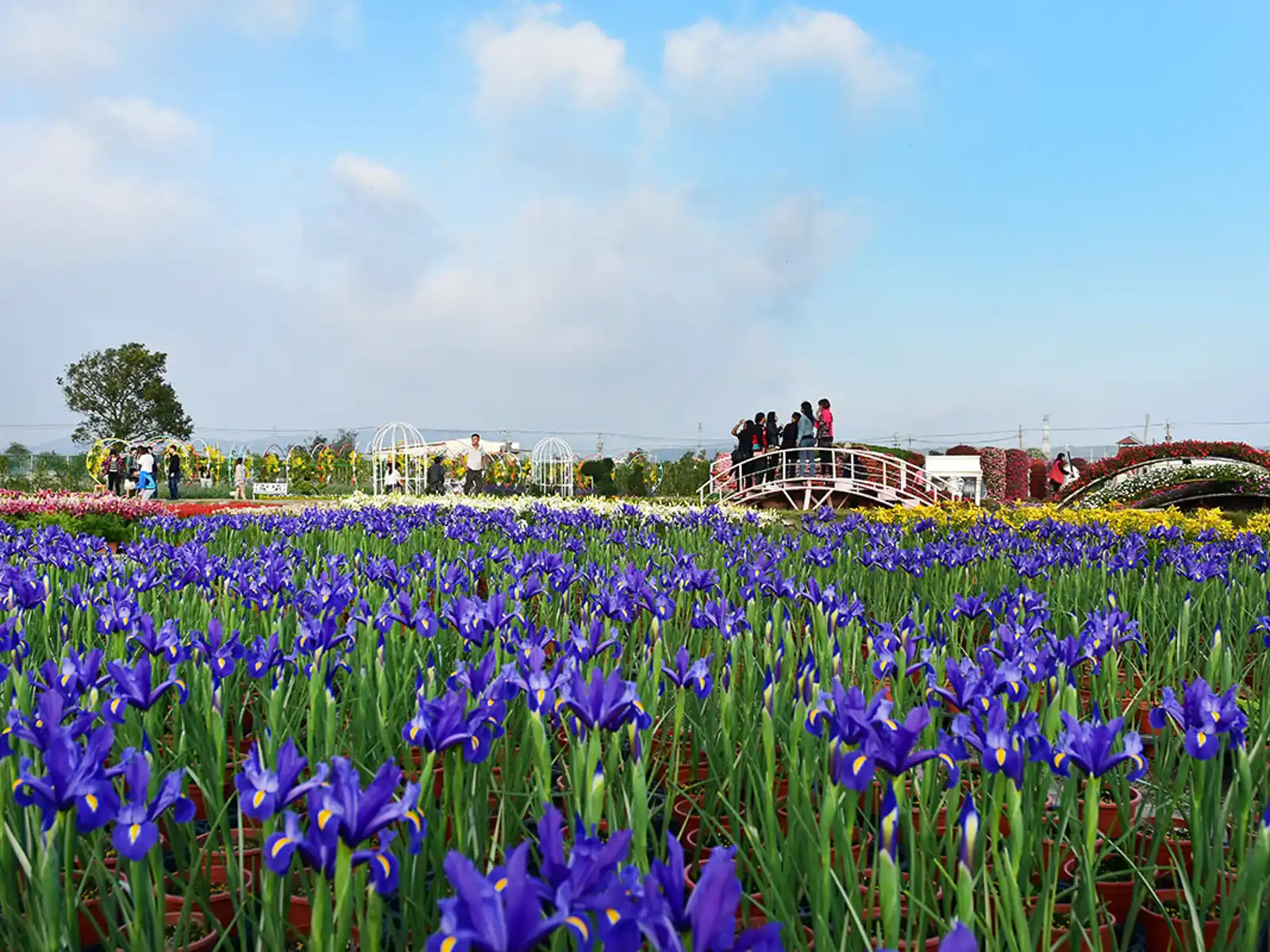
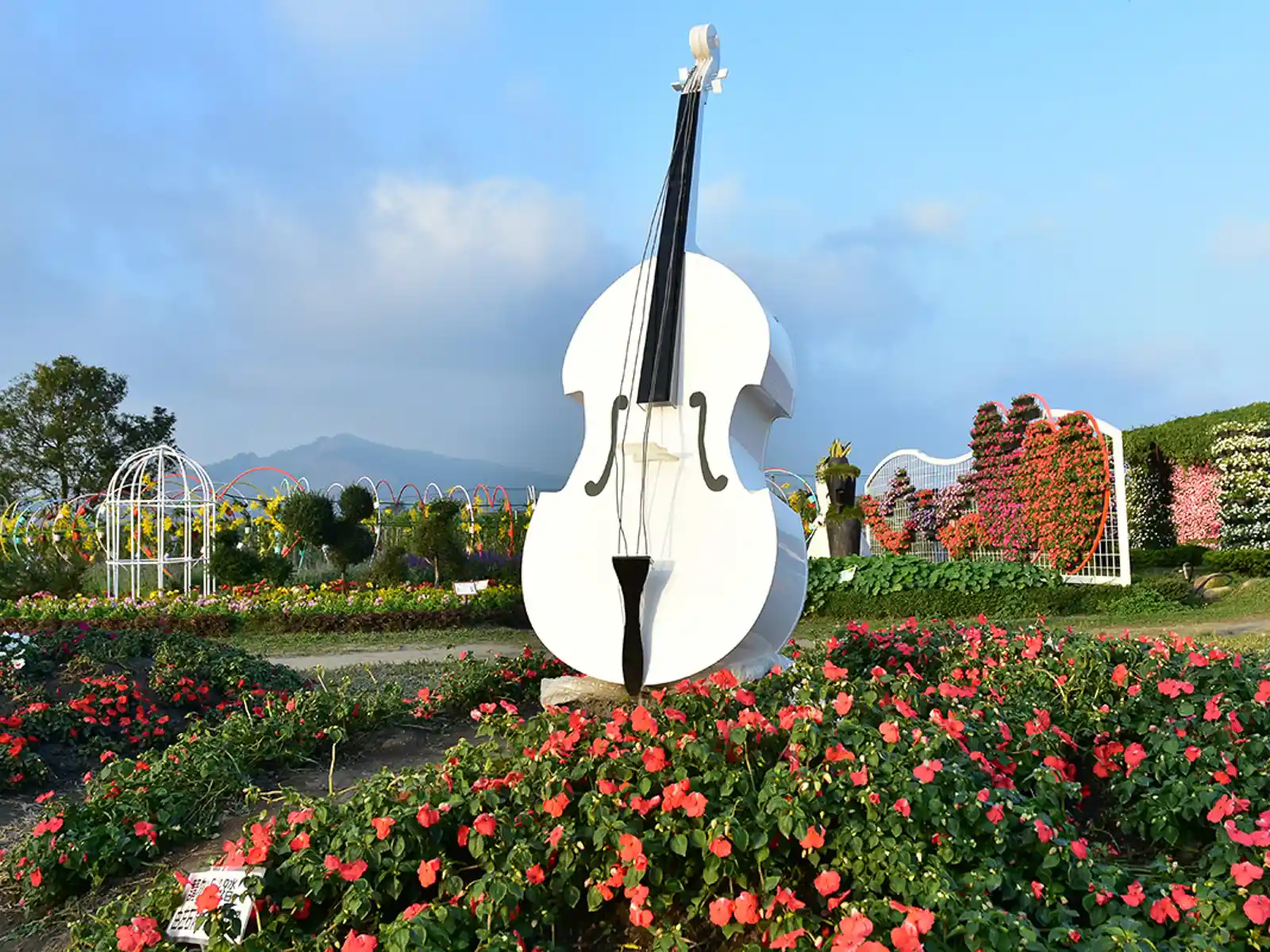
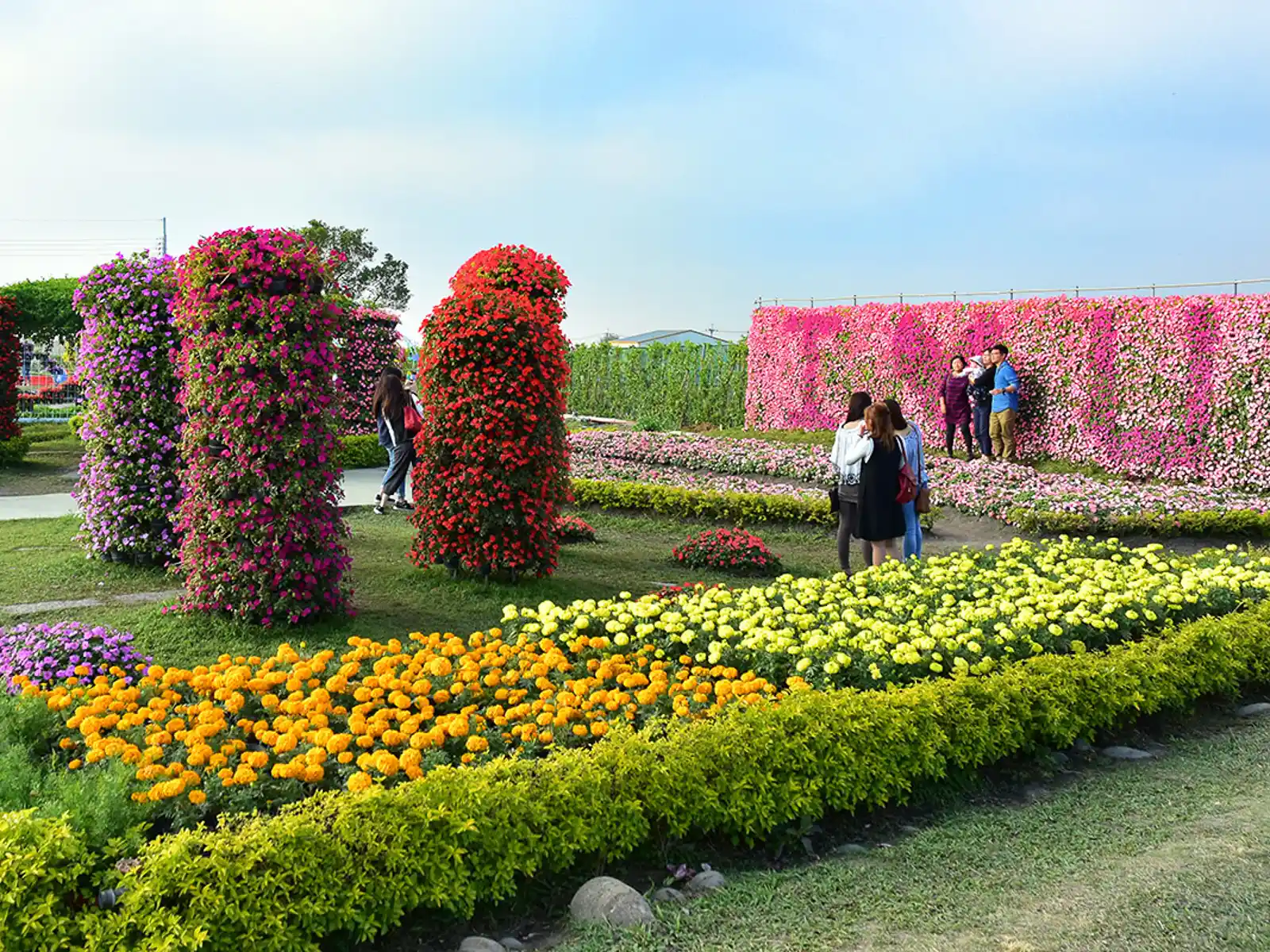
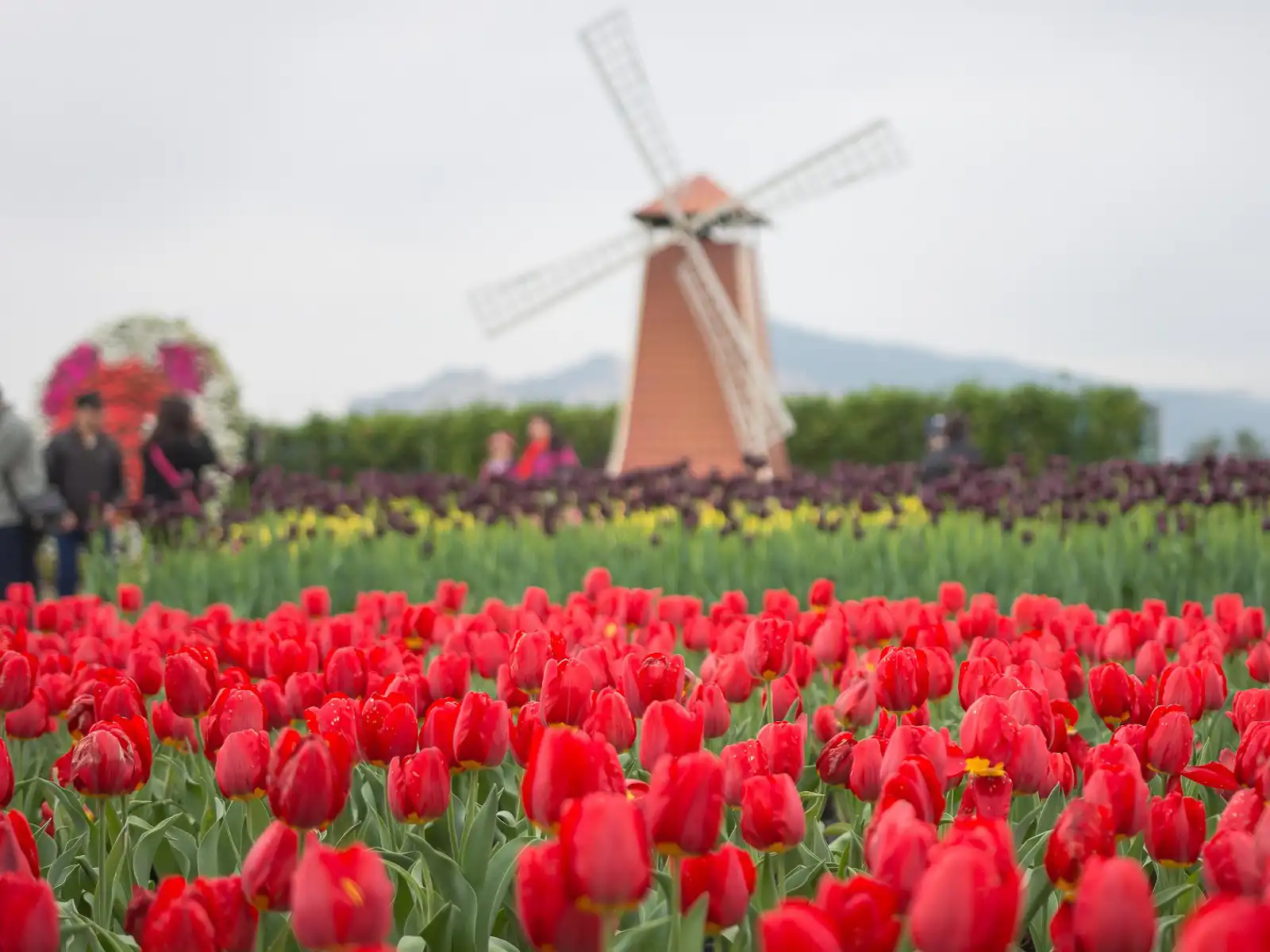
The Chungshe Flower Garden is a picturesque paradise that showcases the natural beauty of flowers. Spanning over 30 acres, the garden is a floral wonderland where visitors can immerse themselves in a kaleidoscope of colors and fragrances.
Visitors can stroll through meticulously landscaped gardens adorned with a diverse array of flowers, including tulips, roses, sunflowers, and more. The garden also features themed areas, photo spots, and a greenhouse for tropical plants. Visitors can indulge in flower picking, capture stunning photographs, enjoy outdoor picnics, and explore the various exhibitions and events held throughout the year.
Gaomei Wetlands

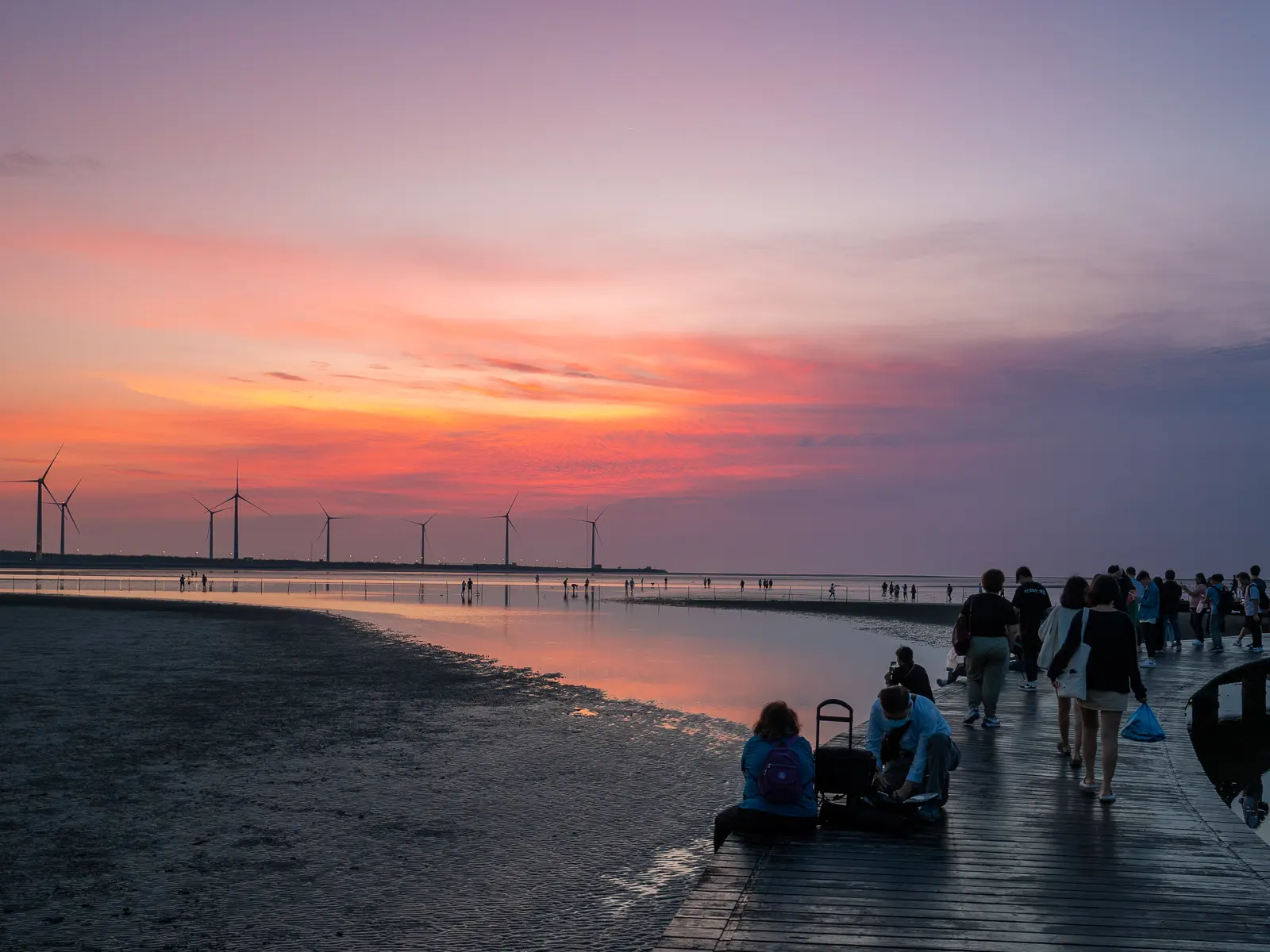
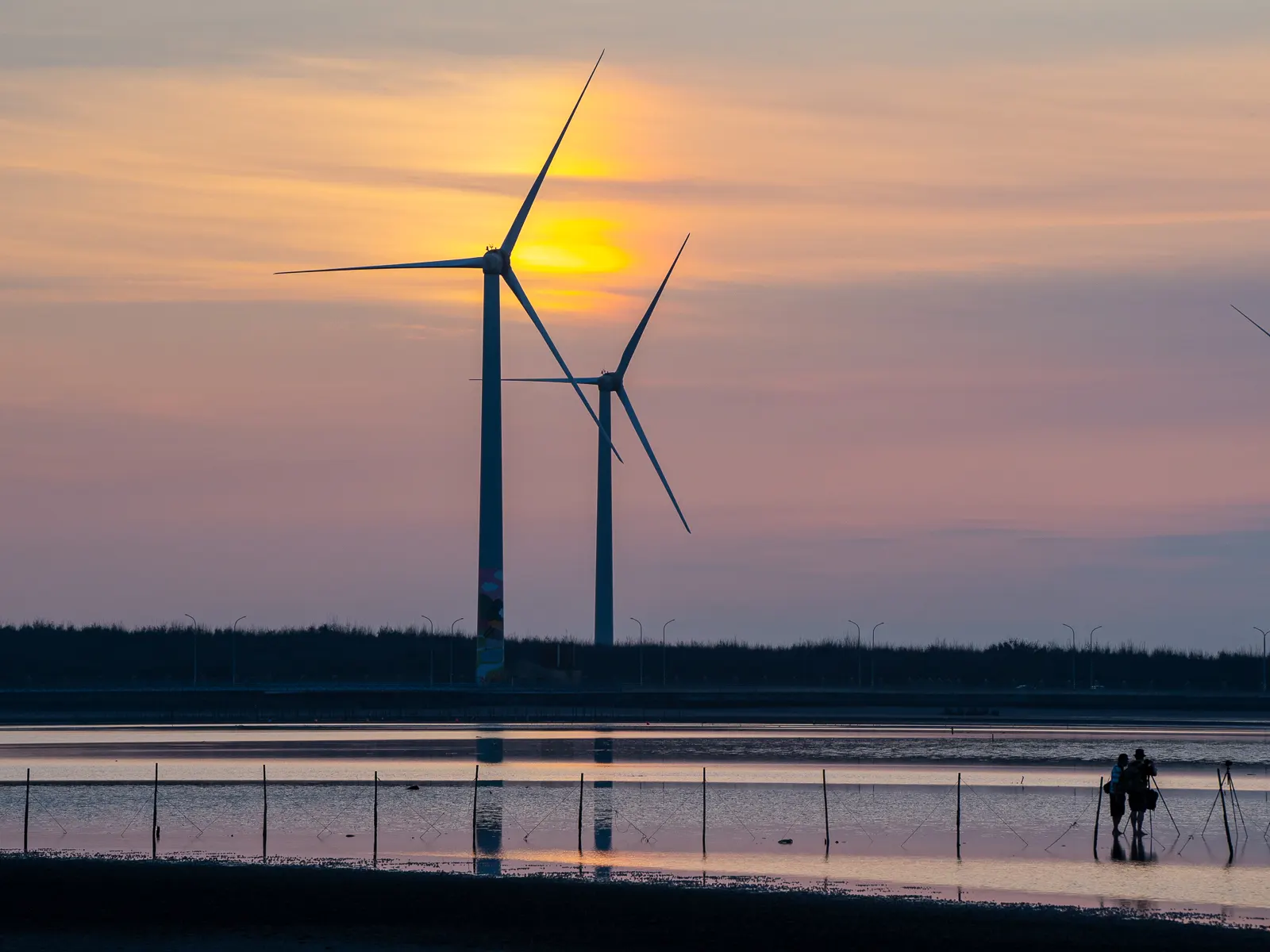
The Gaomei Wetlands is a mesmerizing coastal ecological area that is one of Taichung’s most popular destinations for sunset photos. It is also a haven for nature enthusiasts, photographers, and of course, families traveling with curious kids.
Visitors can explore the wetlands and take in the wildlife through the iconic 800-meter boardwalk that extends out into the tidal flats. The rich soil here has been transported from Hehuanshan in Taiwan’s Central Mountains and now provides nourishment to fiddler crabs, mudskippers, egrets, wild ducks, invertebrates, and over 120 species of birds.
The landscapes here are particularly stunning during low tide, and of course, during sunset!
HOSHINOYA Guguan
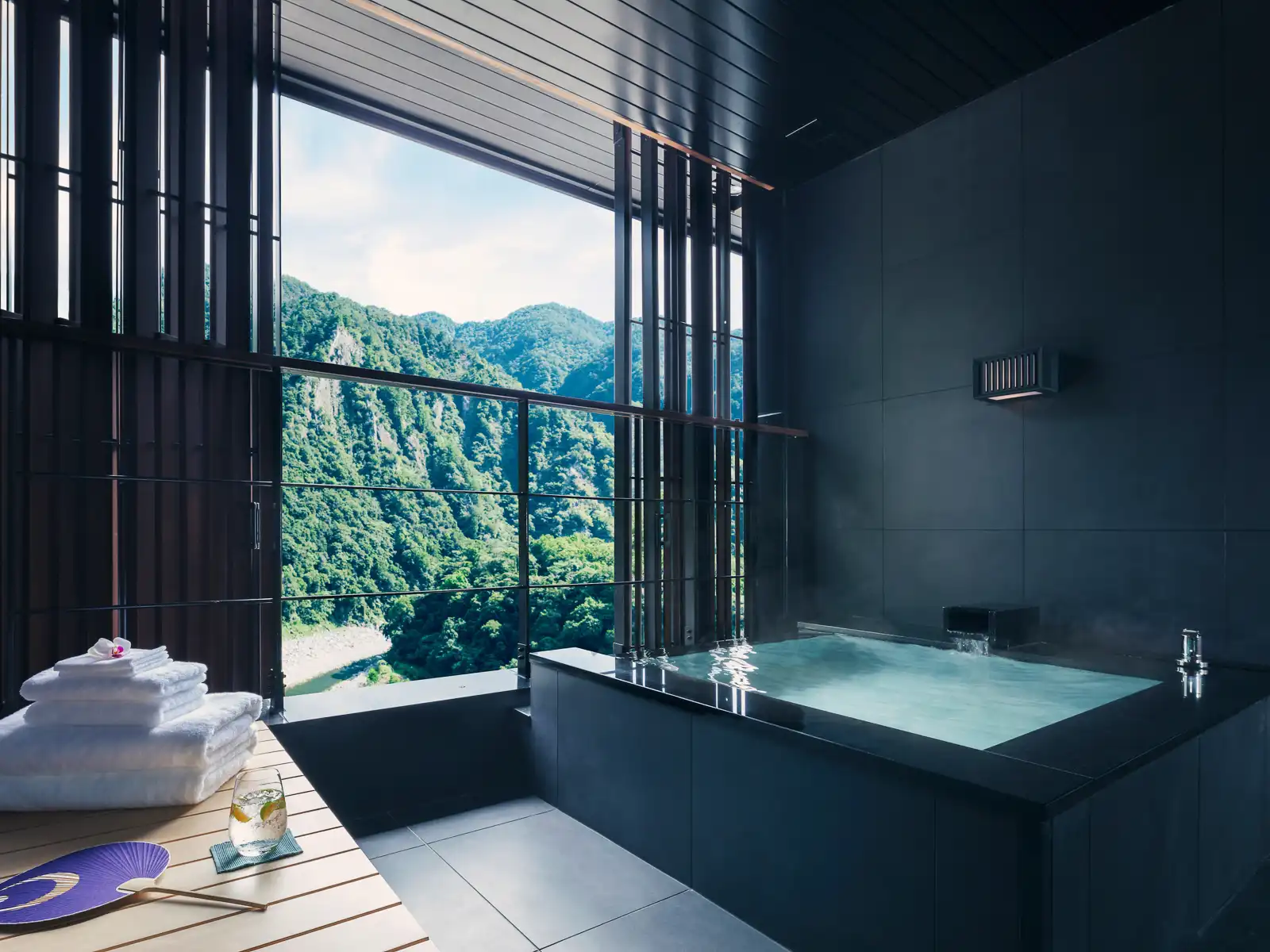

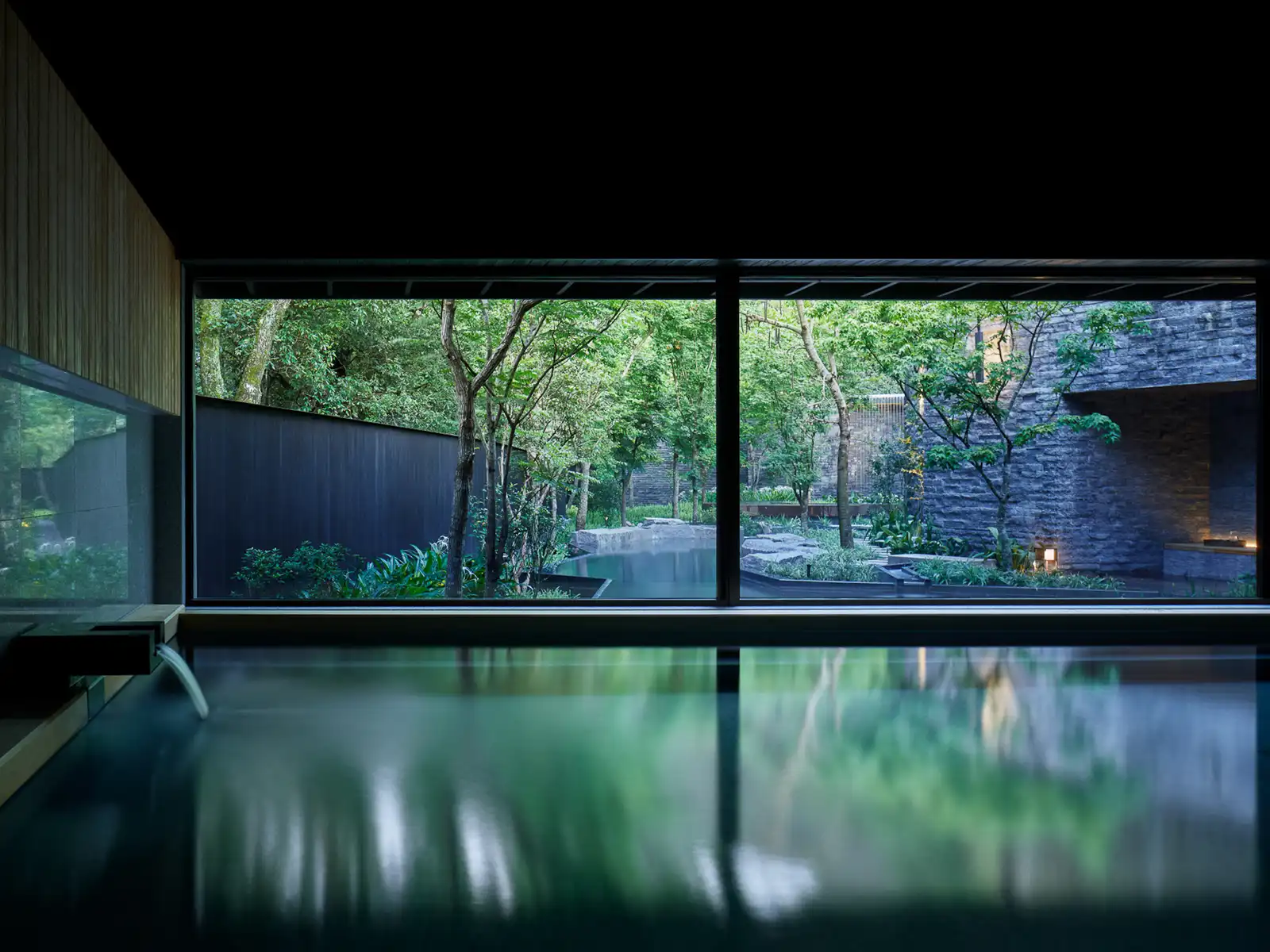
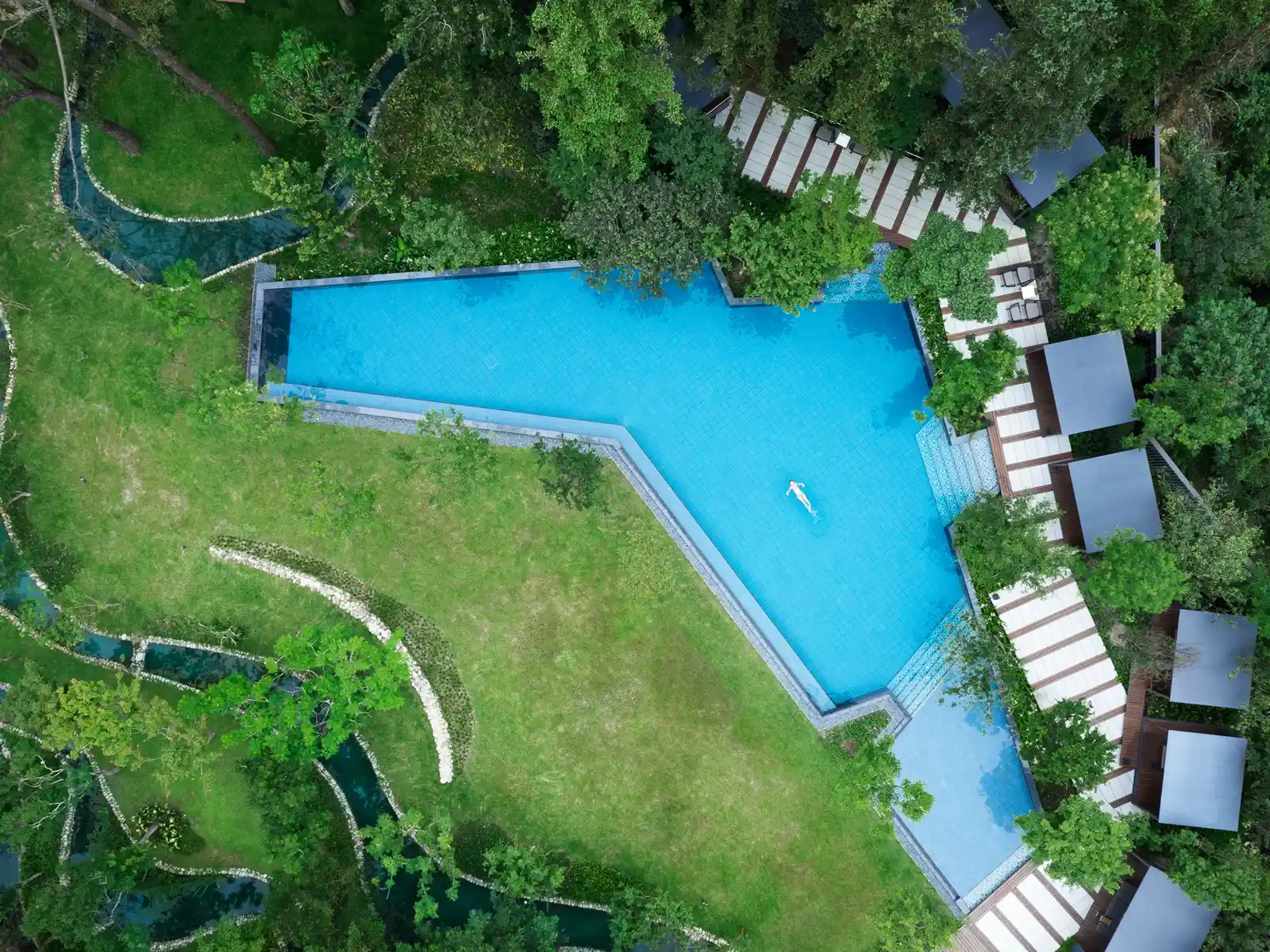
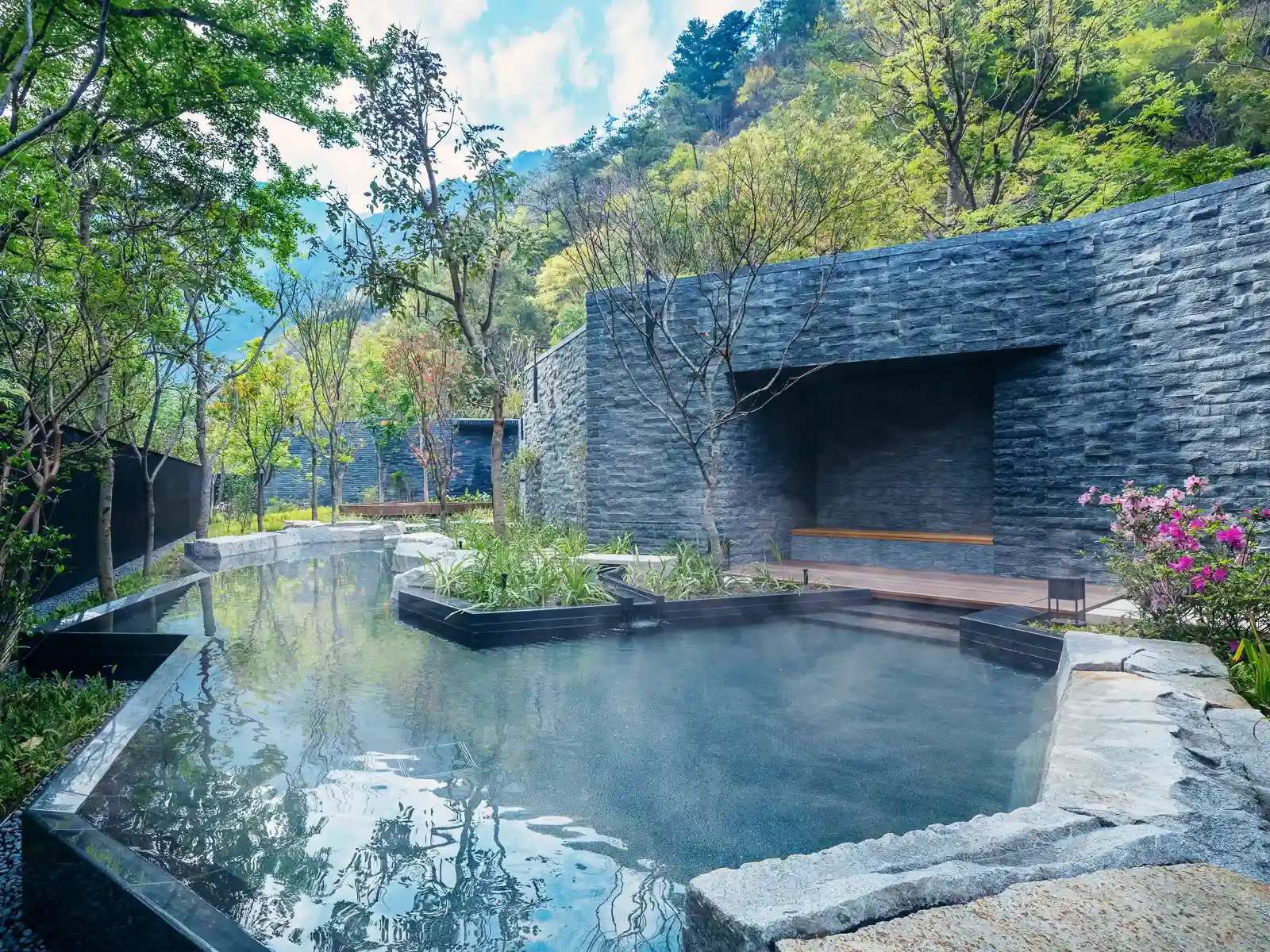
Located in the mountains to the east of downtown Taichung, HOSHINOYA Guguan is one of many hot spring hotels offering relaxing wellness experiences in Taichung’s Guguan Hot Spring Area.
The HOSHINOYA Guguan is one of the area’s most luxurious retreats and is the island’s most modern interpretation of a Japanese ryokan—a traditional Japanese inn with public and private baths. Its beautifully landscaped grounds, cleanly and thoughtfully designed interior, impeccable service, and satisfying dining options are sure to satisfy even the most discerning travelers.
The resort features a selection of elegant guest rooms that boast a minimalist aesthetic, blending traditional Japanese elements with modern touches. Rooms feature a main living chamber that is connected to a private onsen by a set of stairs. The spacious outdoor grounds surrounding the complex are filled with walking paths, ponds, and gardens, and the onsen even has its own private entrance to one of Guguan’s popular day hiking trails, the Shaolai Path.
Dajia Jenn Lann Temple
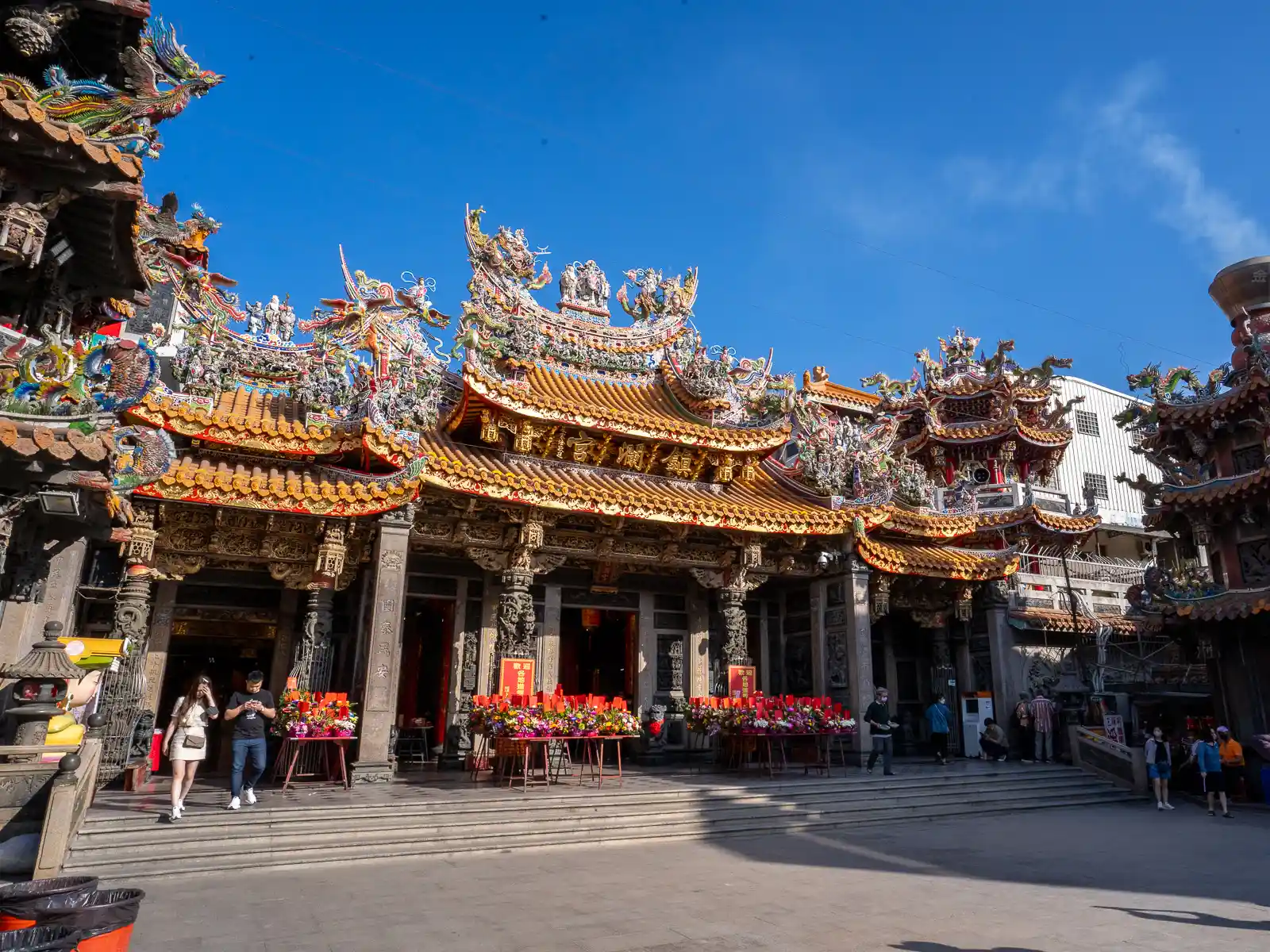
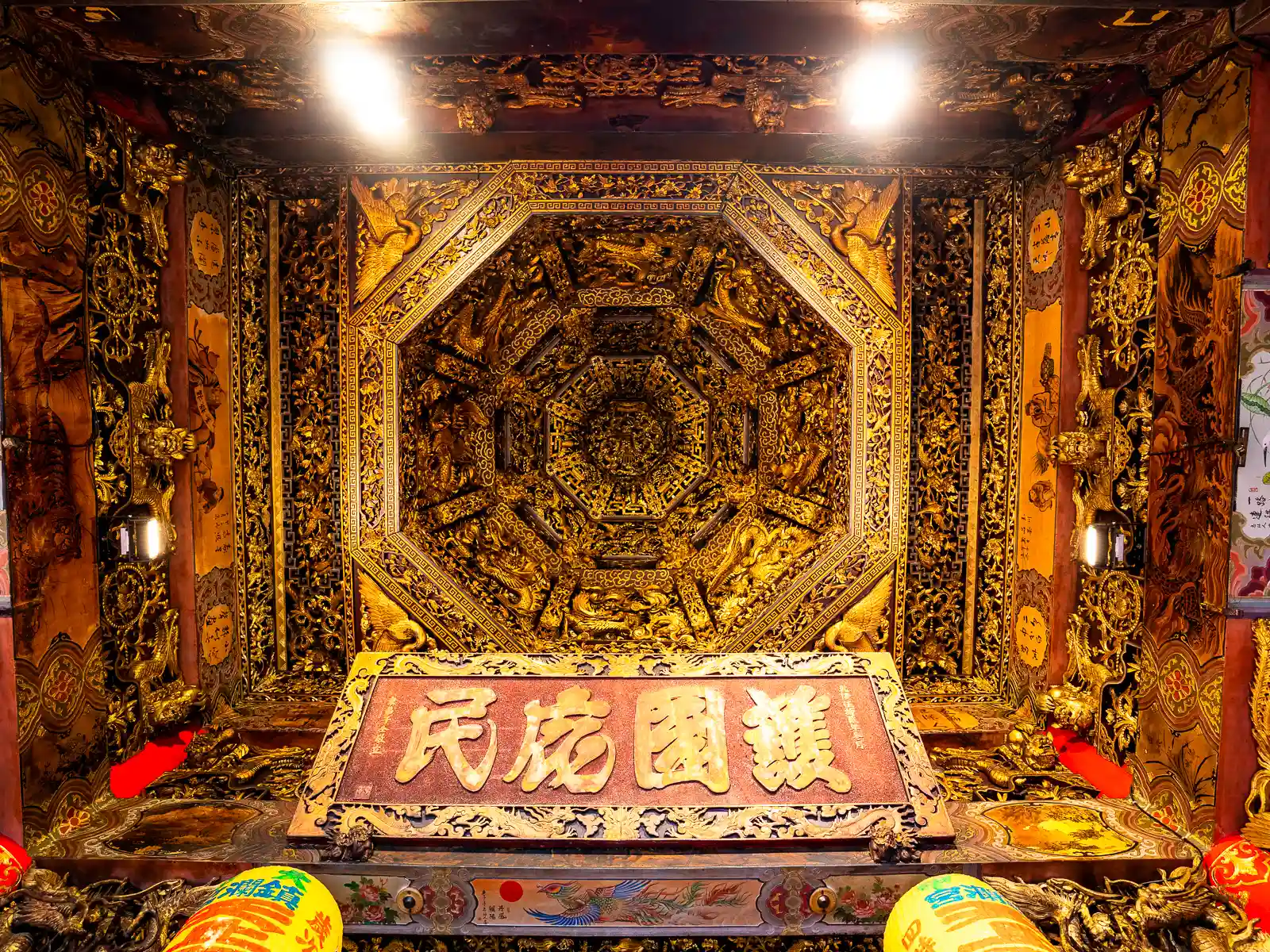
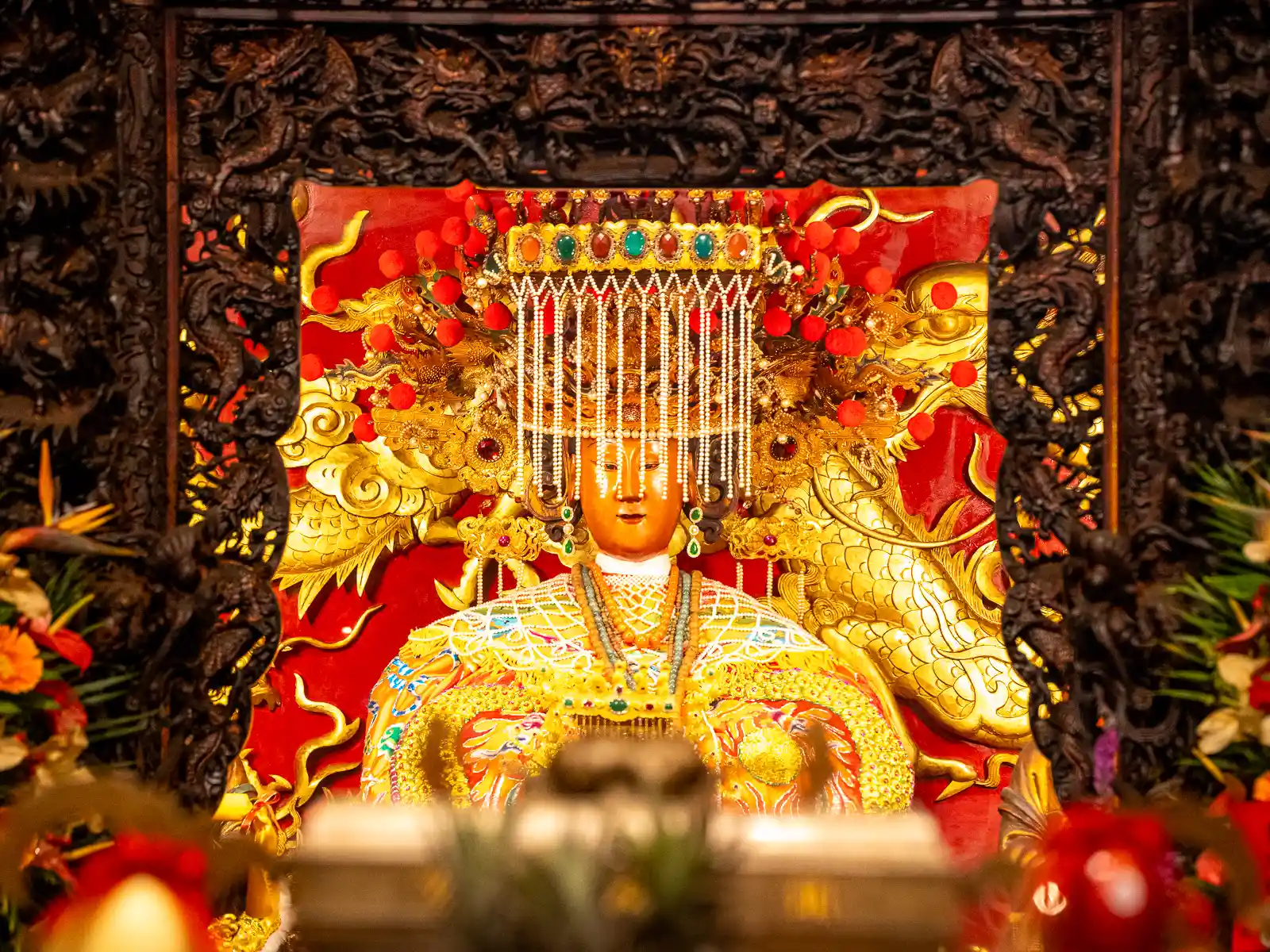
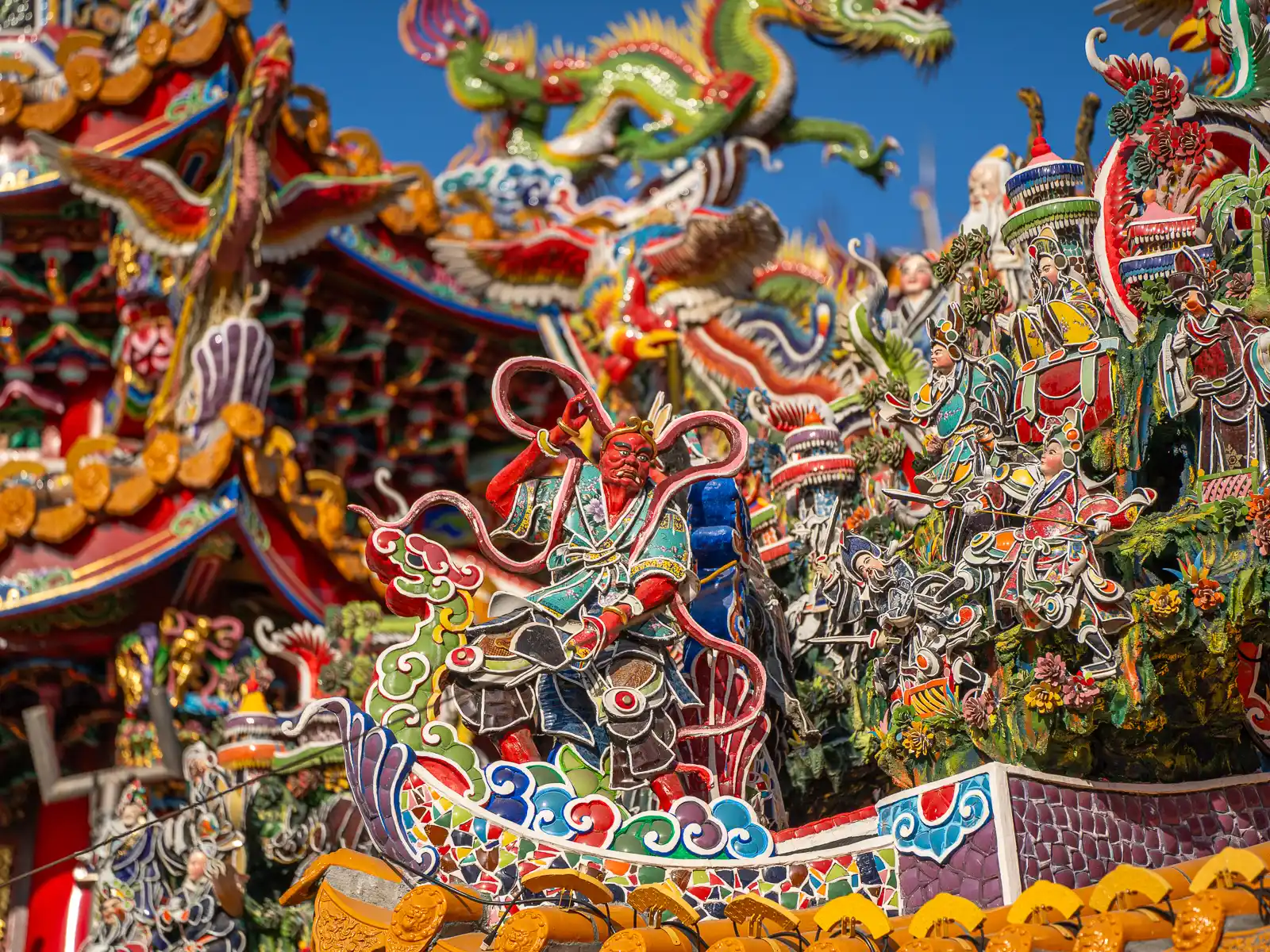
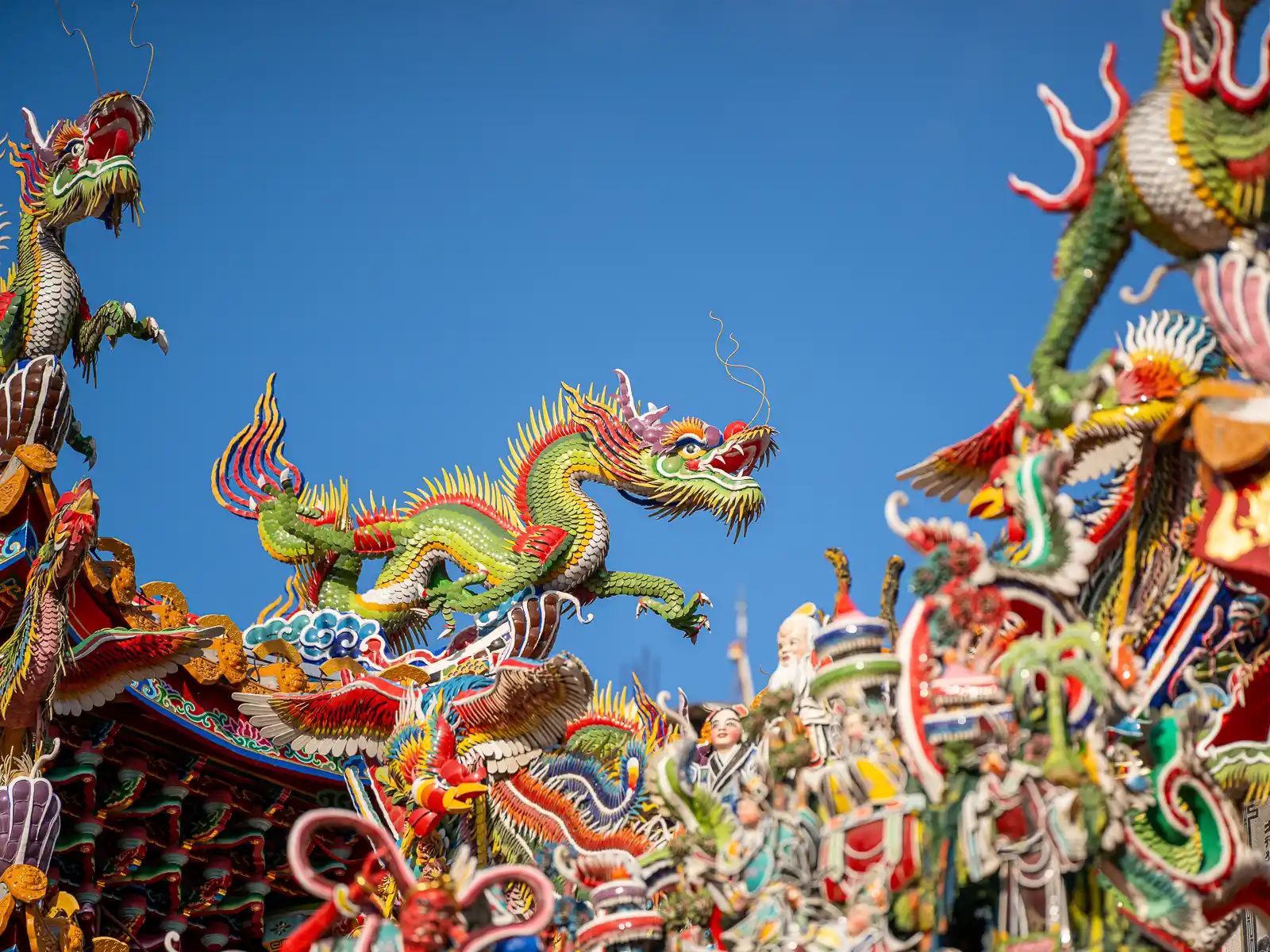
The Dajia Jenn Lann Temple, also known as Dajia Mazu Temple for the goddess “Mazu” that it venerates, is located a 30-minute drive away from downtown Taichung in the rural Dajia District. The temple is famous for its yearly Mazu Pilgrimage, which has been acknowledged as one of the world’s top three religious celebrations by the Discovery Channel.
Every spring, thousands of Mazu worshippers gather in the temple’s courtyard to prepare for the event, an eight-day non-stop pilgrimage in which an effigy of Mazu is carried throughout Central Taiwan, visiting many other temples along the way. This annual event draws over 1 million pilgrims who participate throughout its duration.
Since pilgrims are also visiting year-round, the neighboring alleys are usually filled with vendors selling snacks and refreshments. Dajia Old Street, only a block away, is also worth a visit—Dajia District was previously named one of Taiwan’s Top 10 Small Tourist Towns.
Mt. Yuanzui
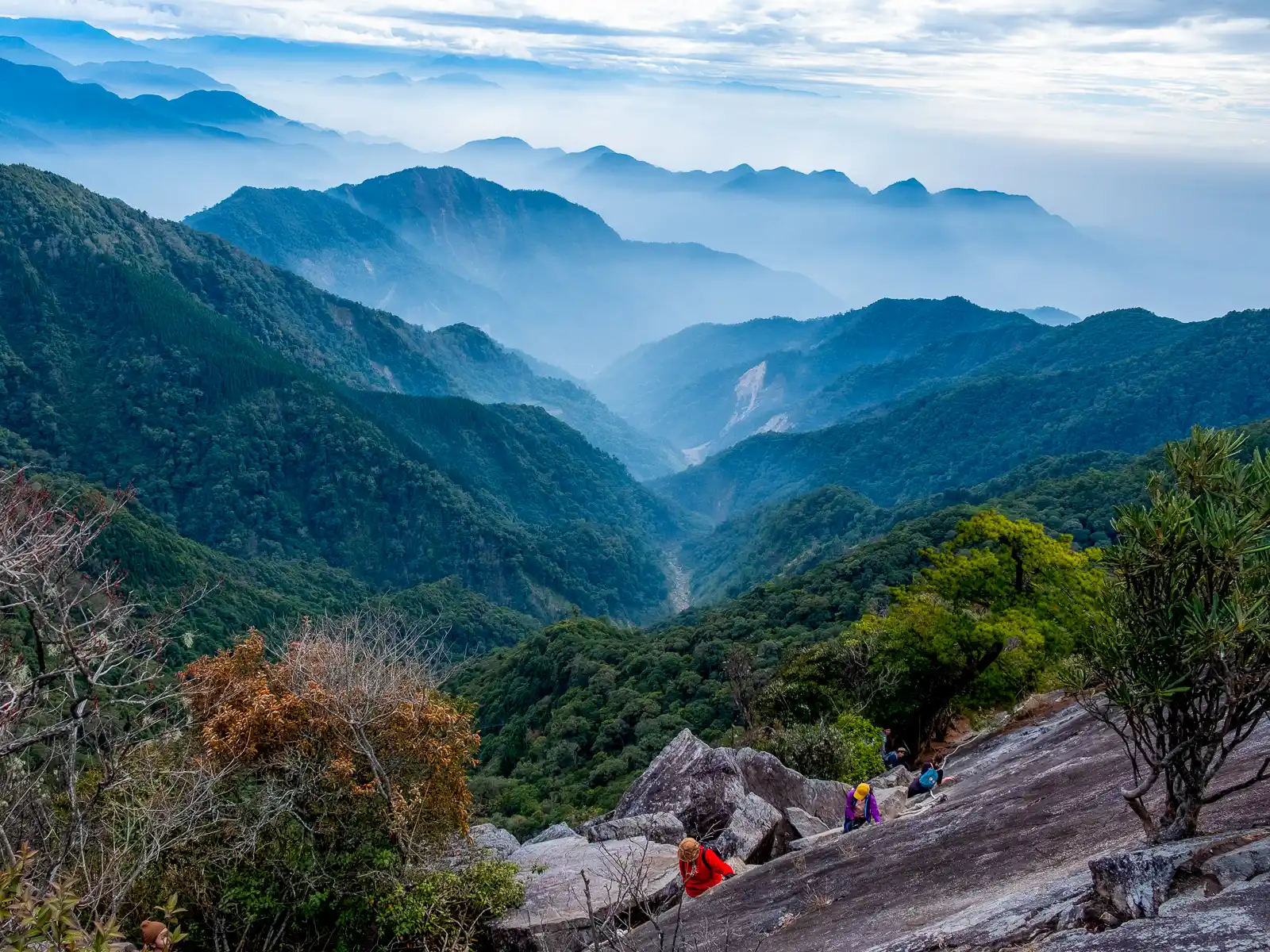
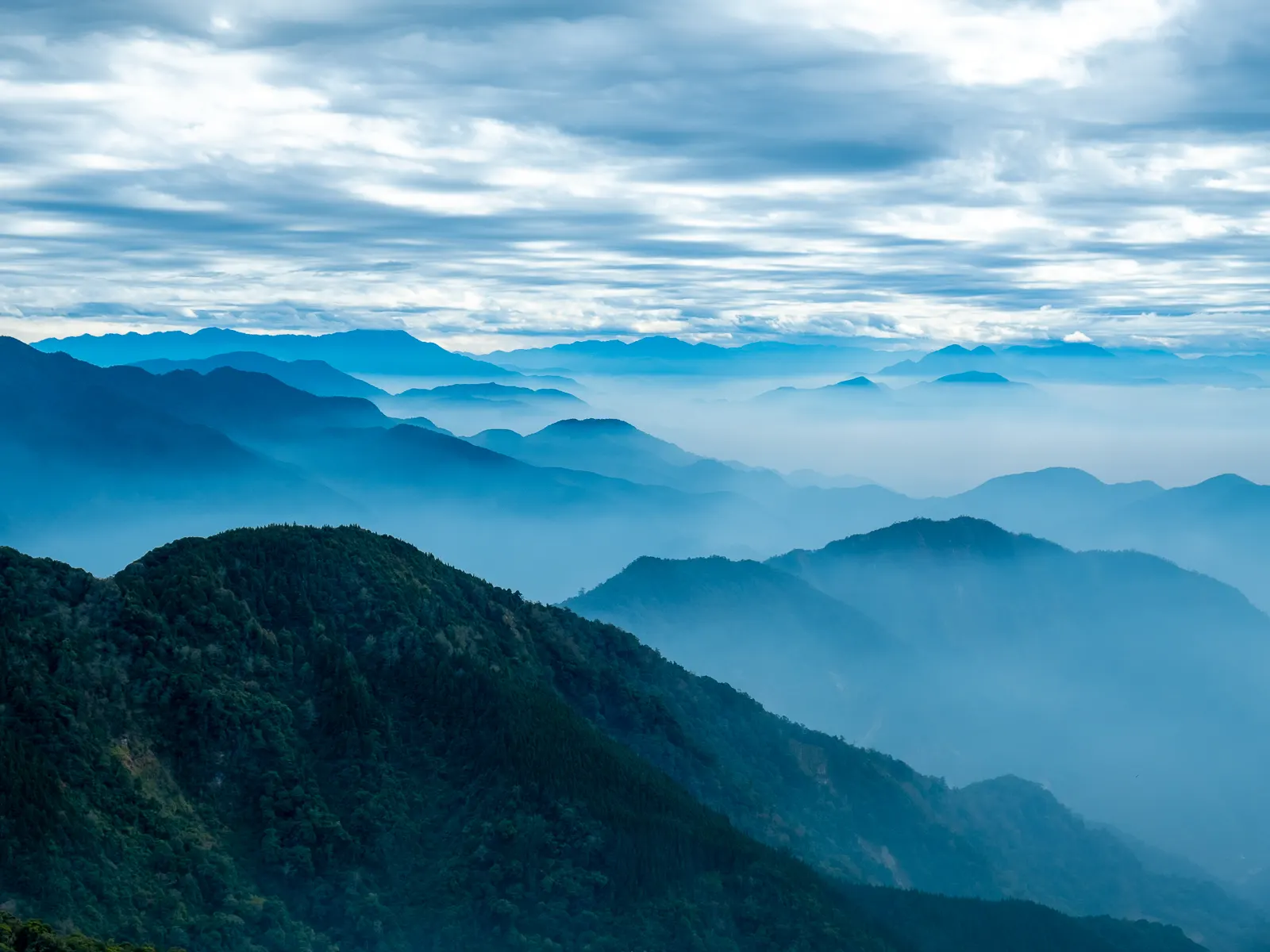
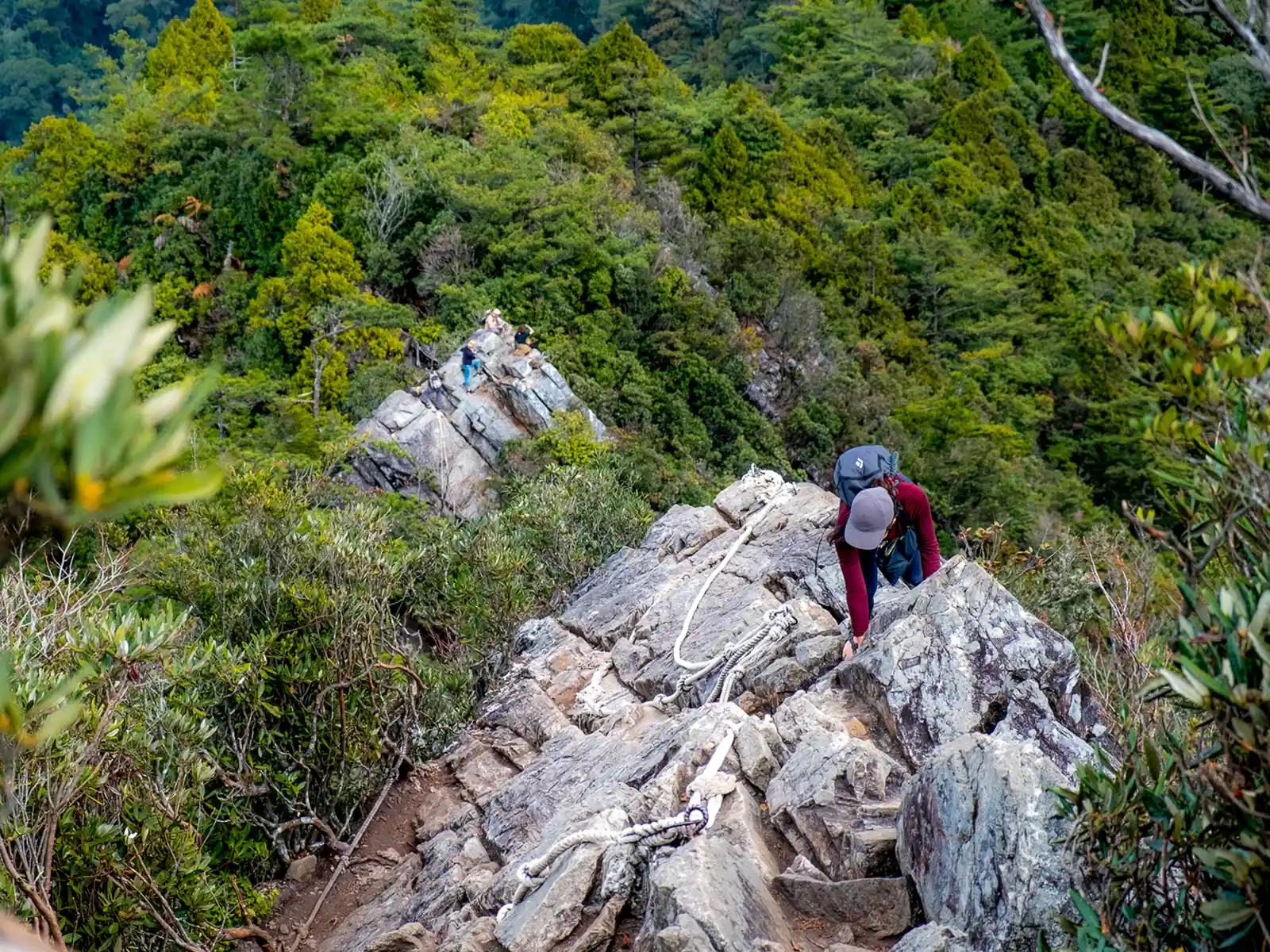
Located to the east of downtown Taichung, Mt. Yuanzui is one of the steepest and most challenging day hikes in Taiwan. It’s around a 1-hour car ride in the direction of Daxueshan National Forest Recreation Area to arrive at the trailhead, but even in the summer, the alpine air here is refreshingly fragrant and fresh.
The short hike to the peak is slightly under 2 kilometers, but the physical effort to climb to the ragged peak should not be underestimated. The trail ascends steeply and covers a 400-meter elevation change—so steep in parts that ladders and ropes have been placed to help secure climbers against the mountain’s steep faces. Once at the knife’s edge summit, watch your step as you enjoy one of the best panoramas that Taiwan has to offer. On fair weather days, Snow Mountain should be visible to the east, while Taichung and the Pacific Ocean should be visible to the west.

